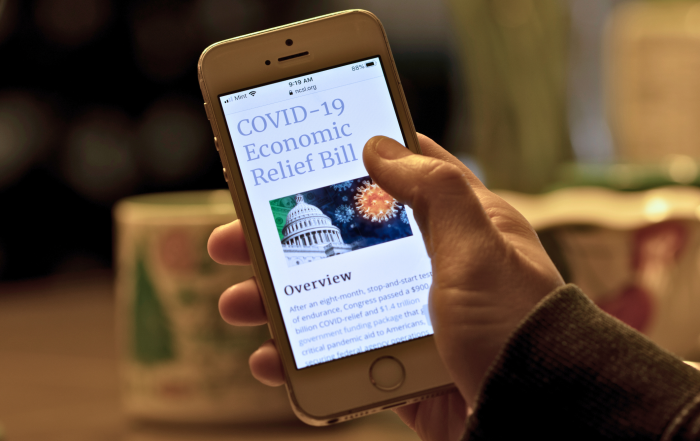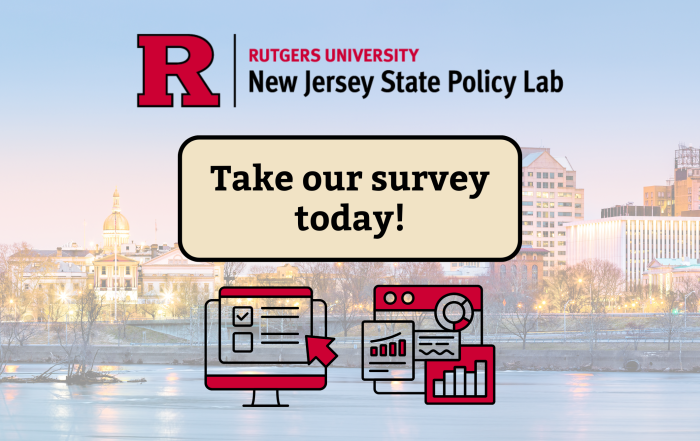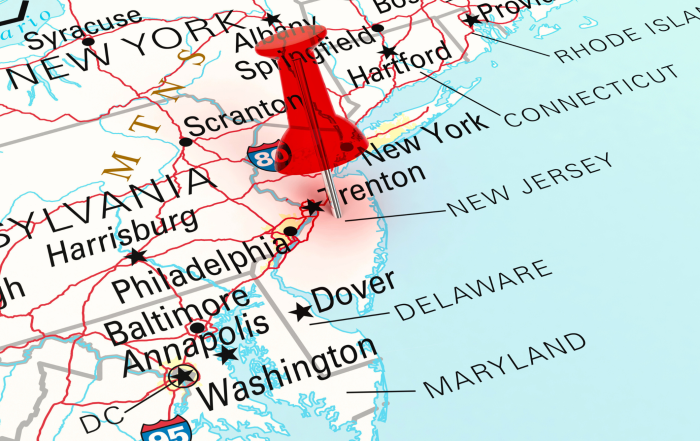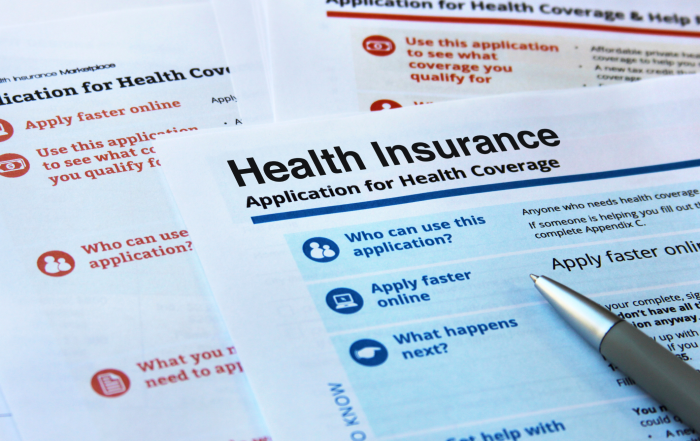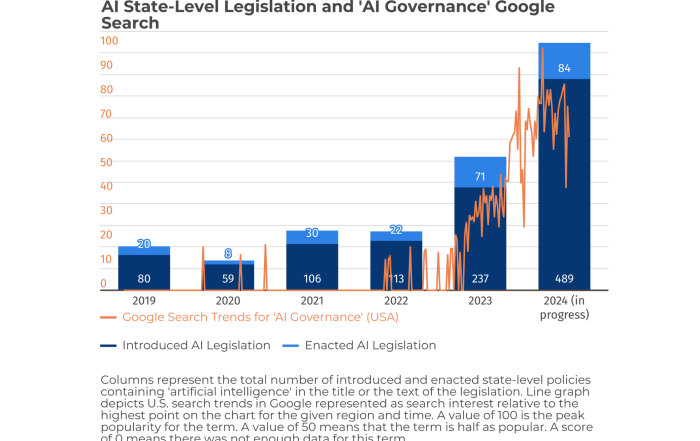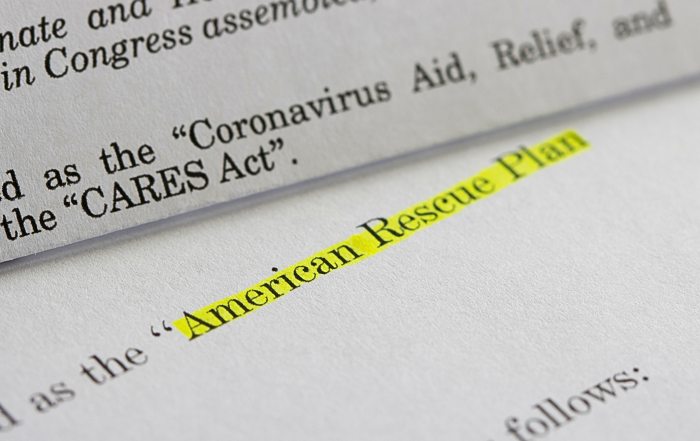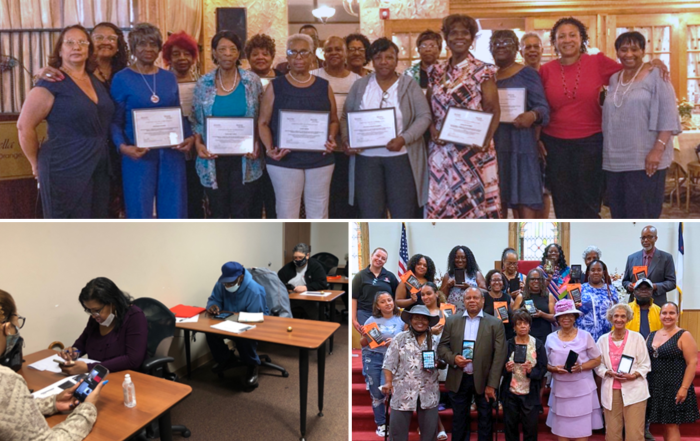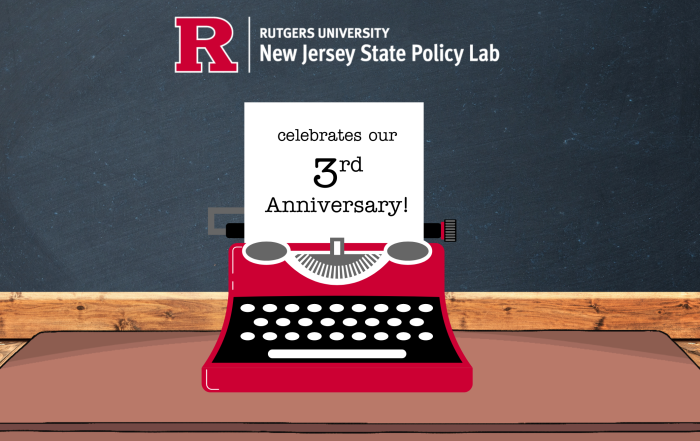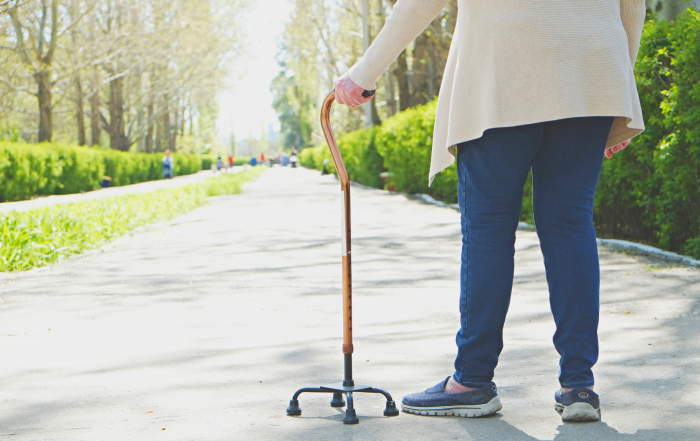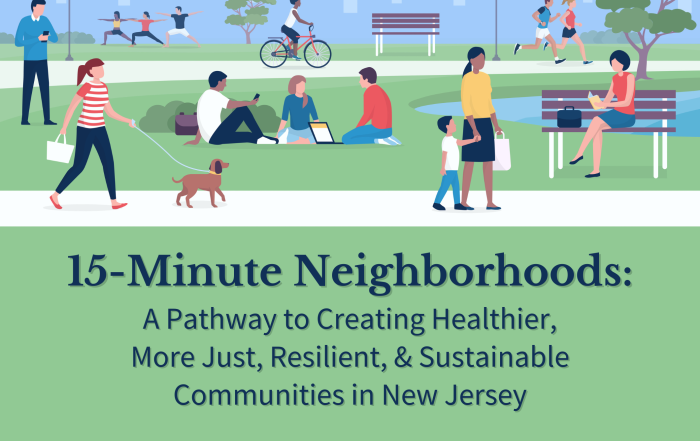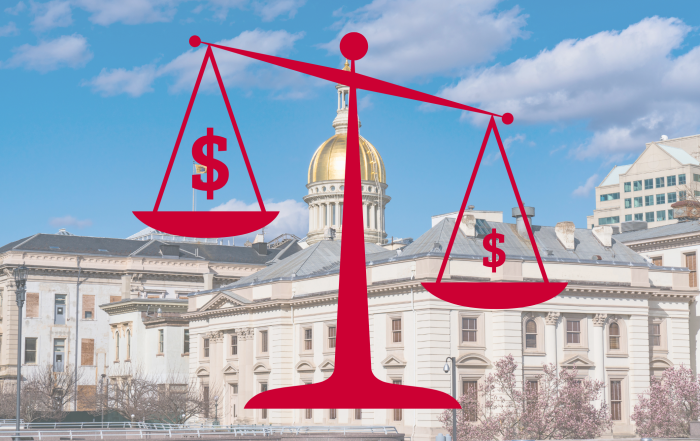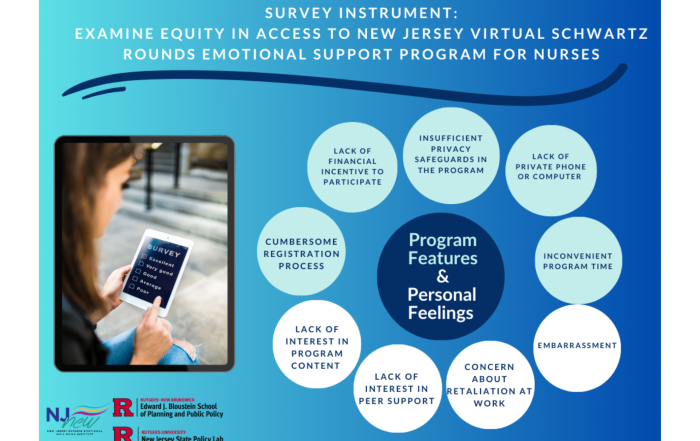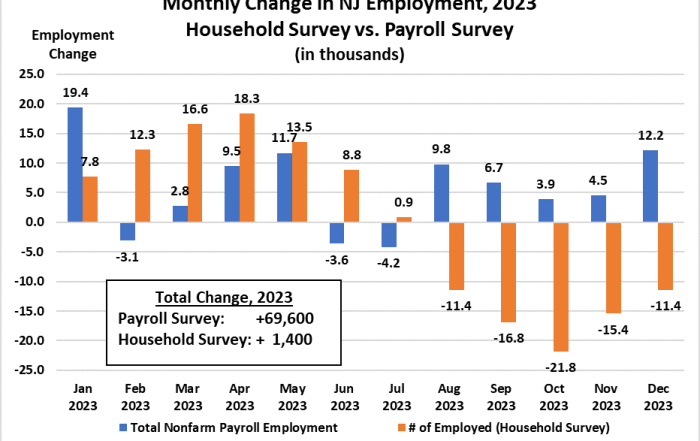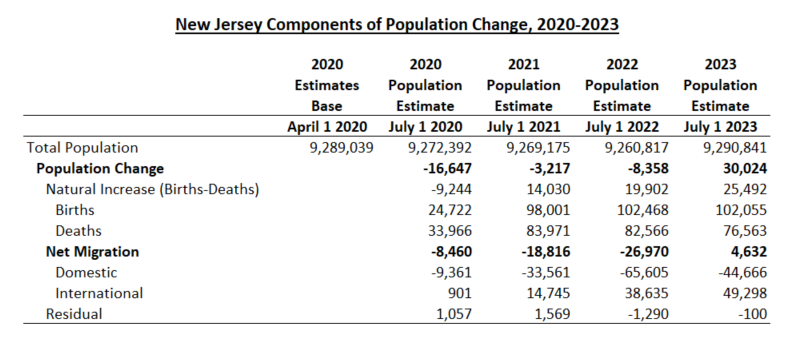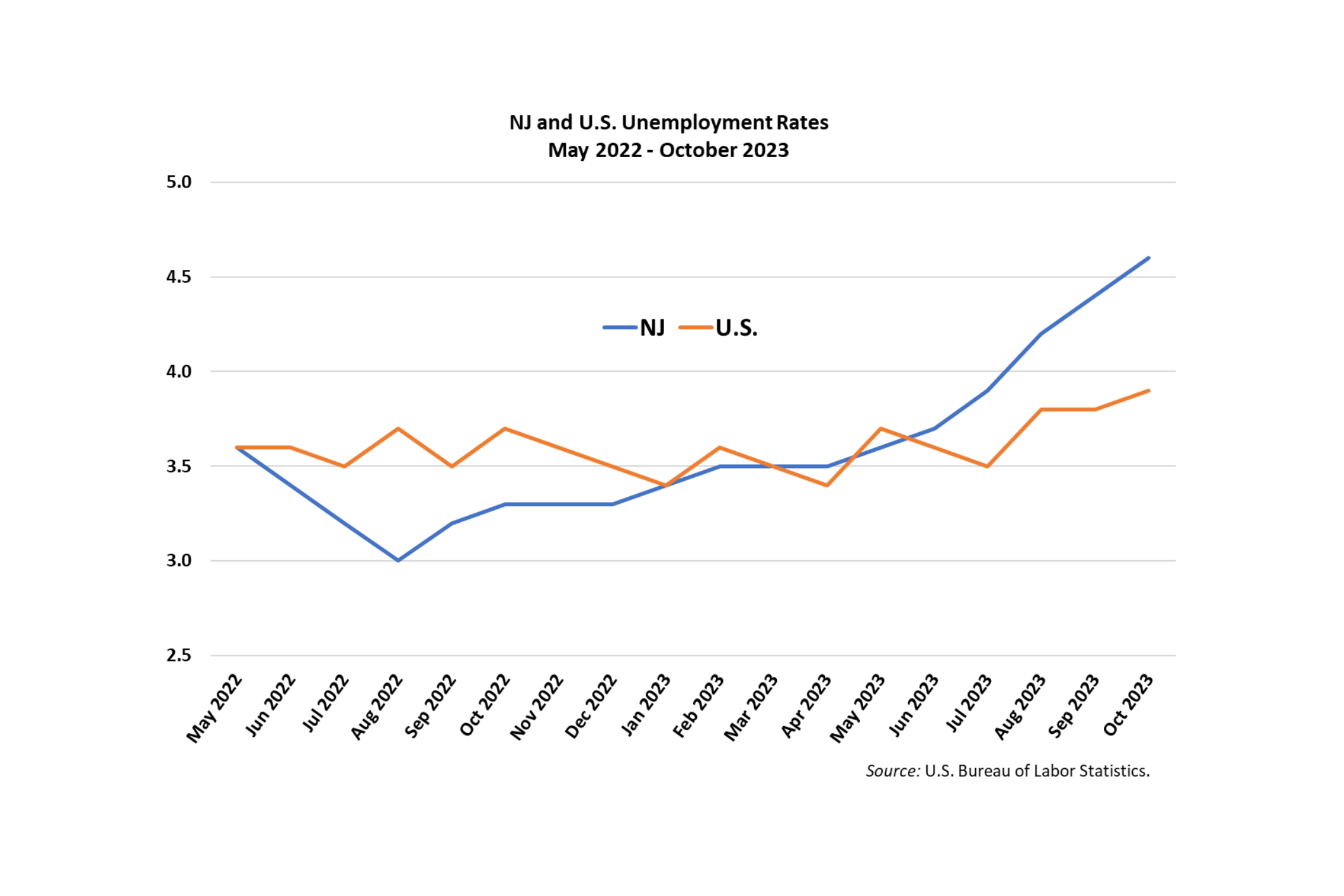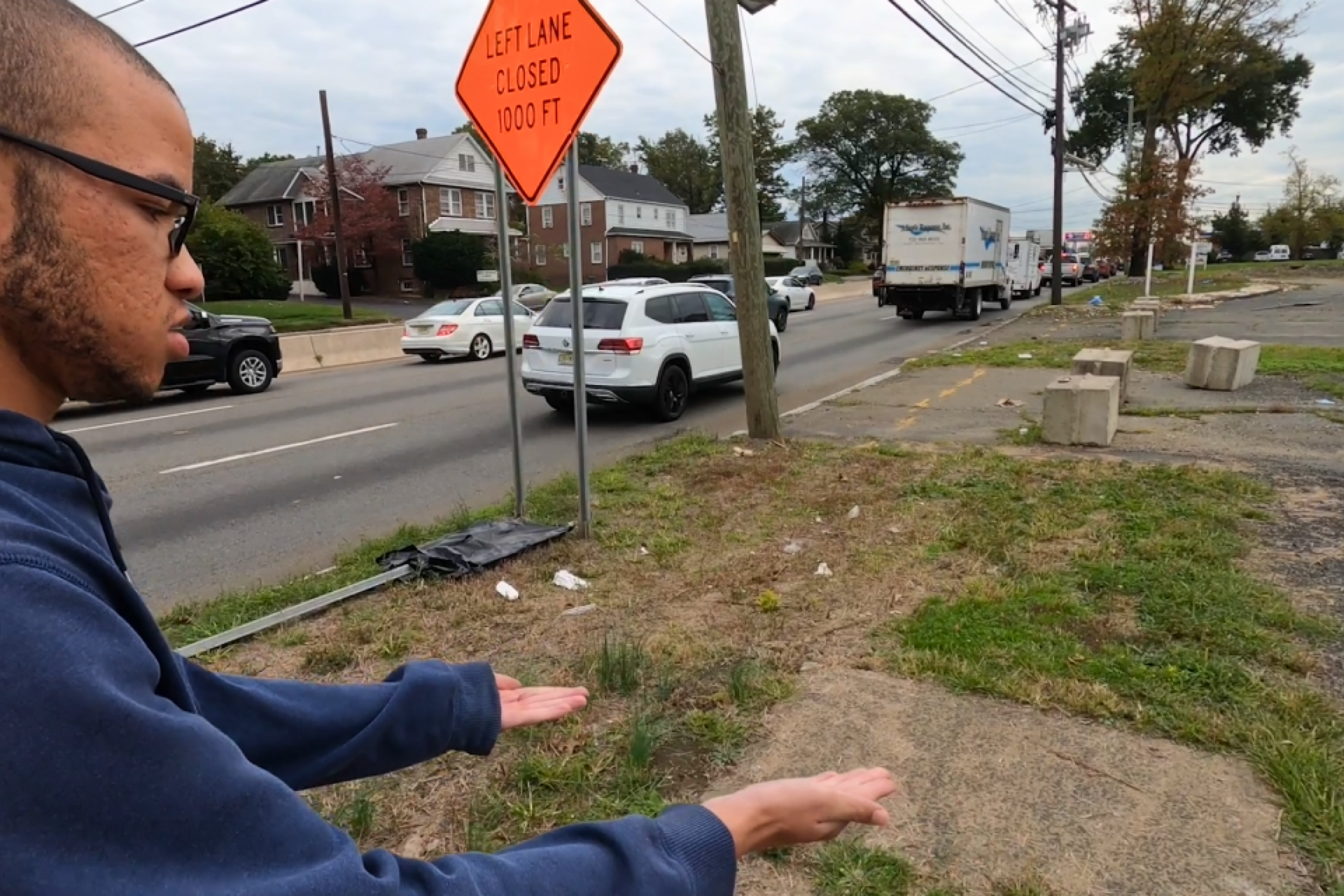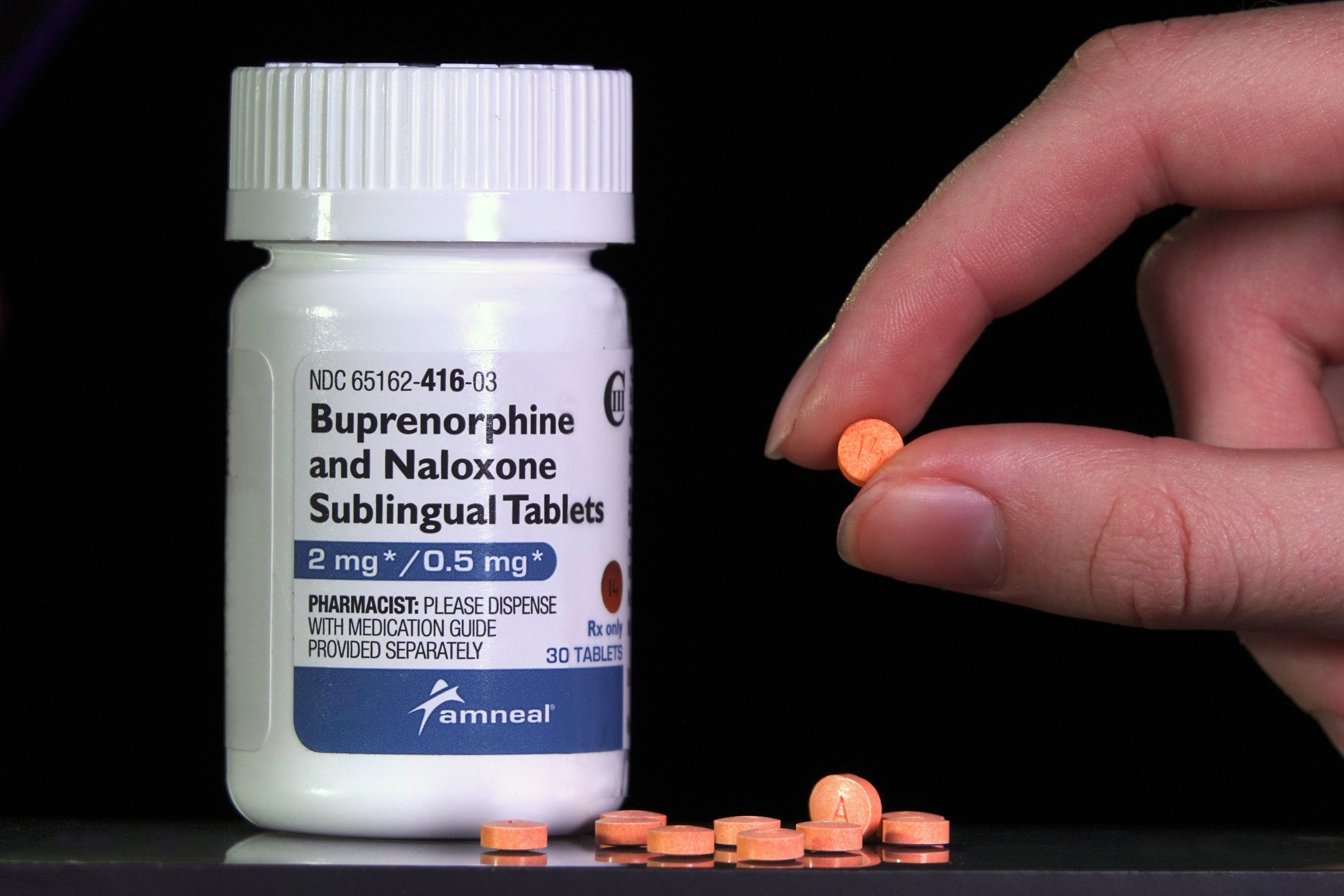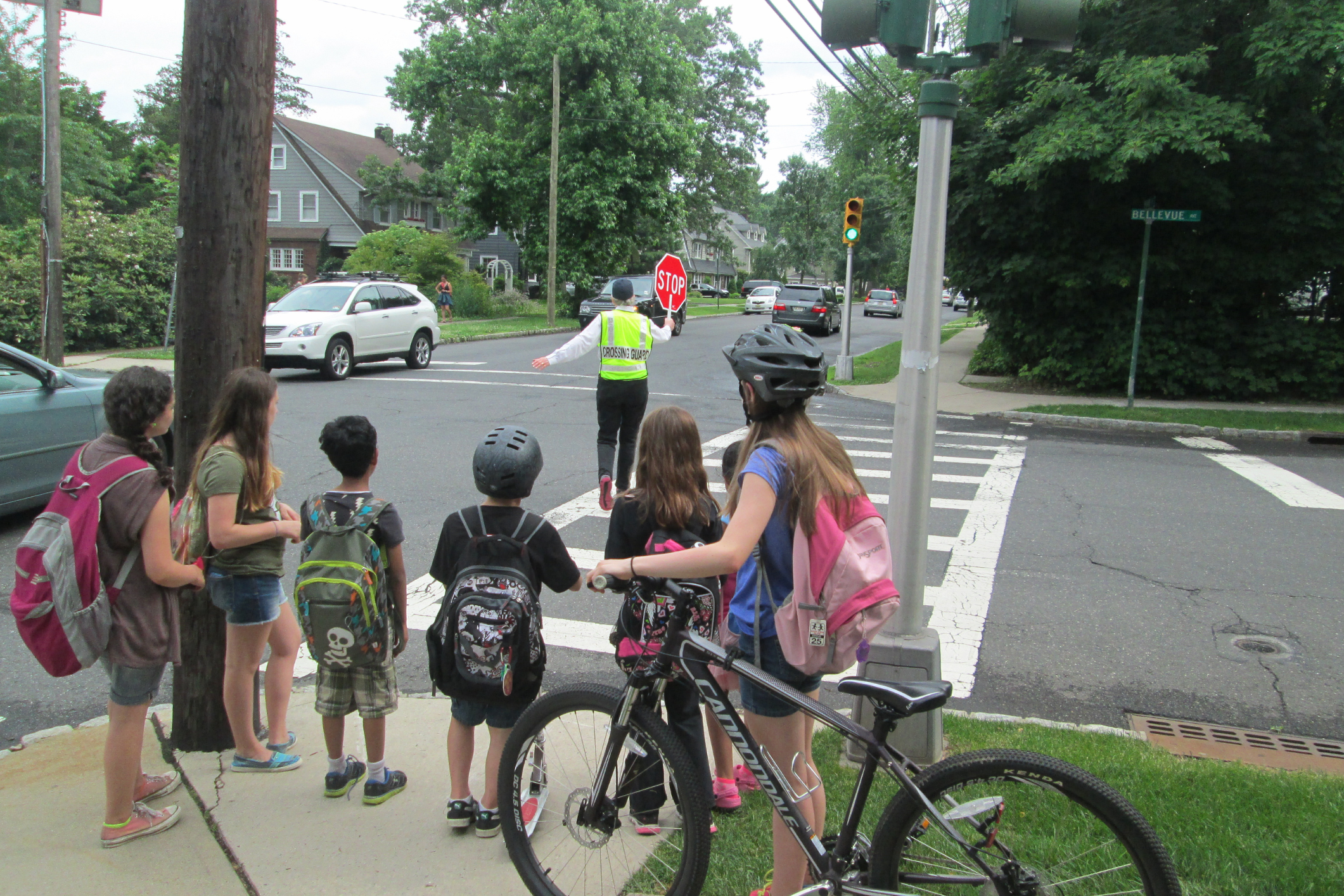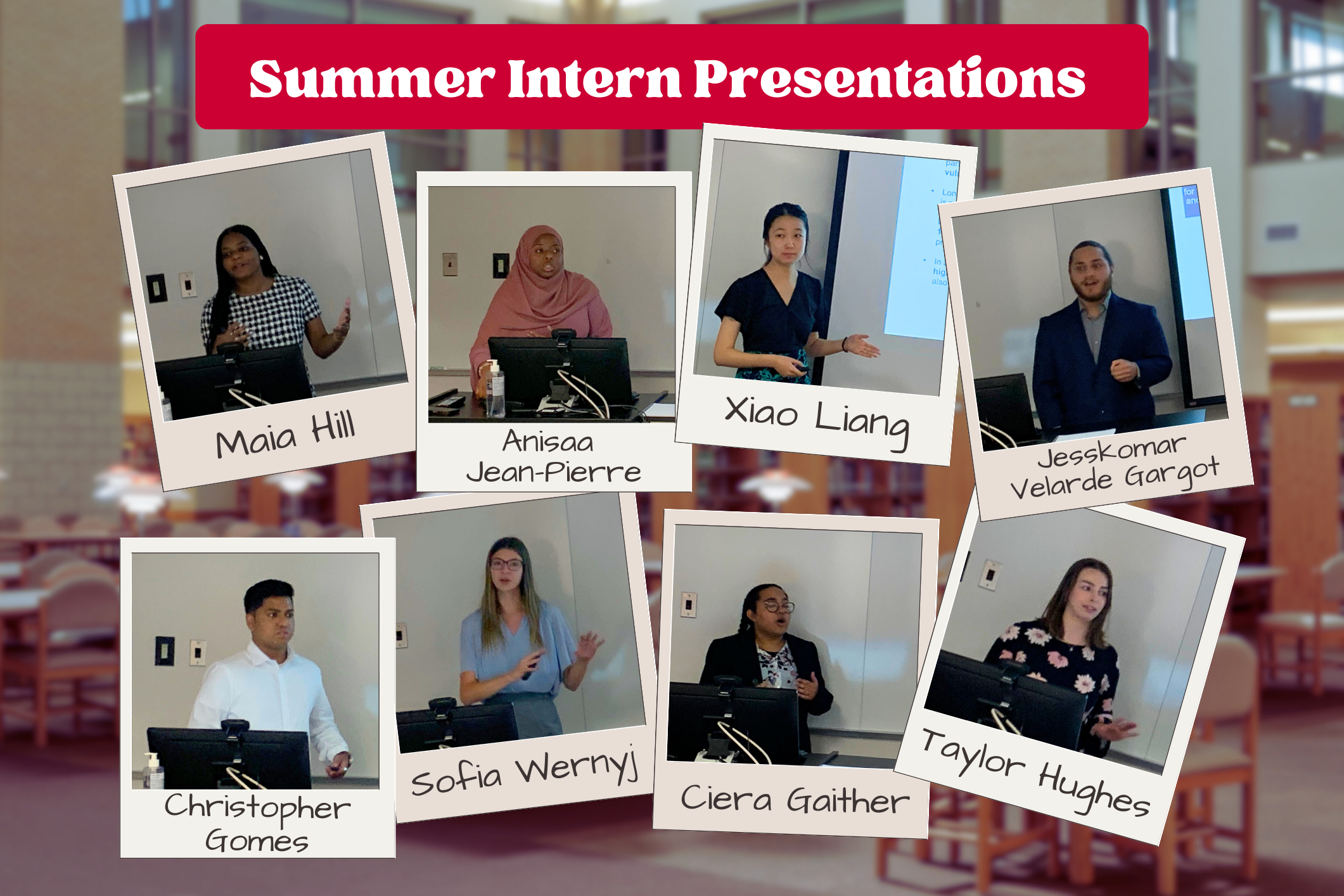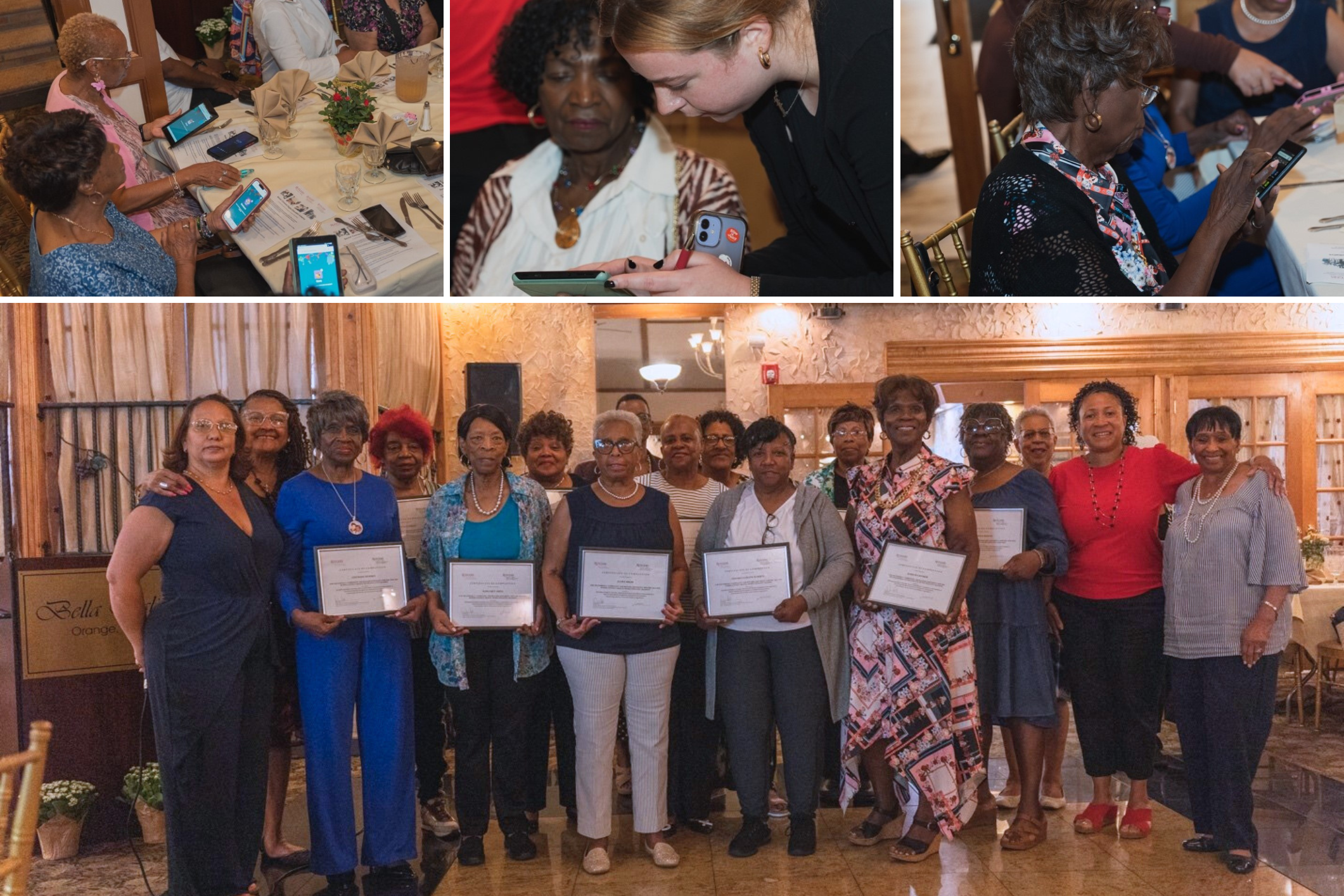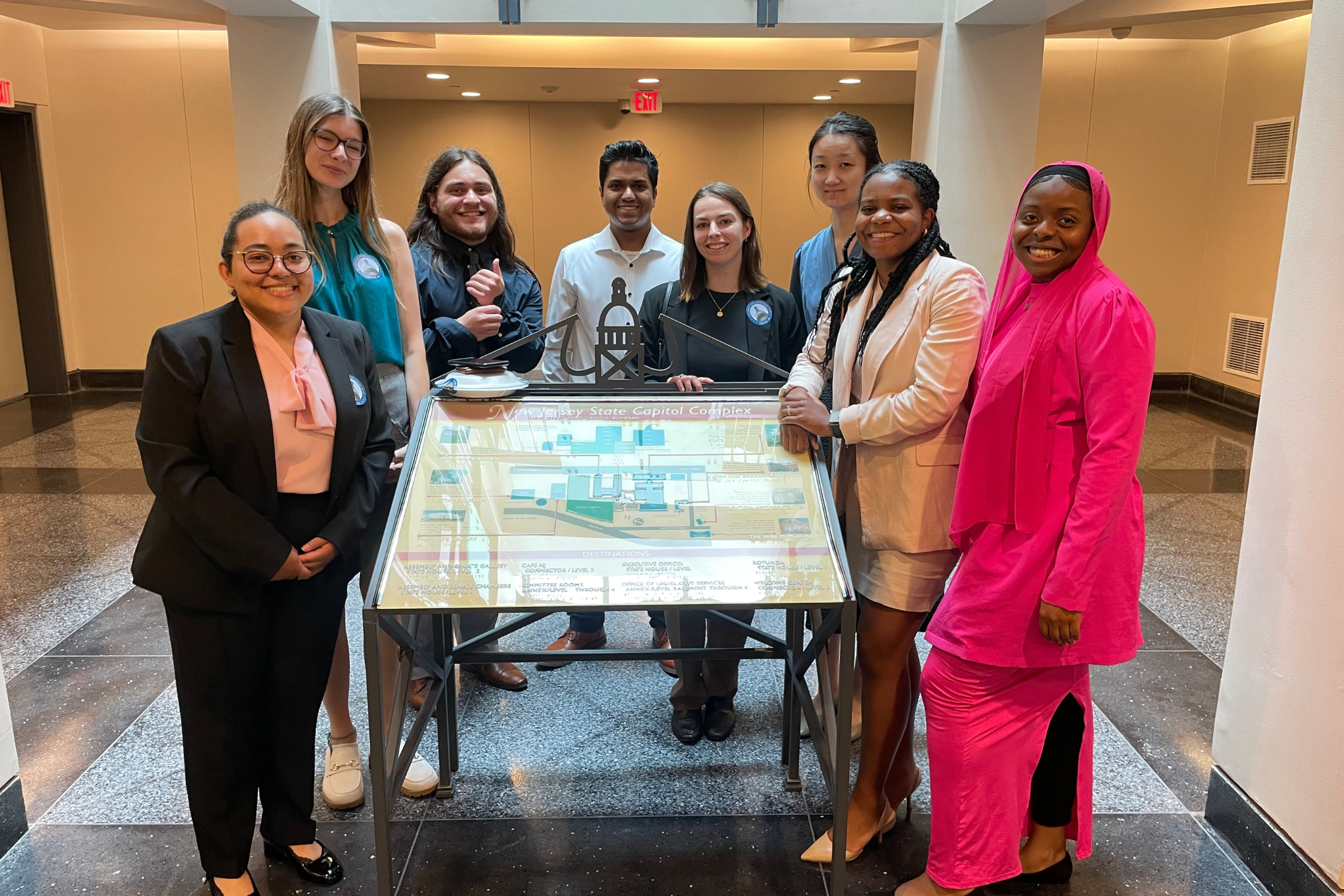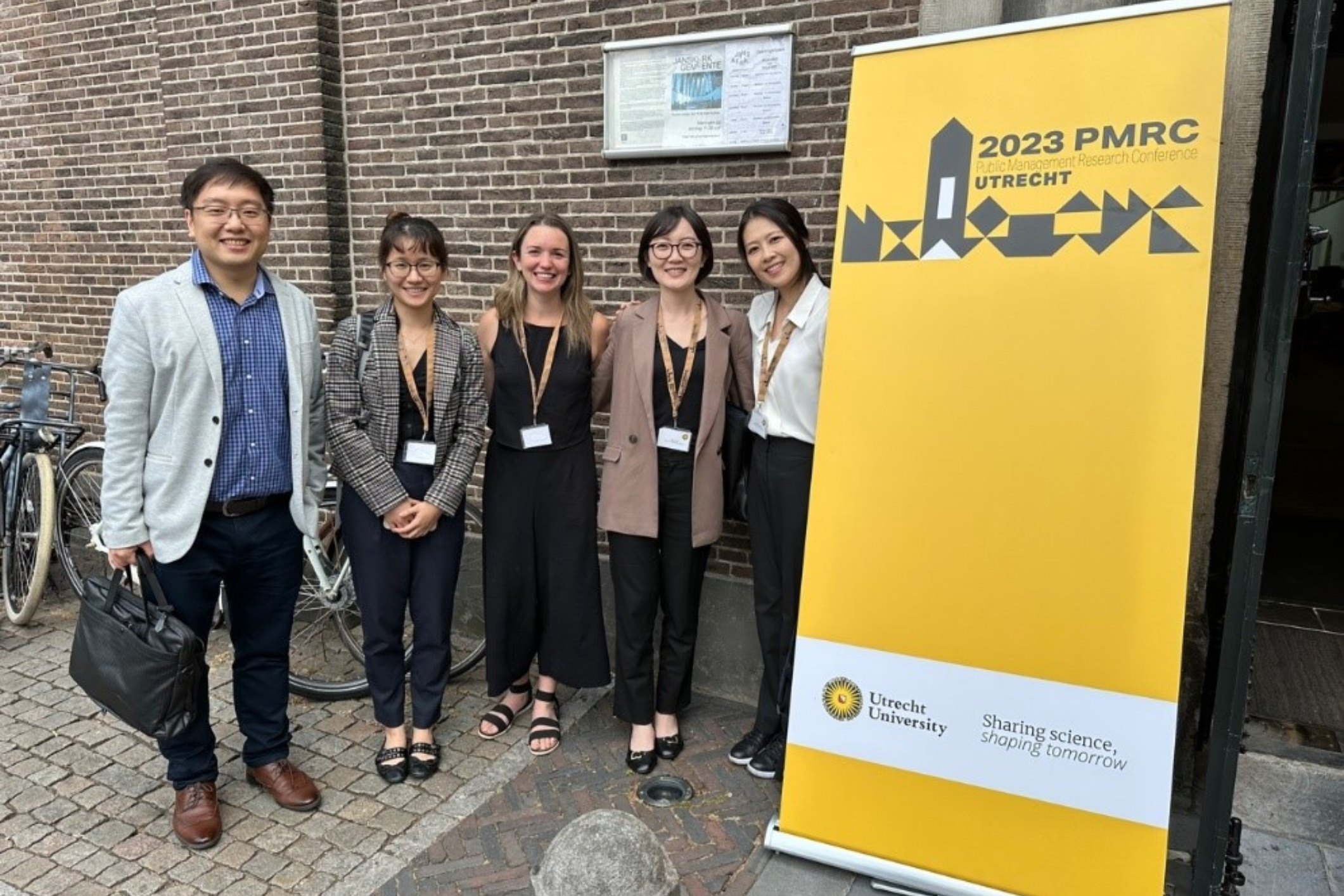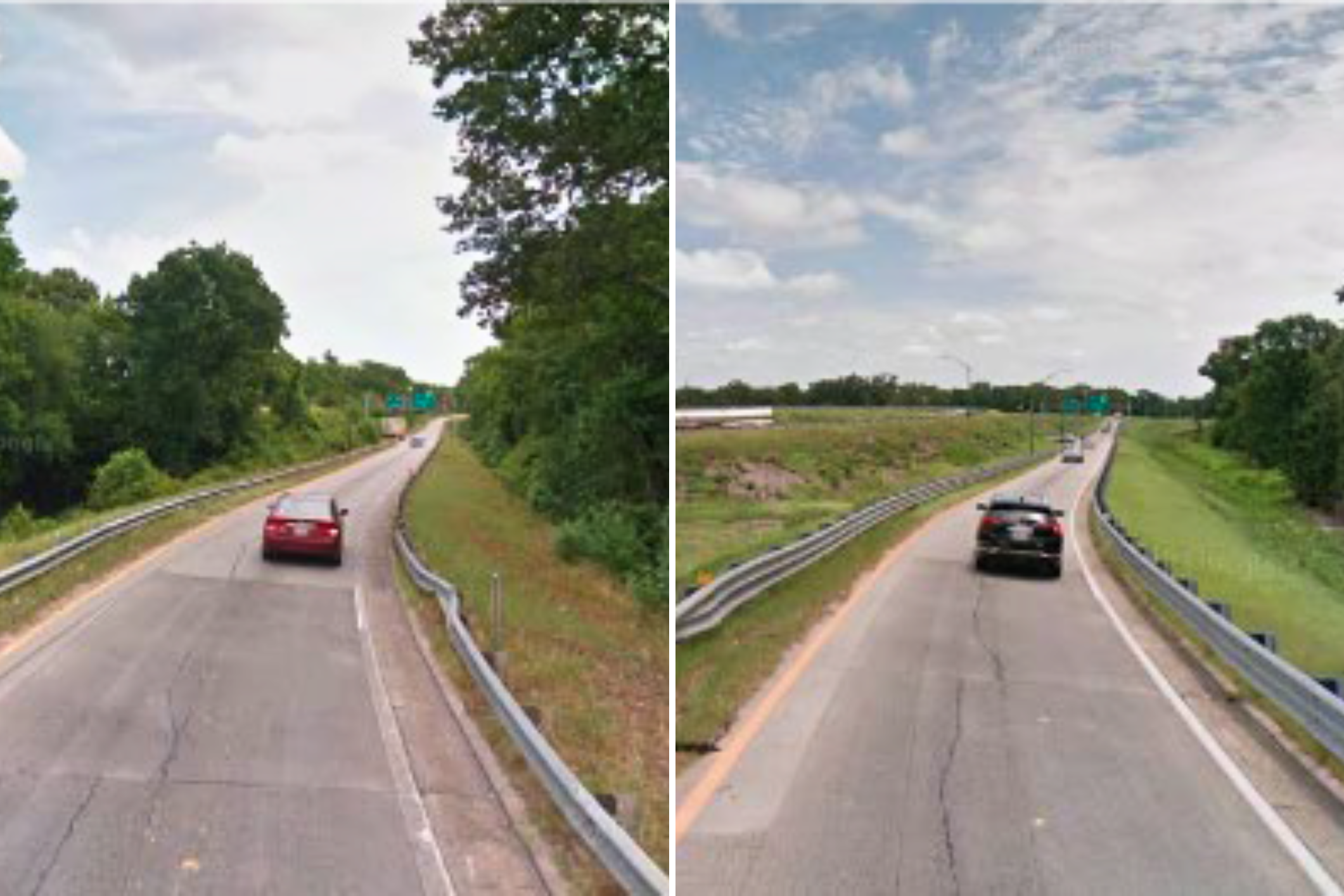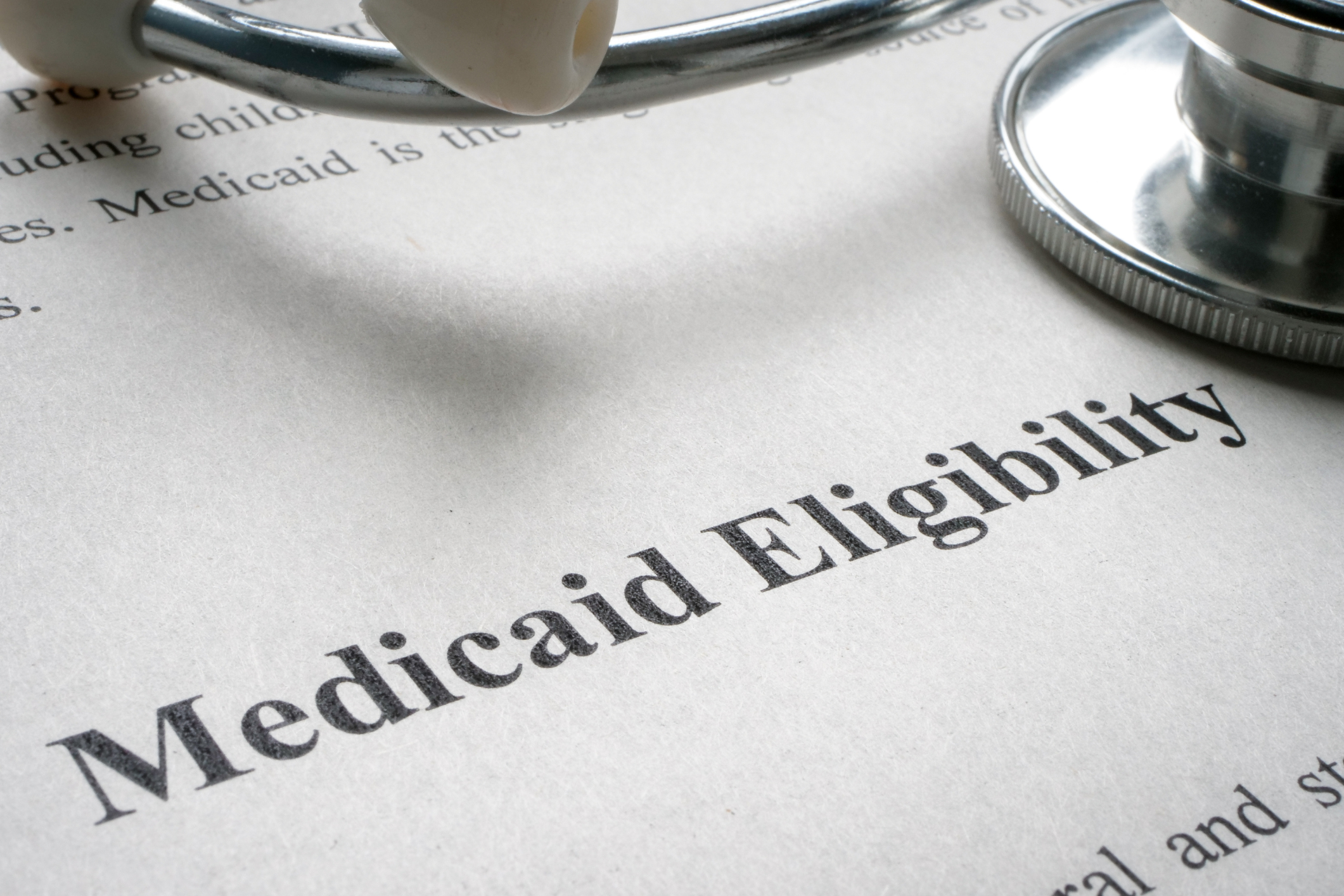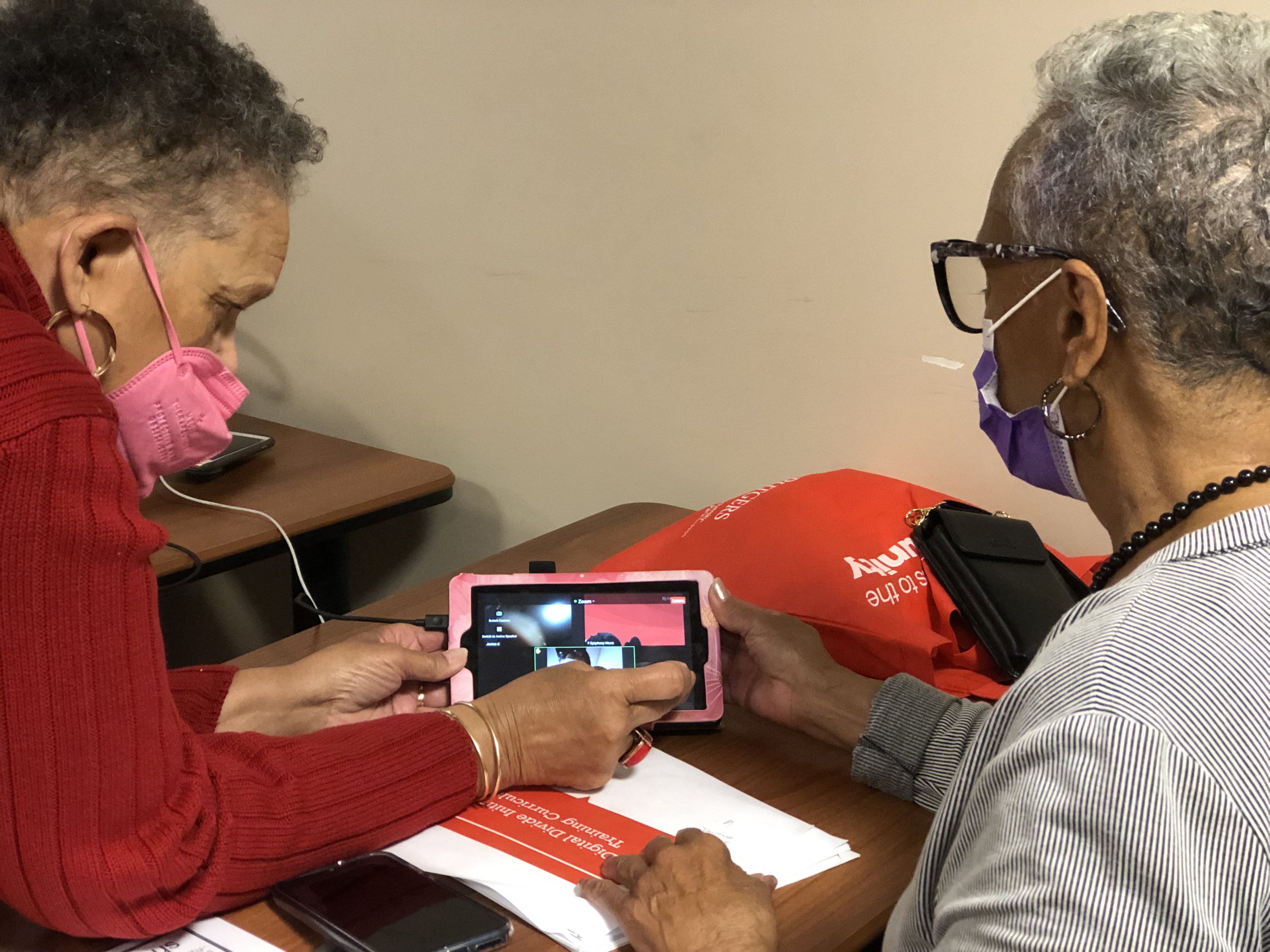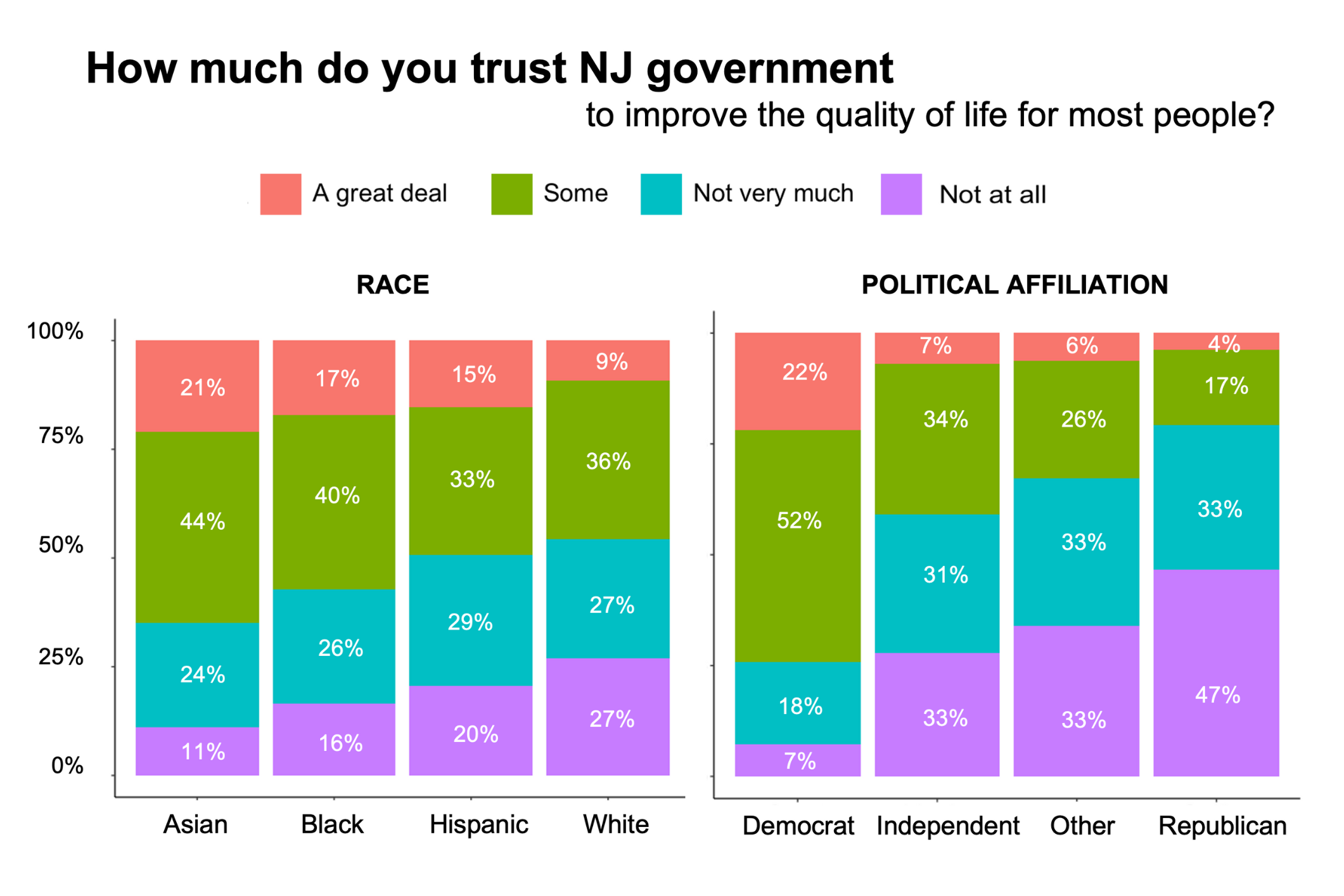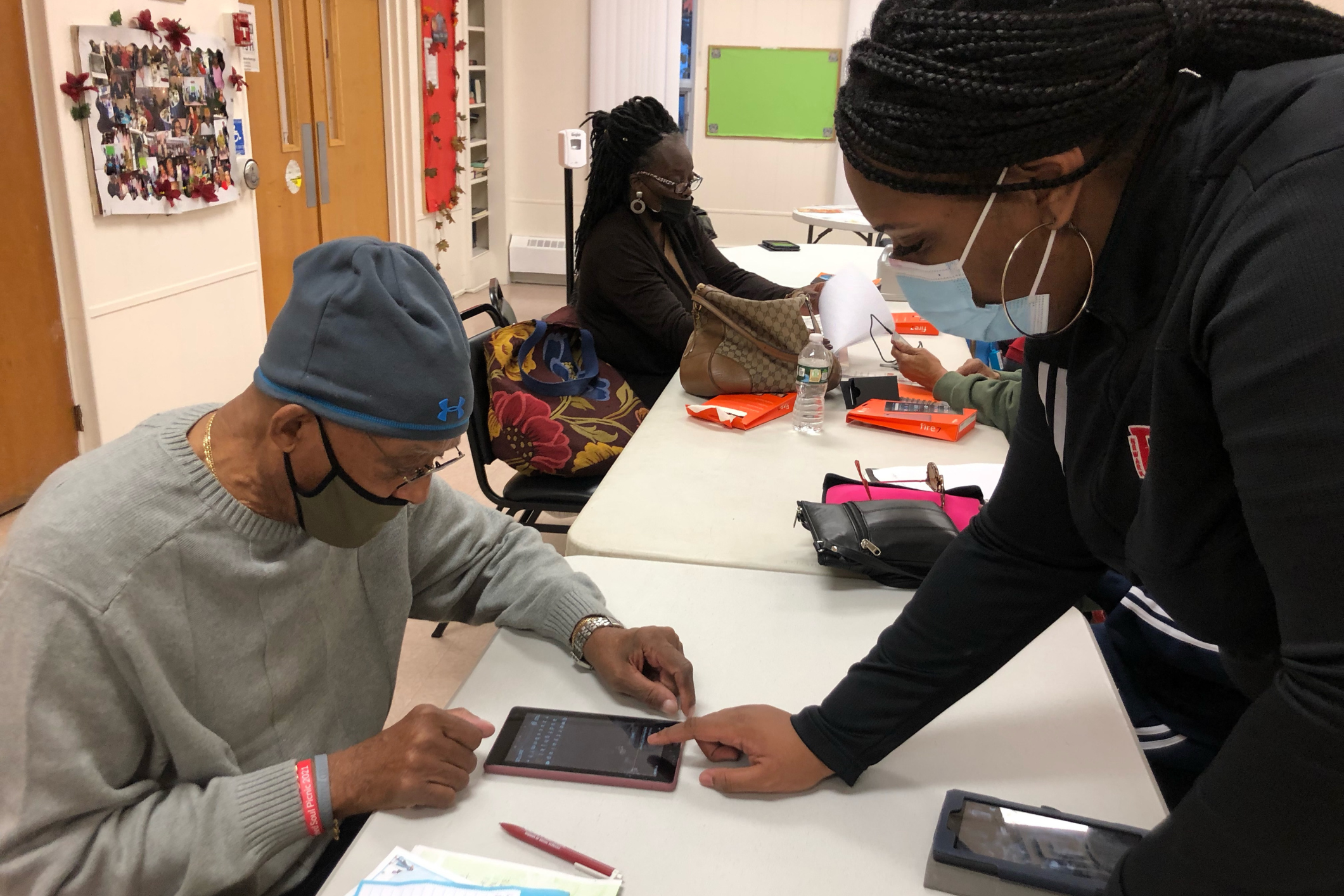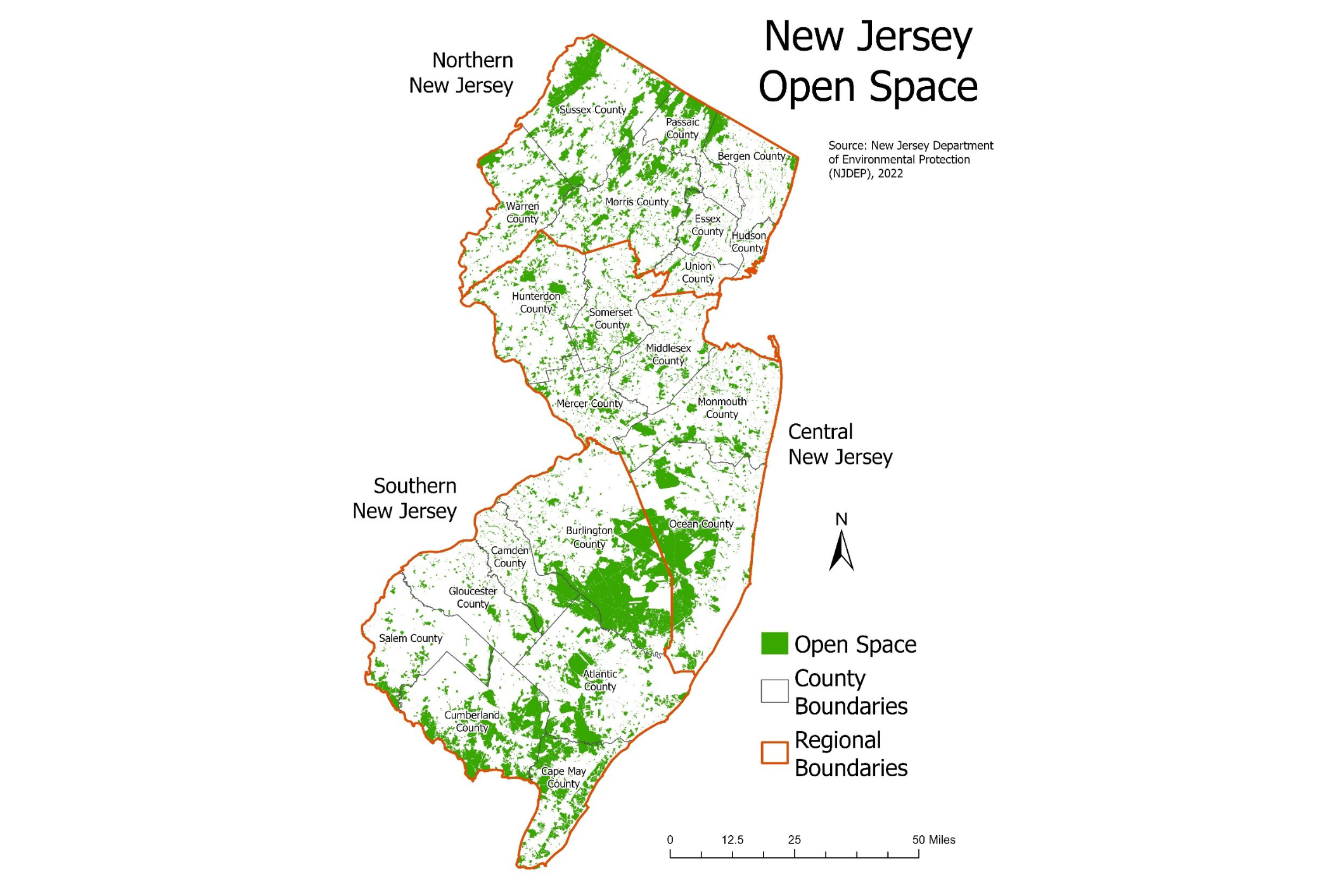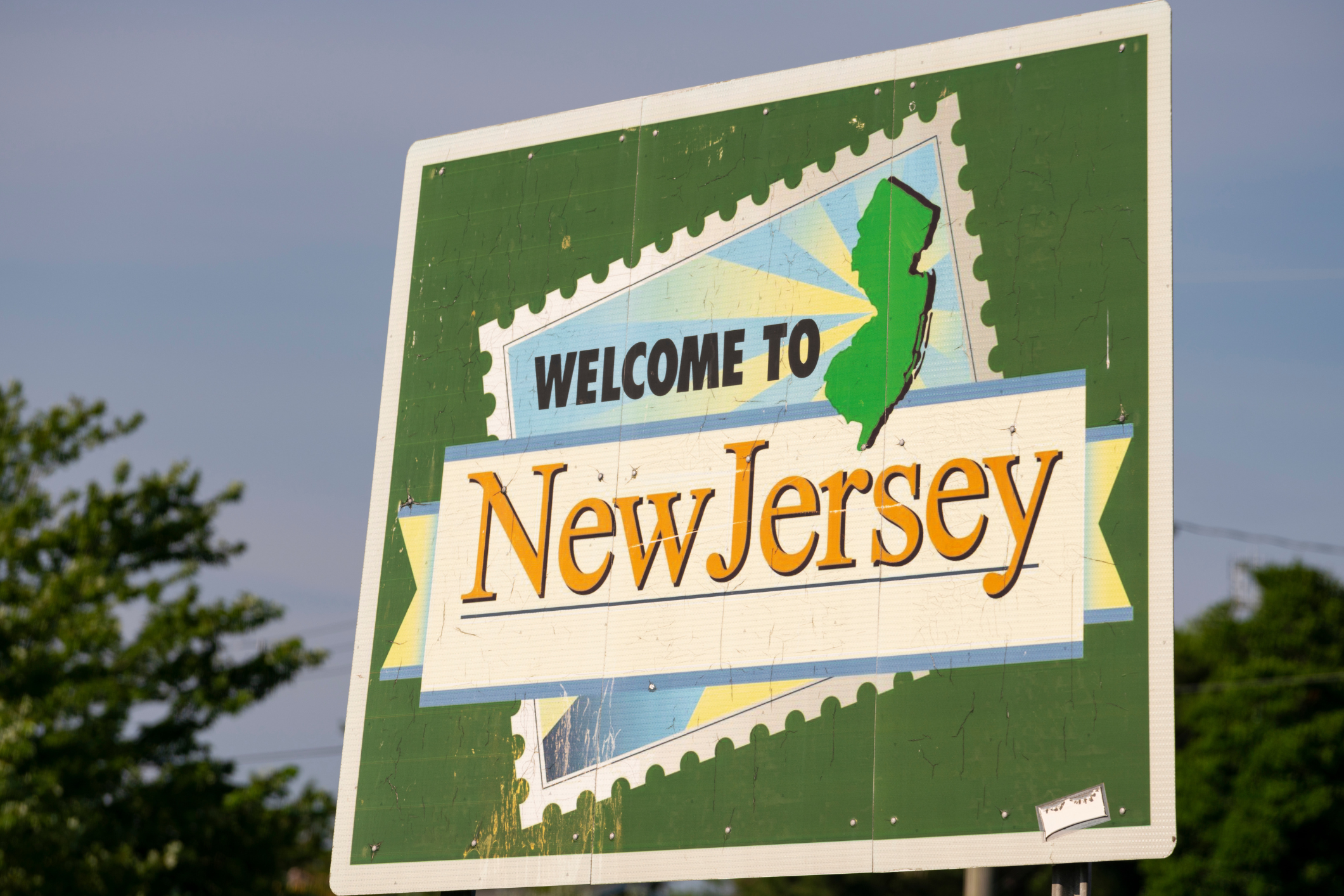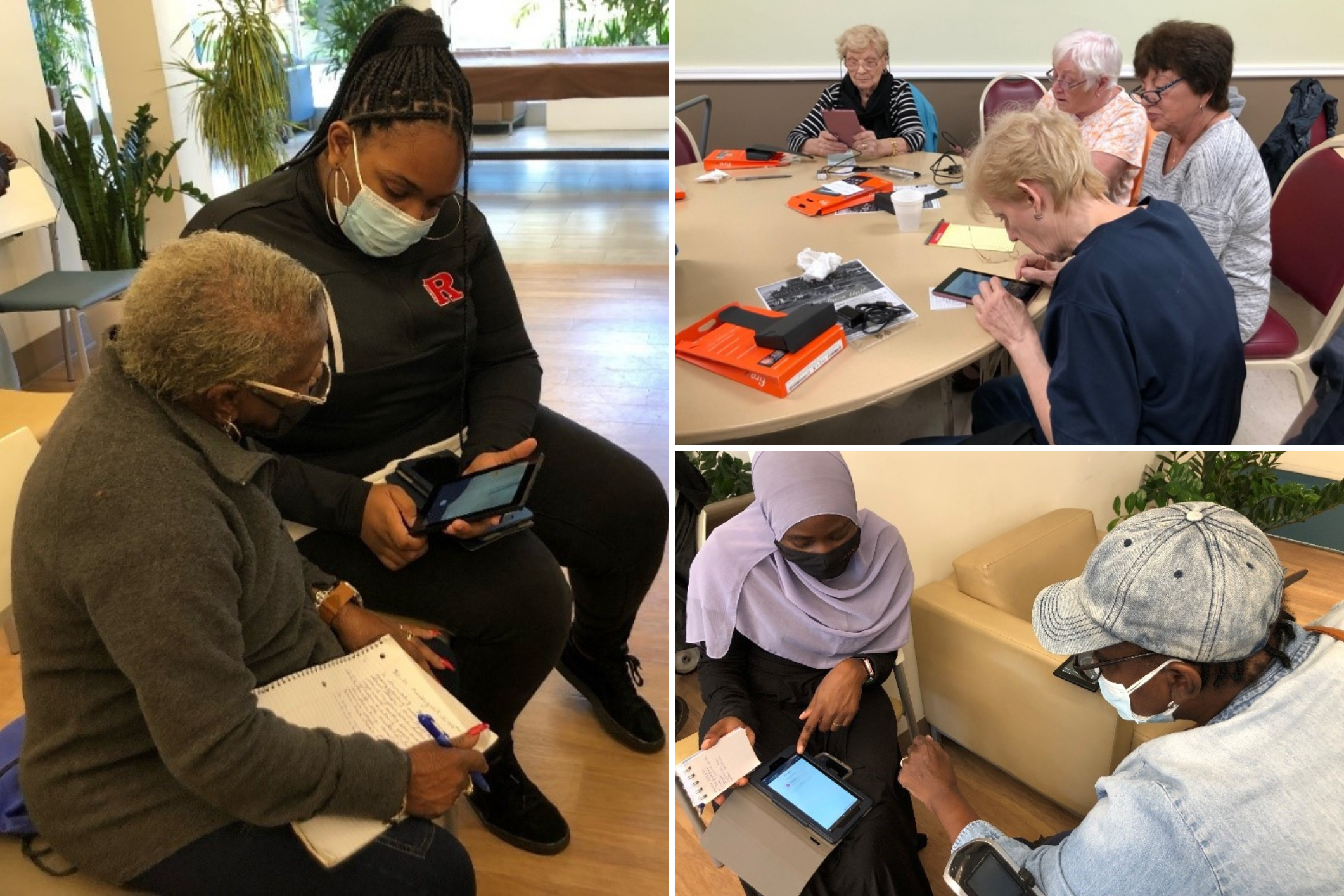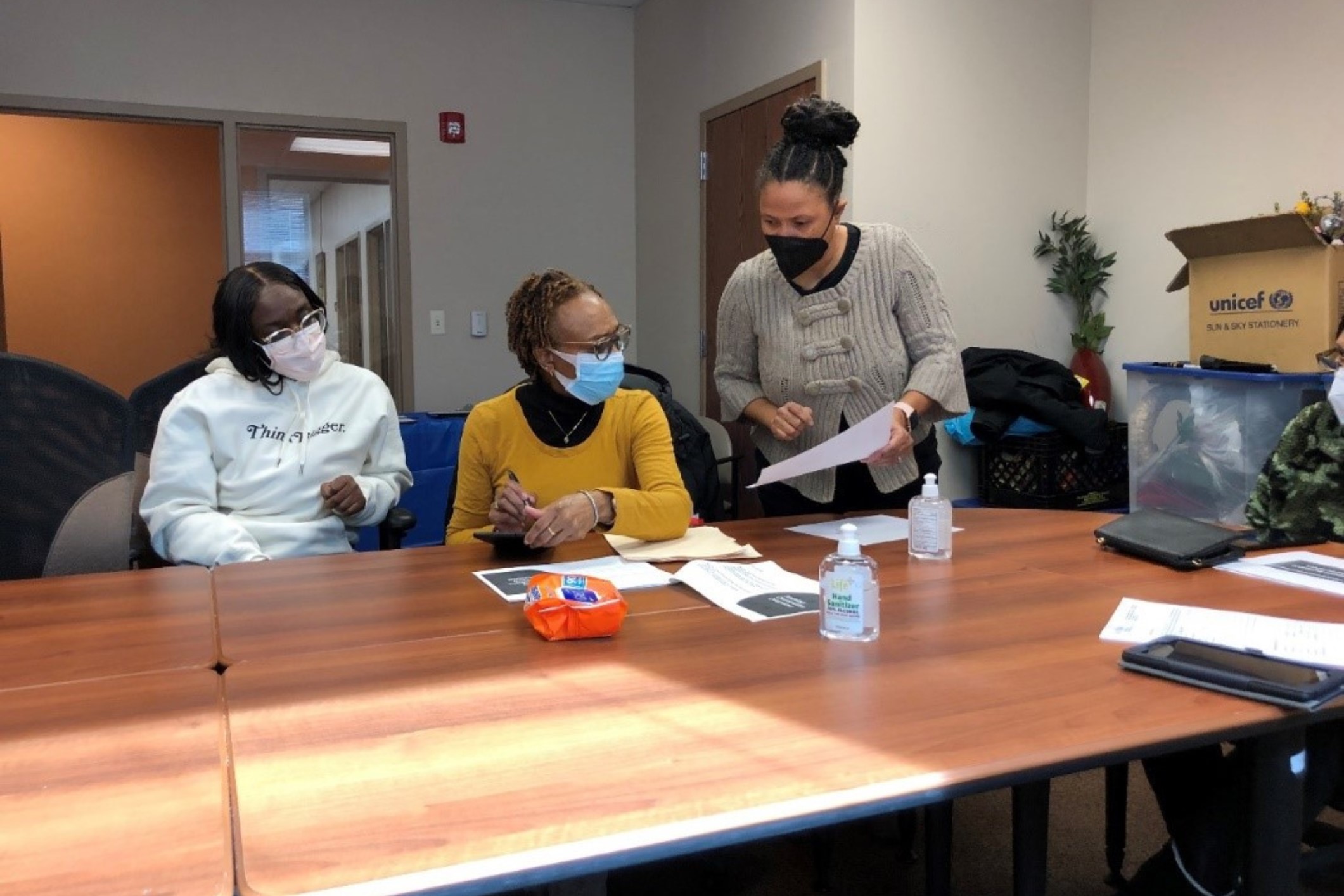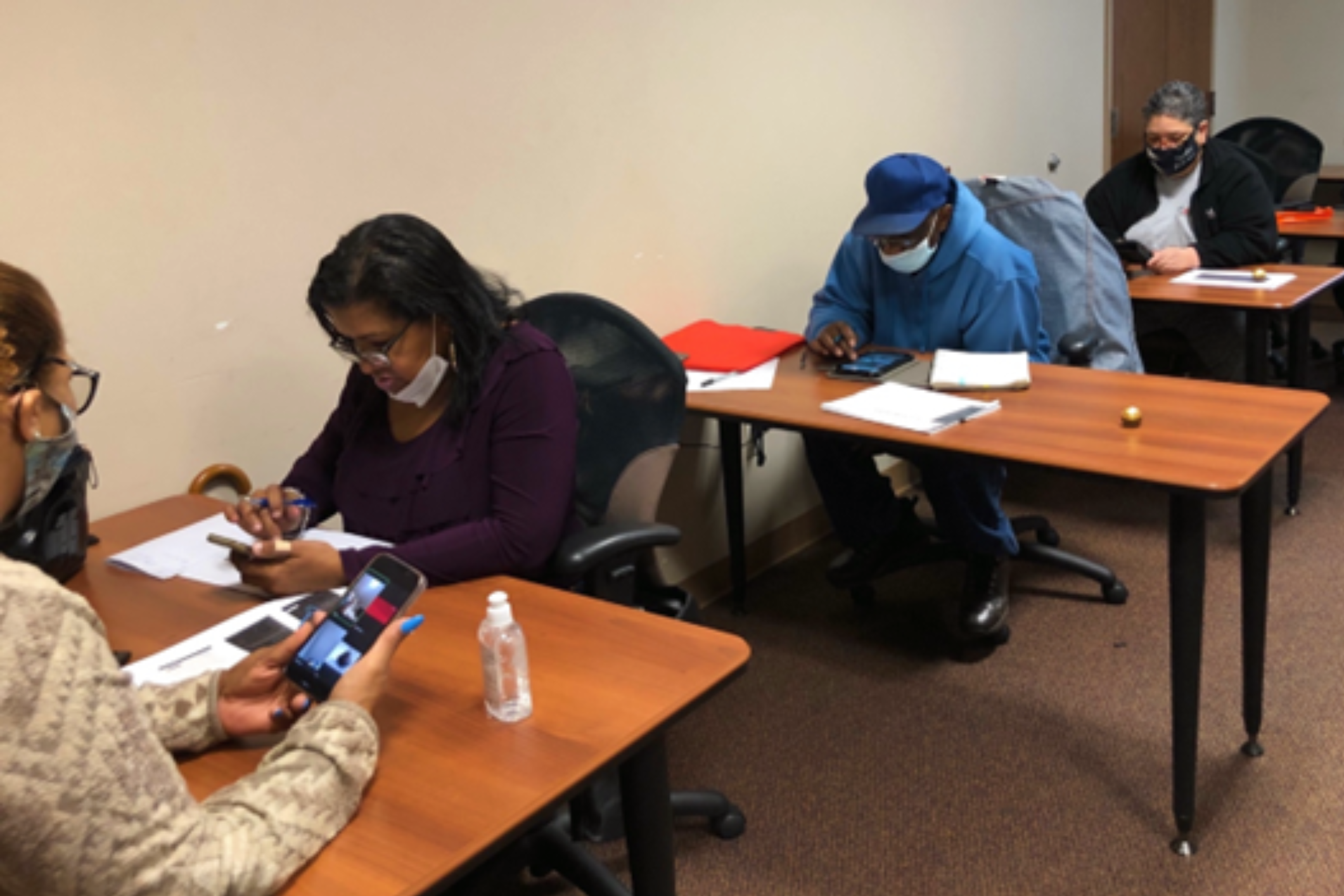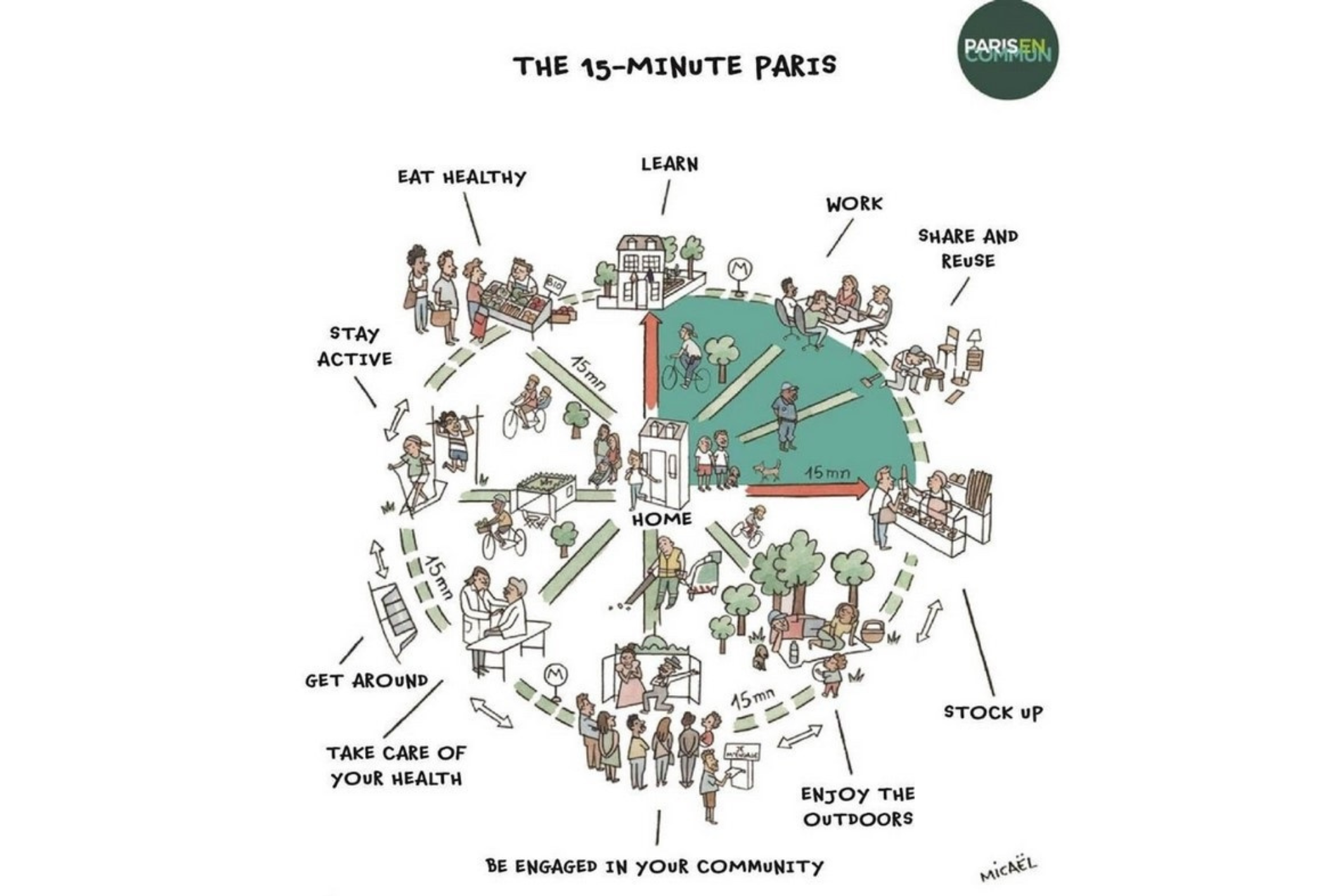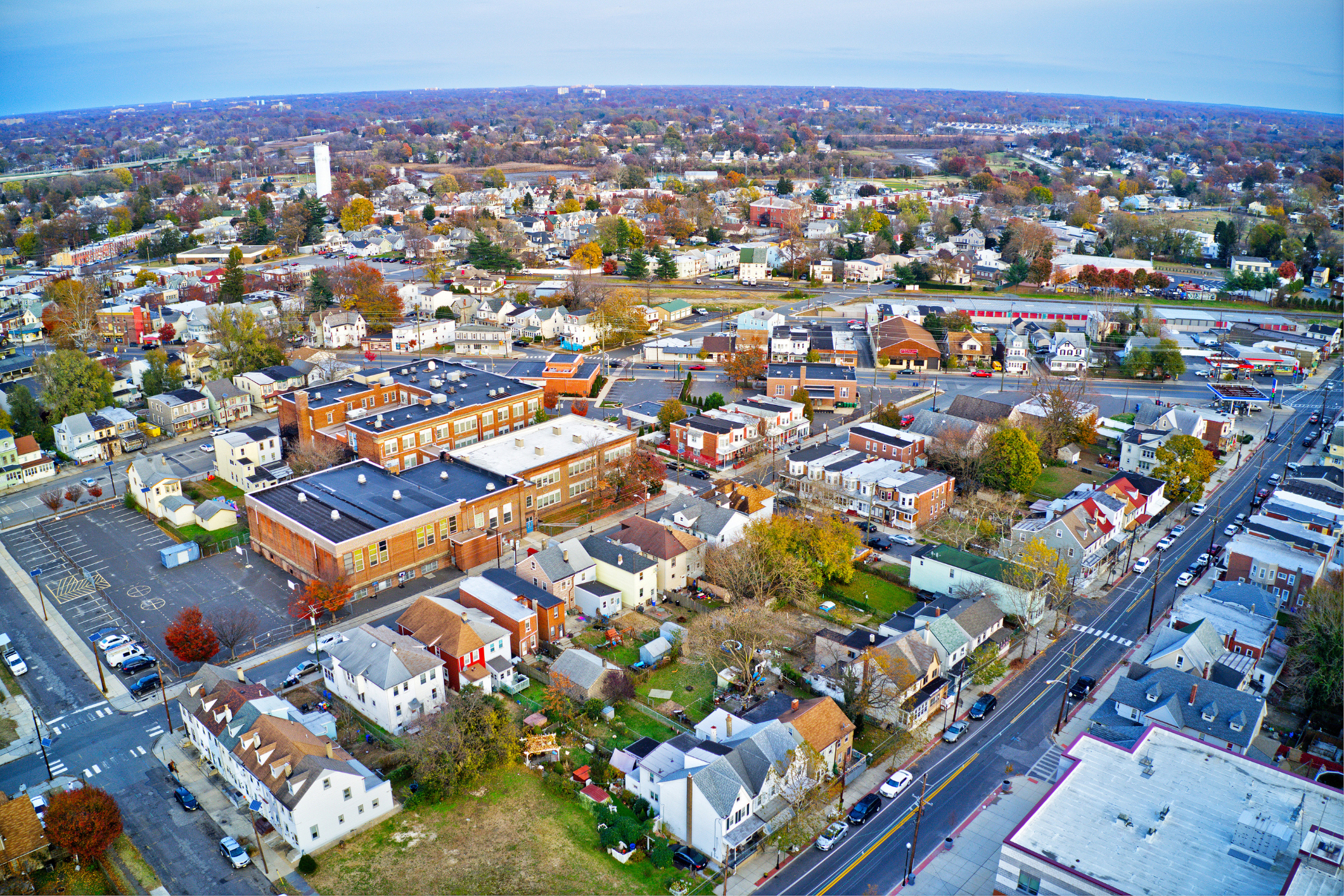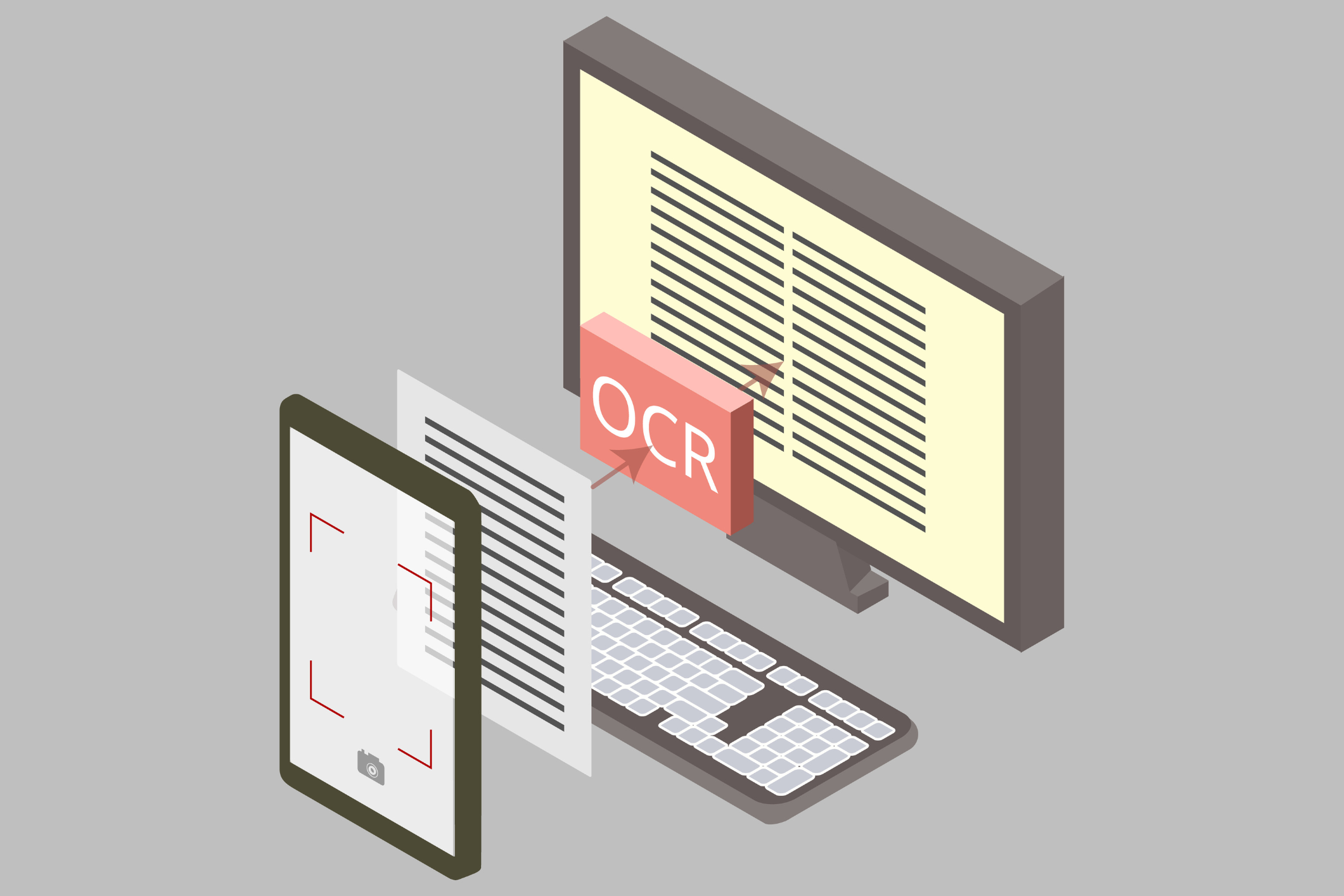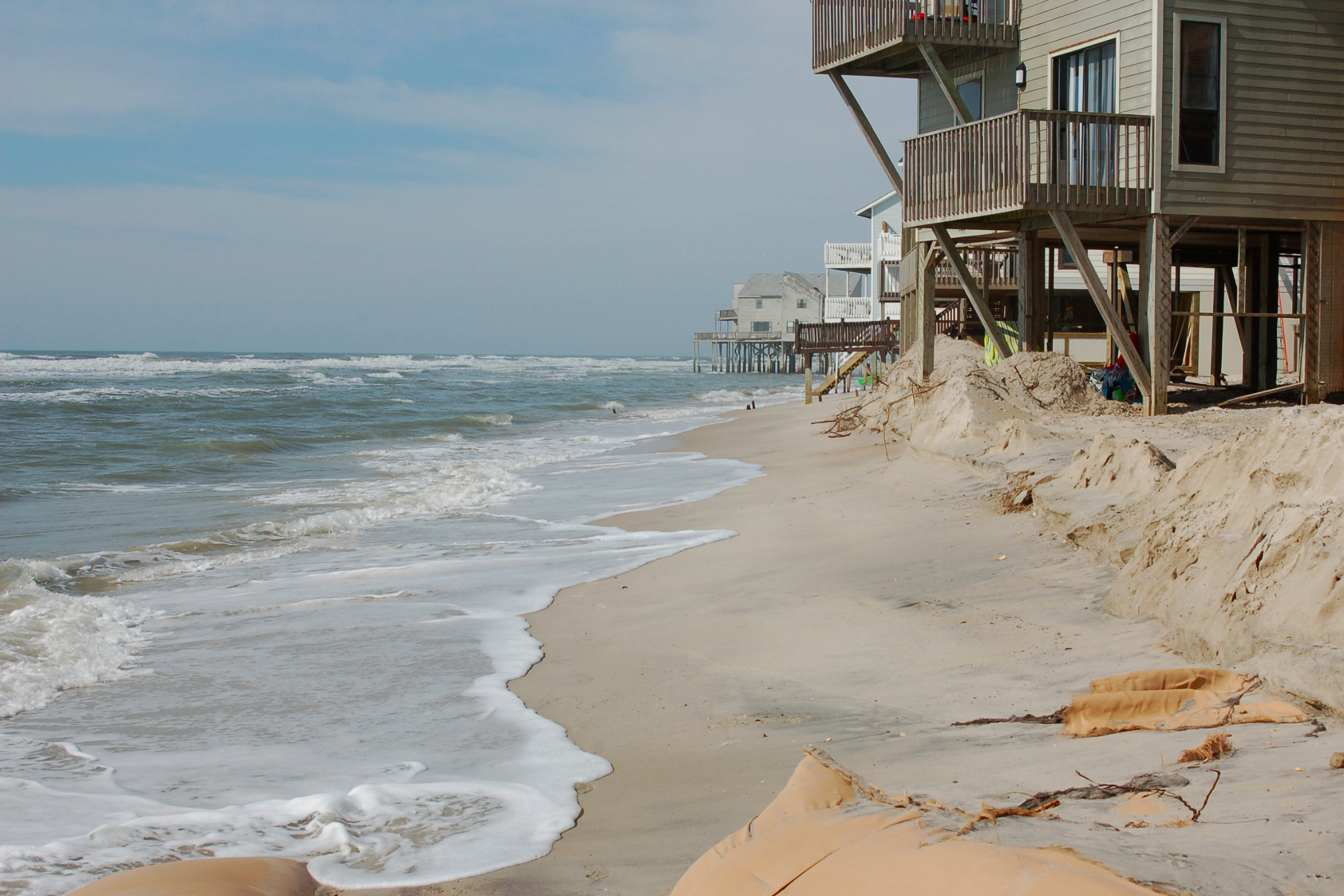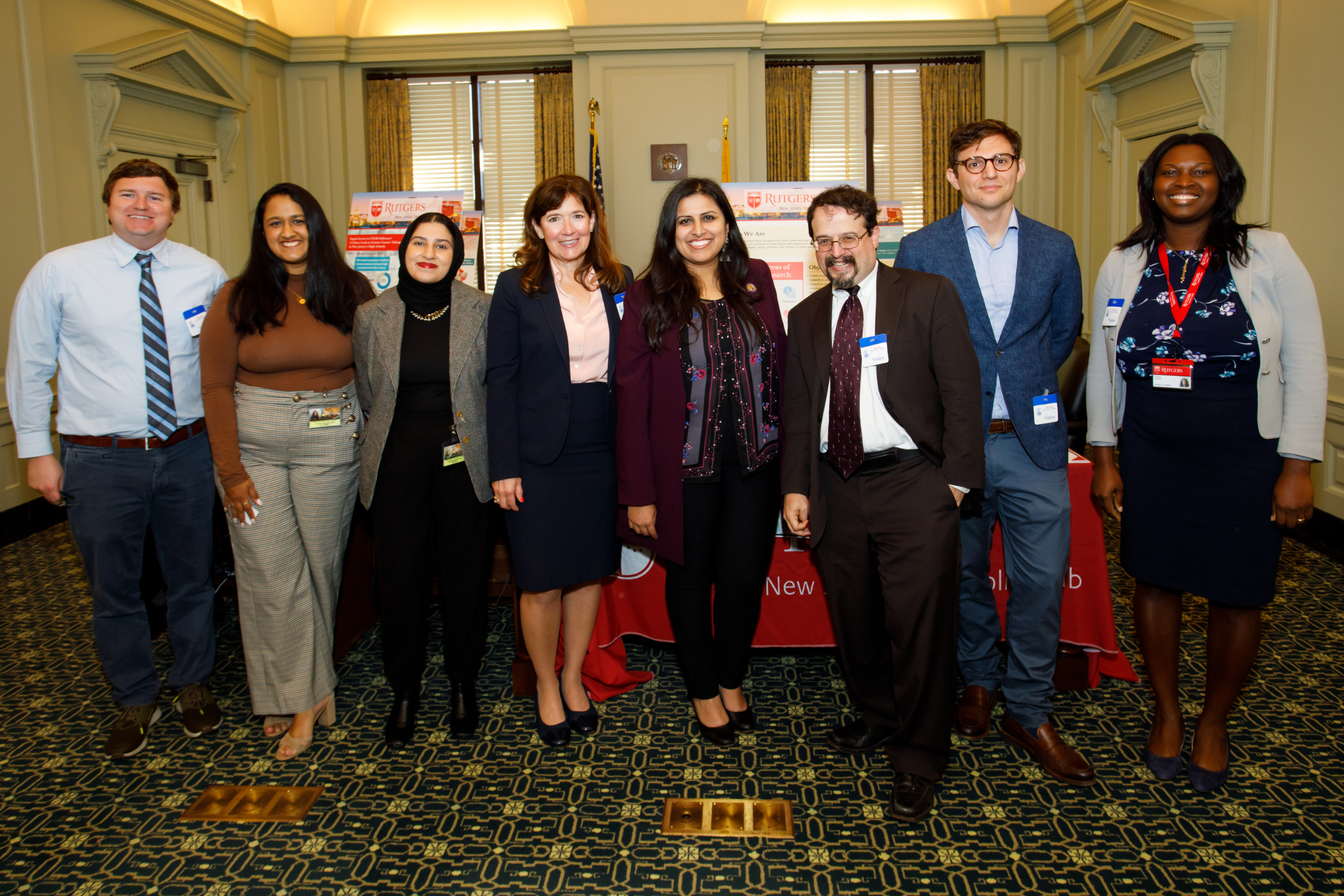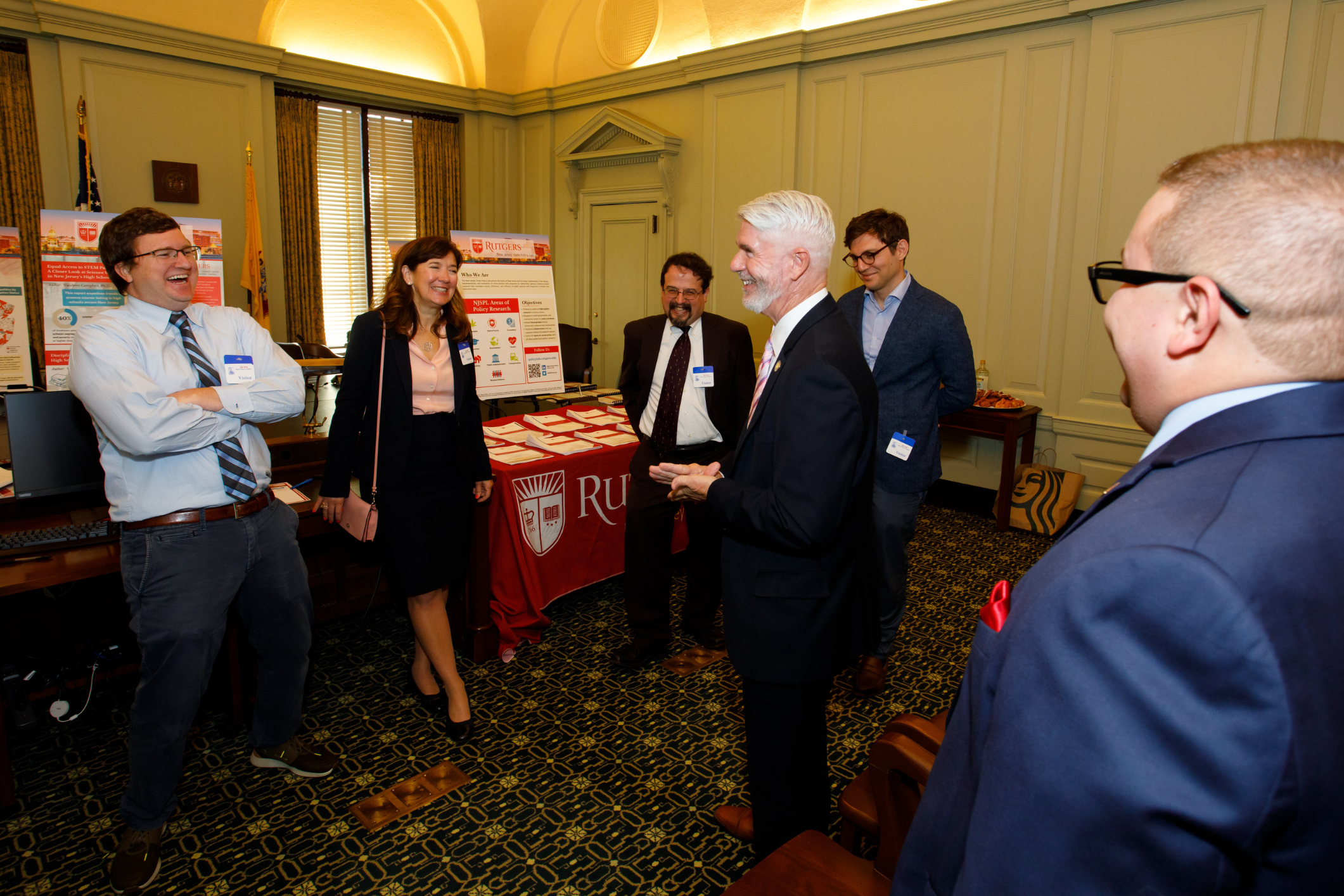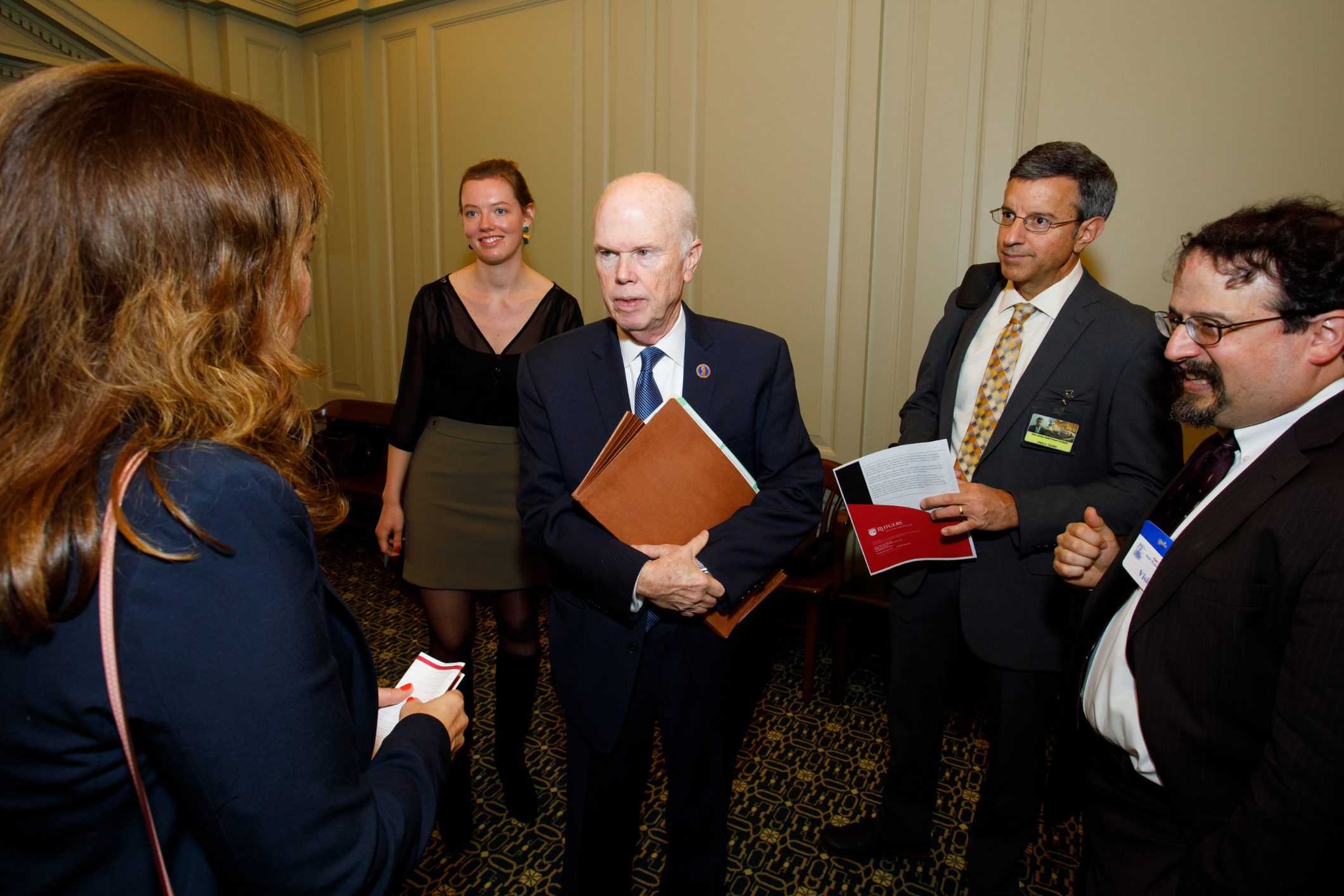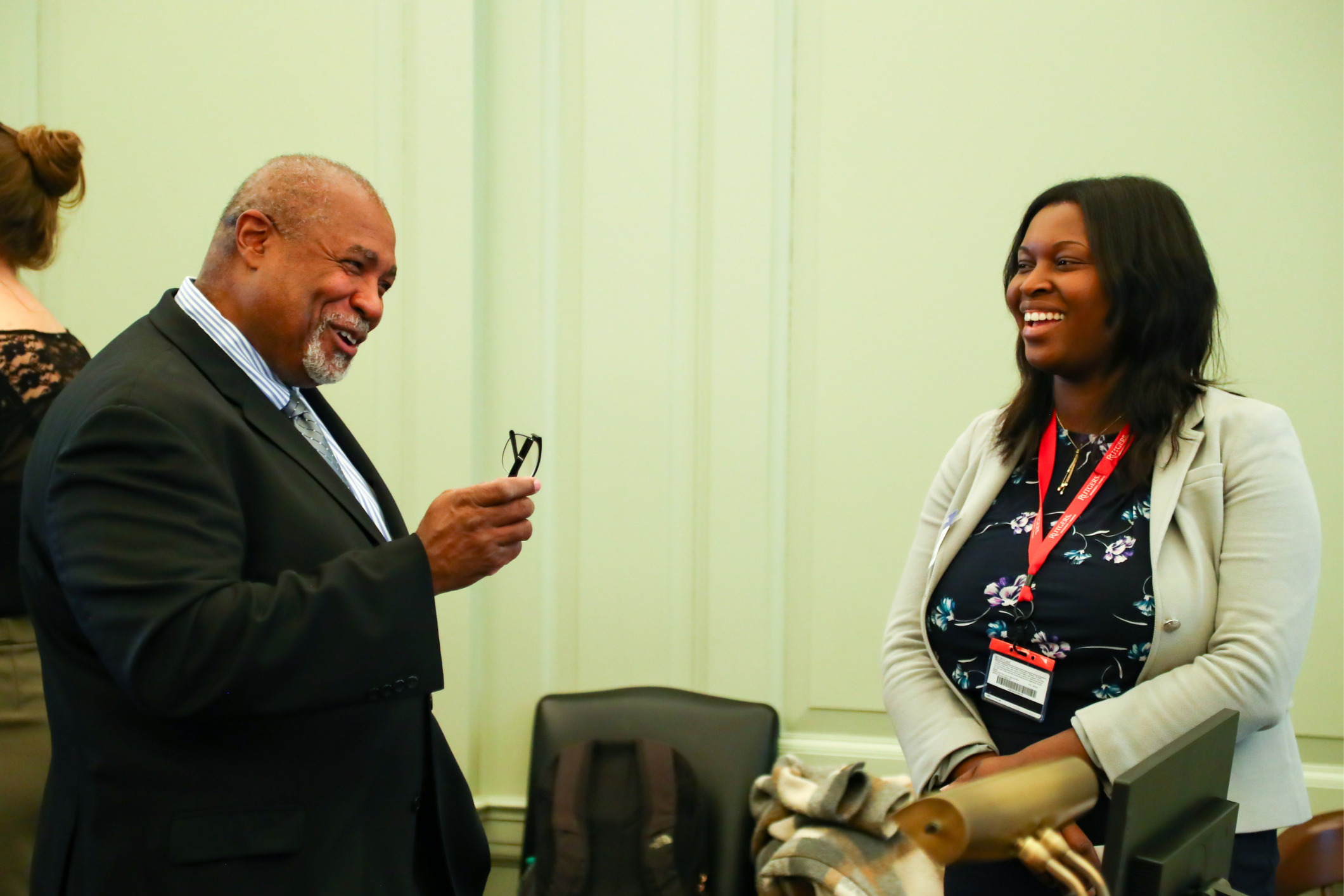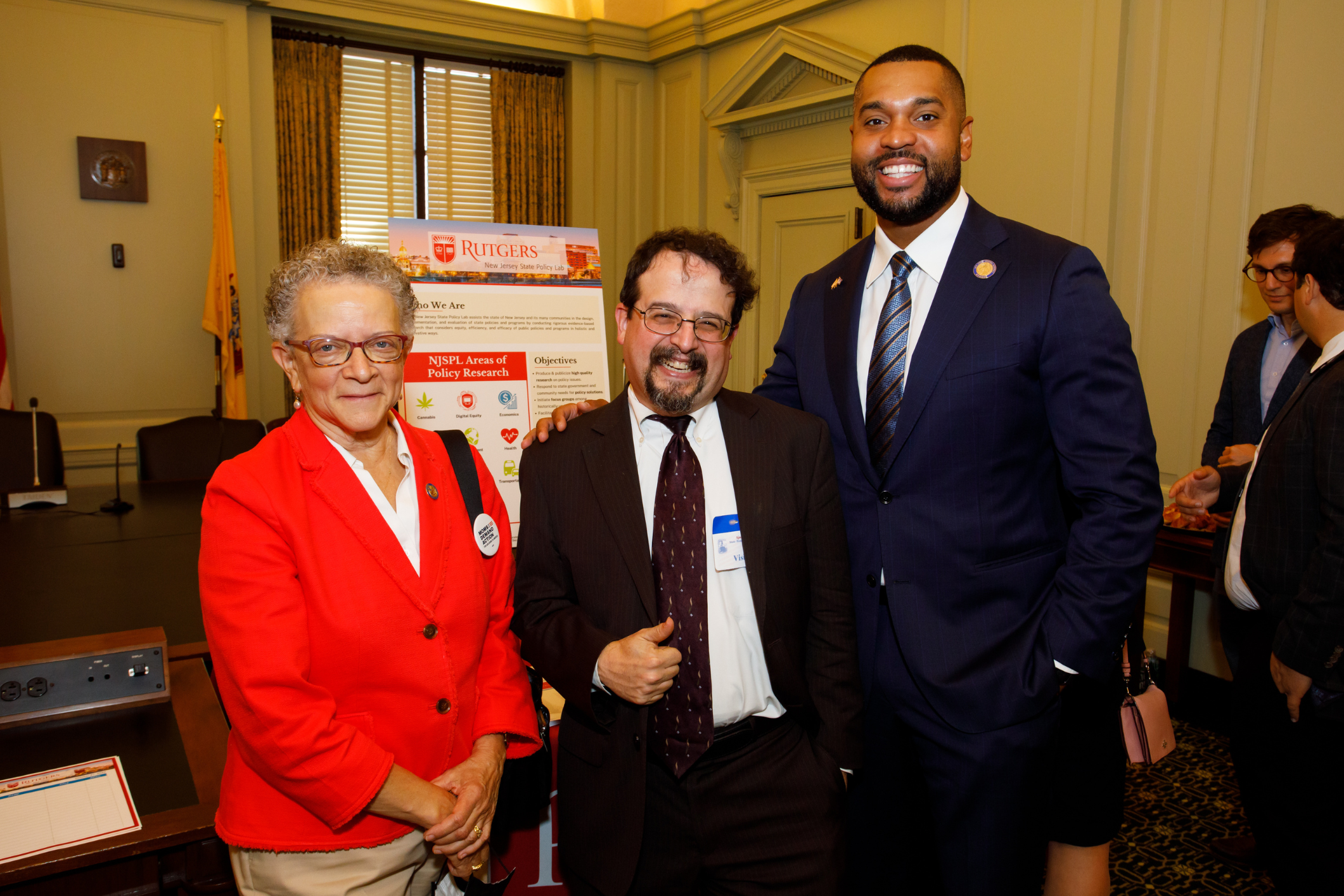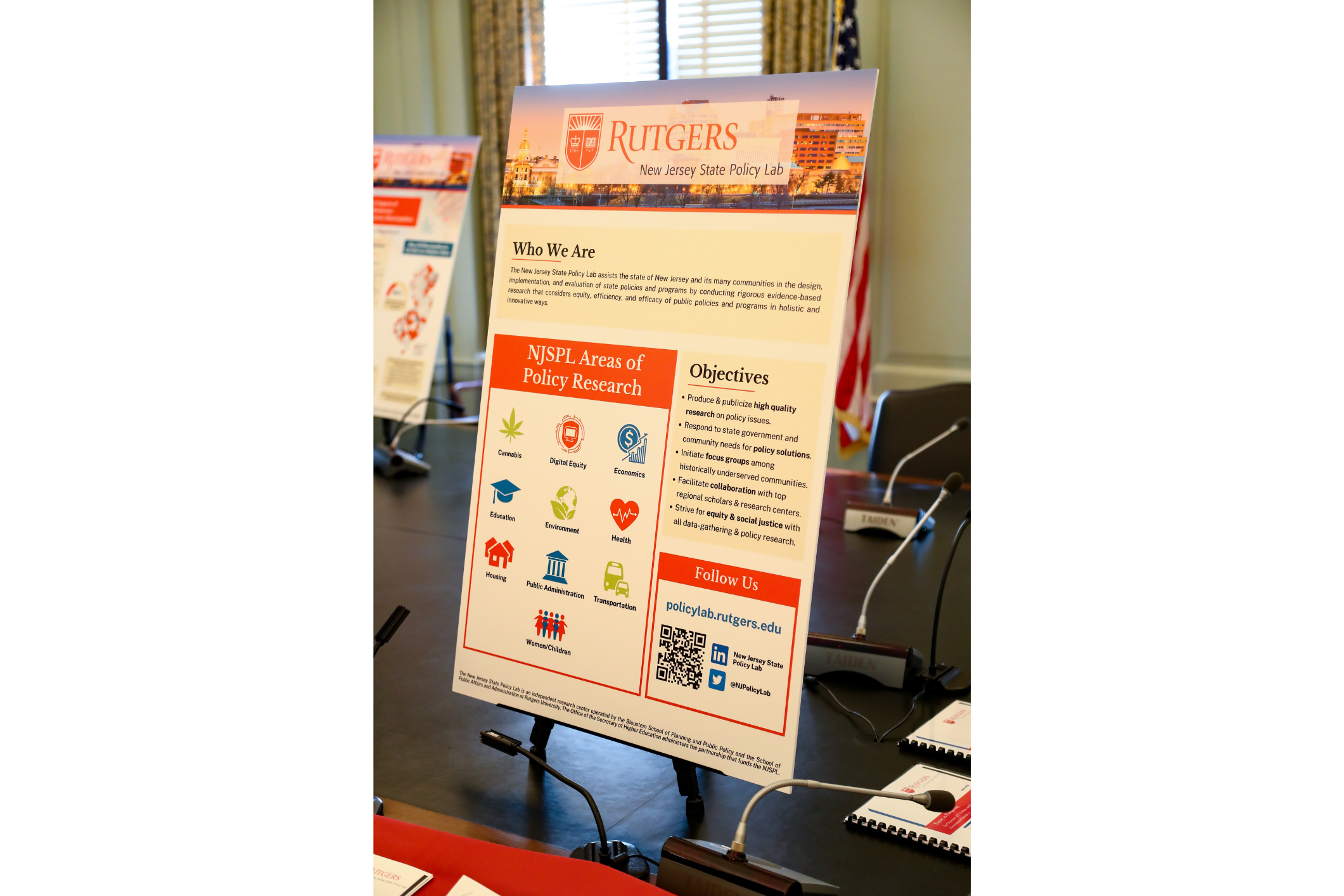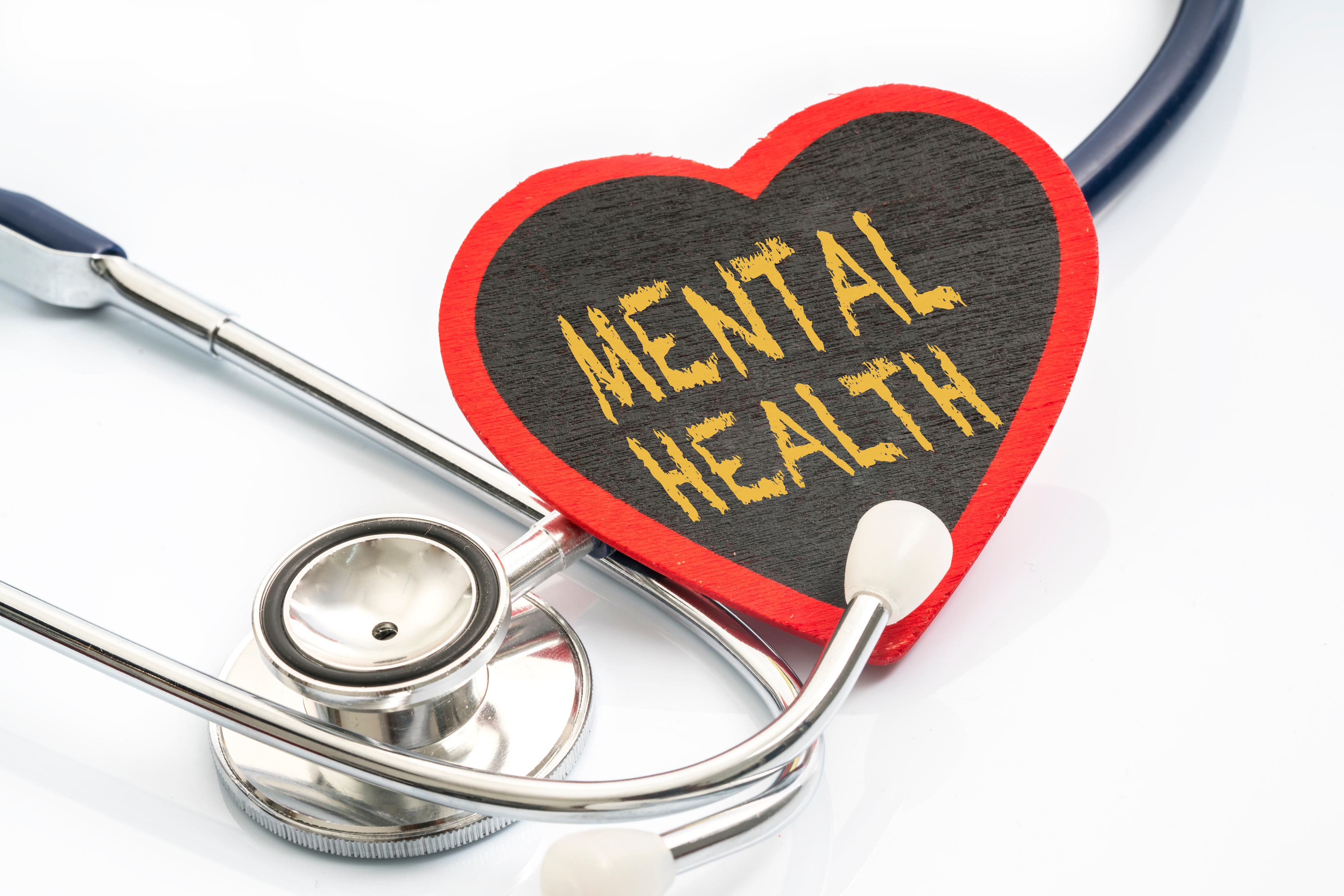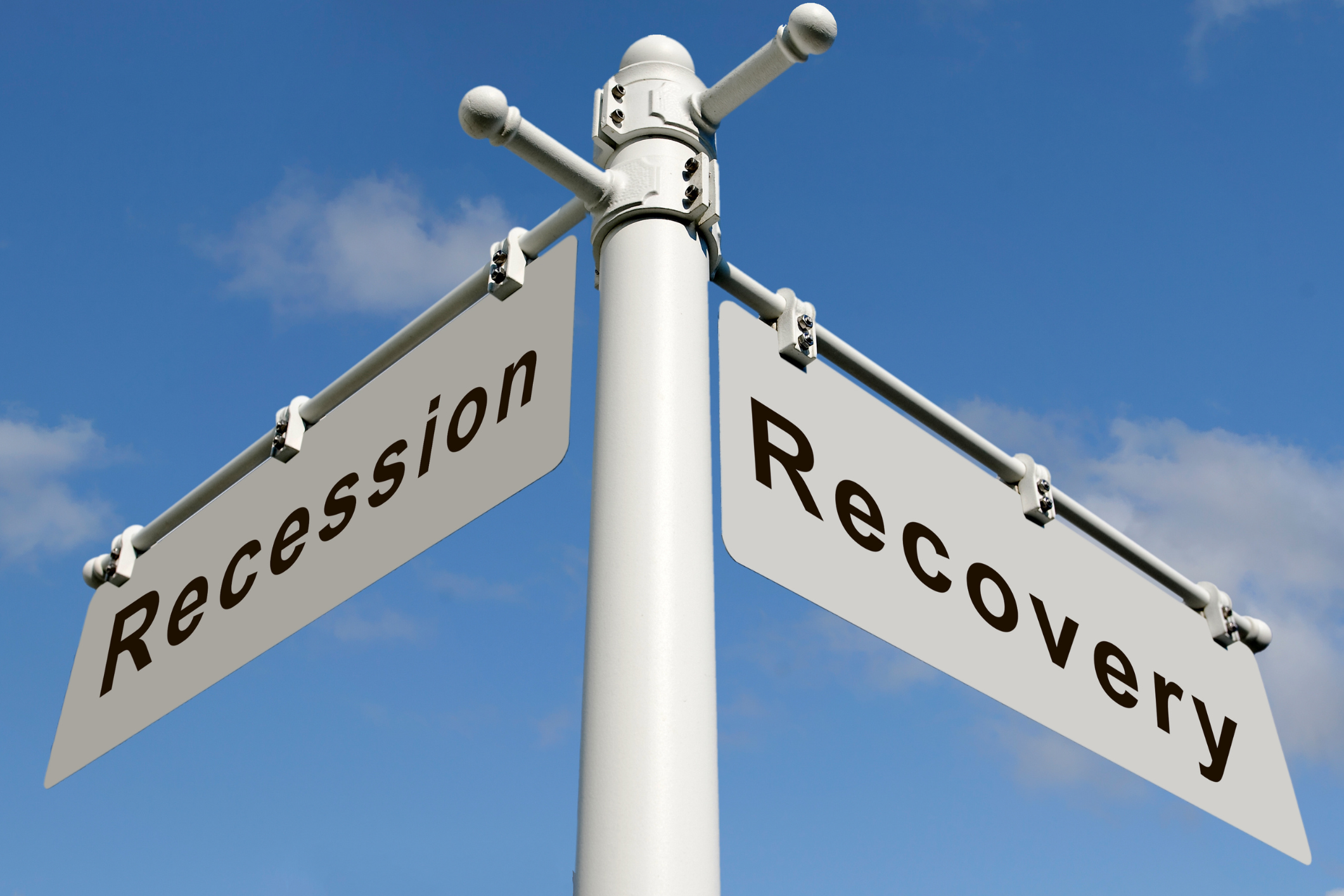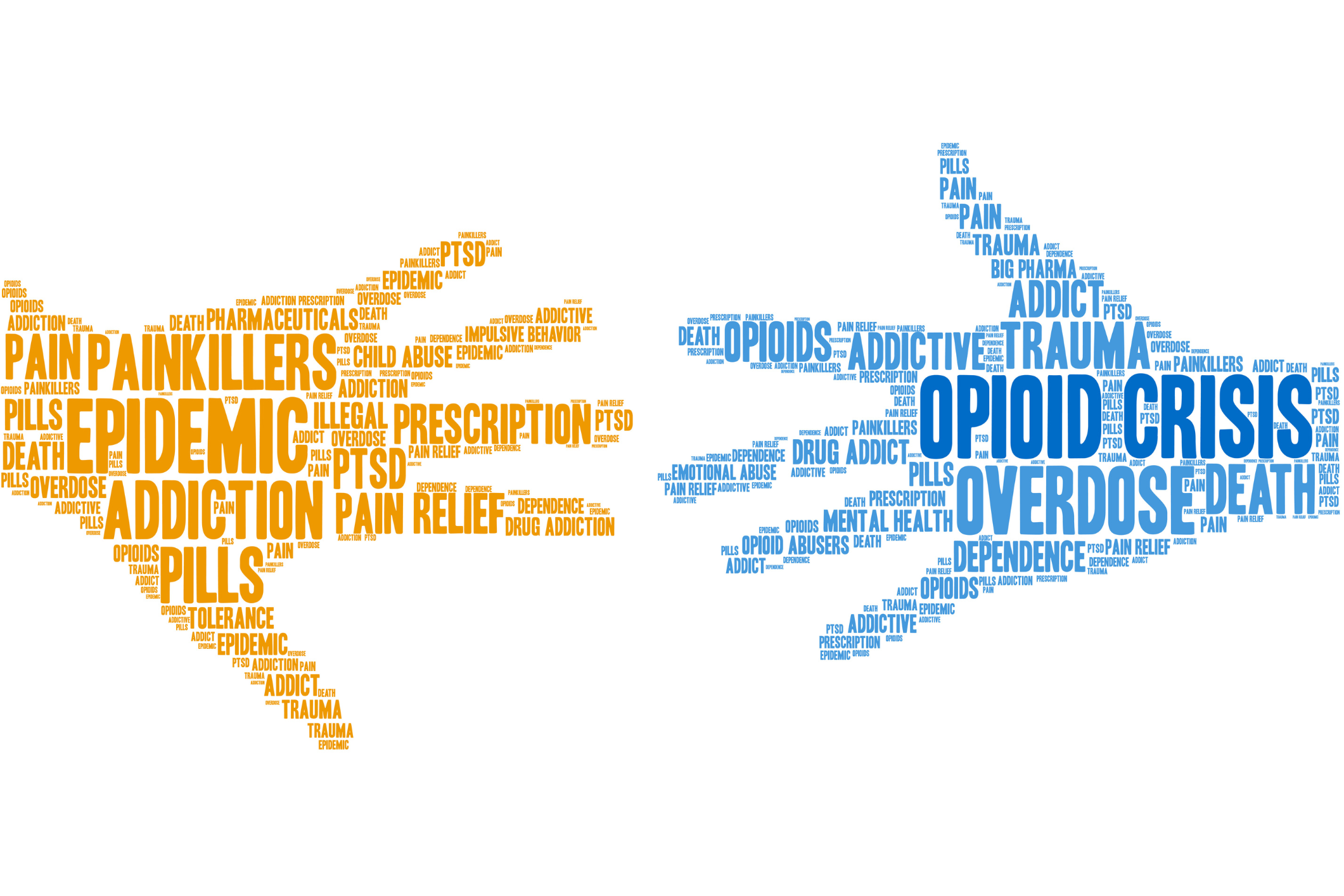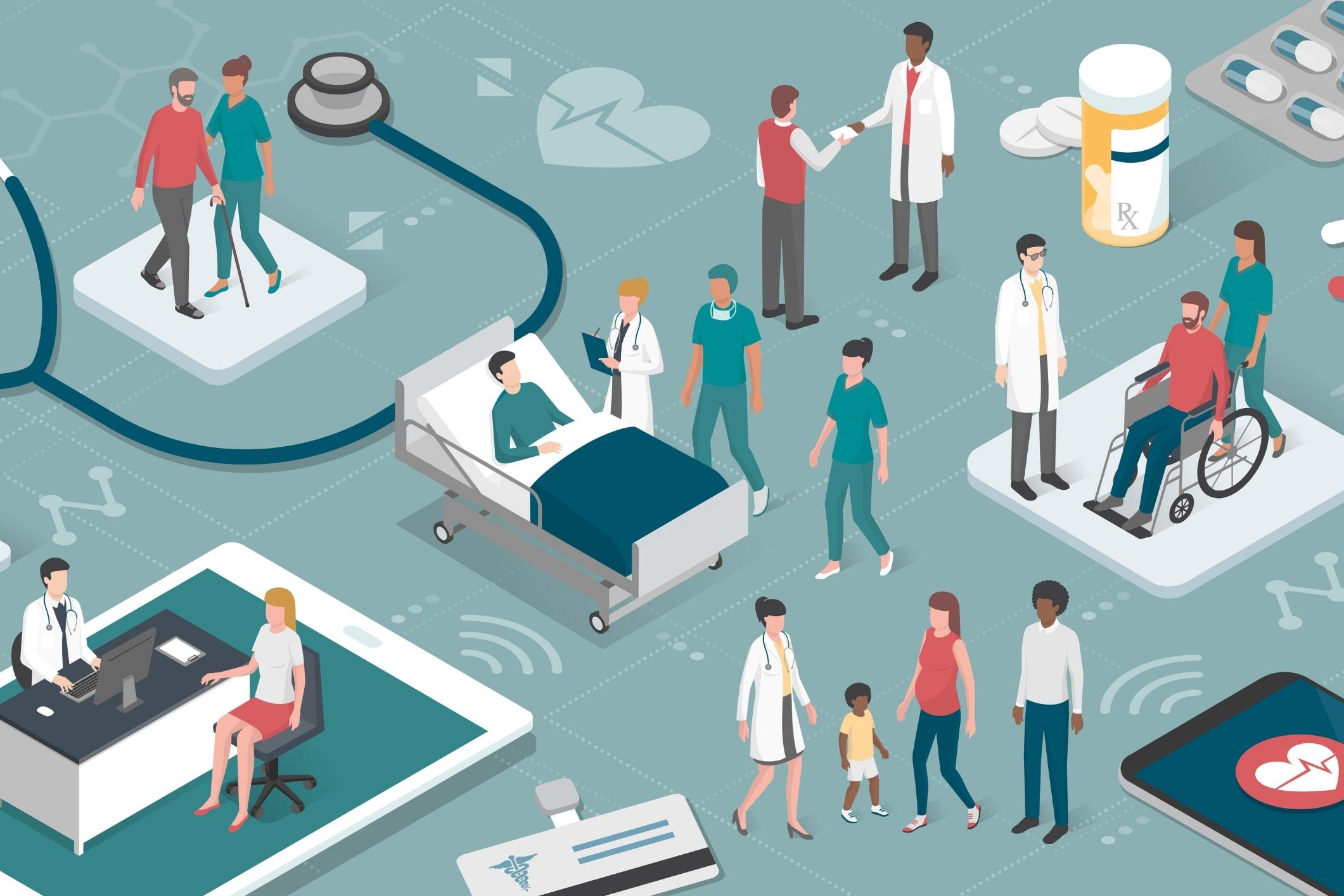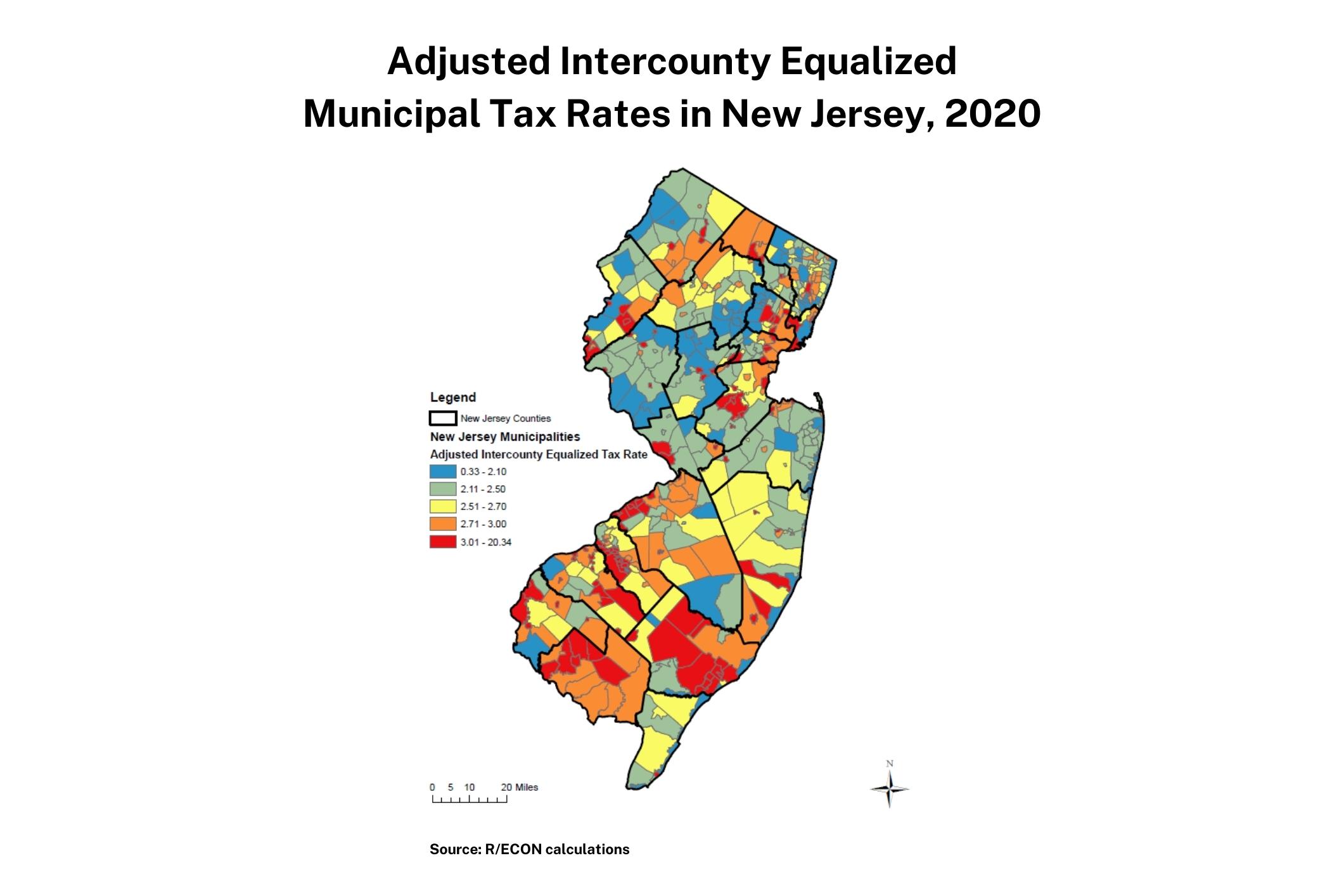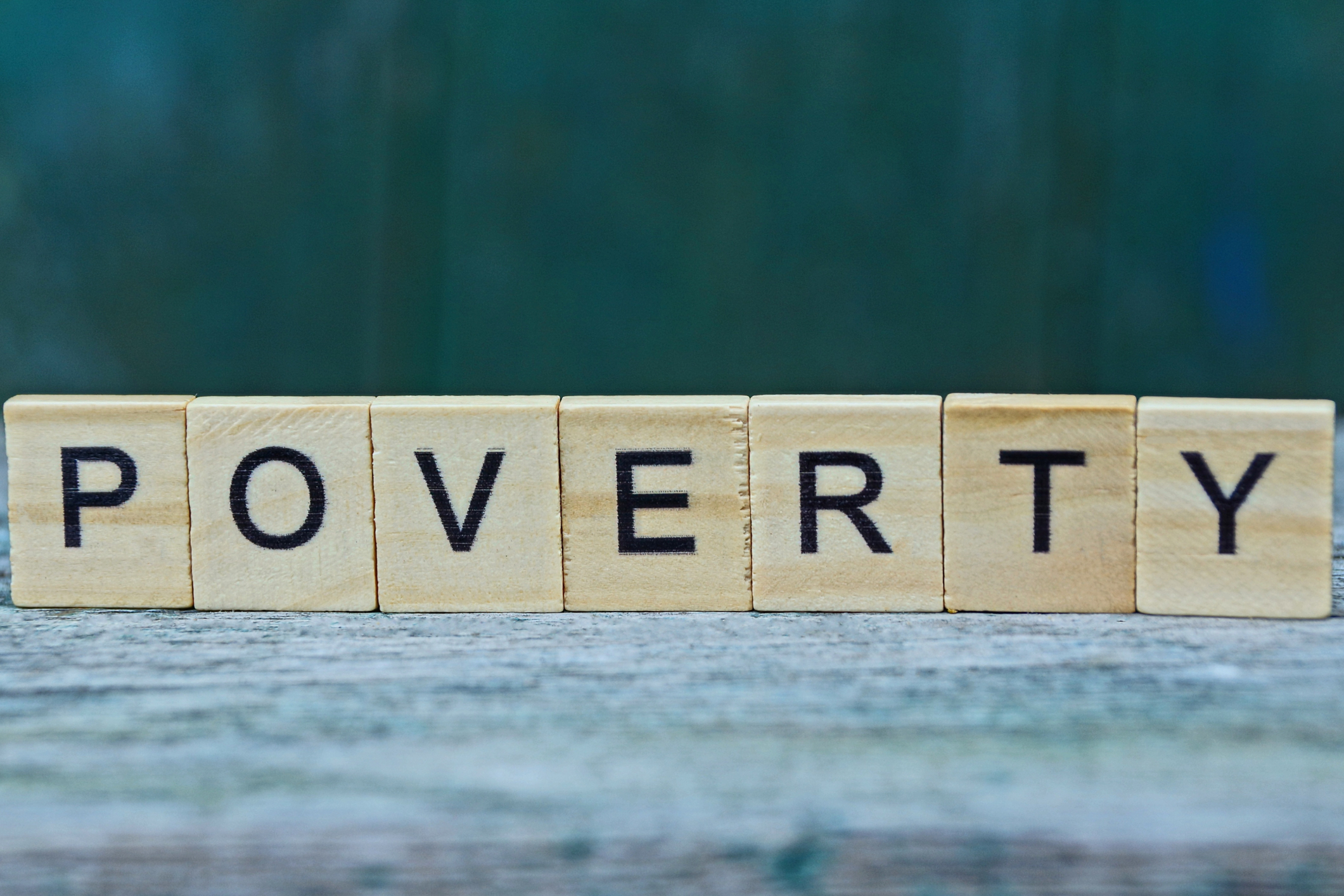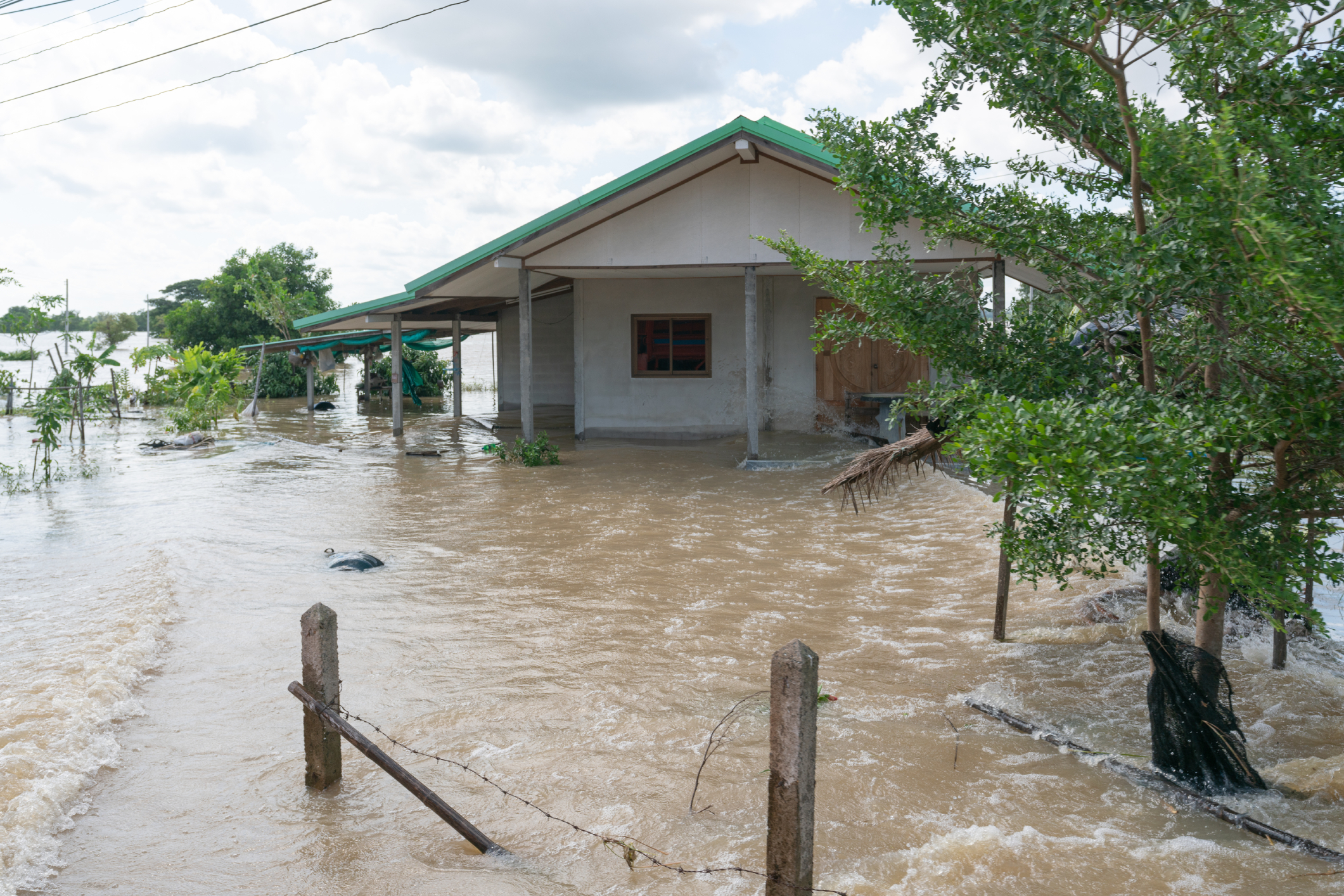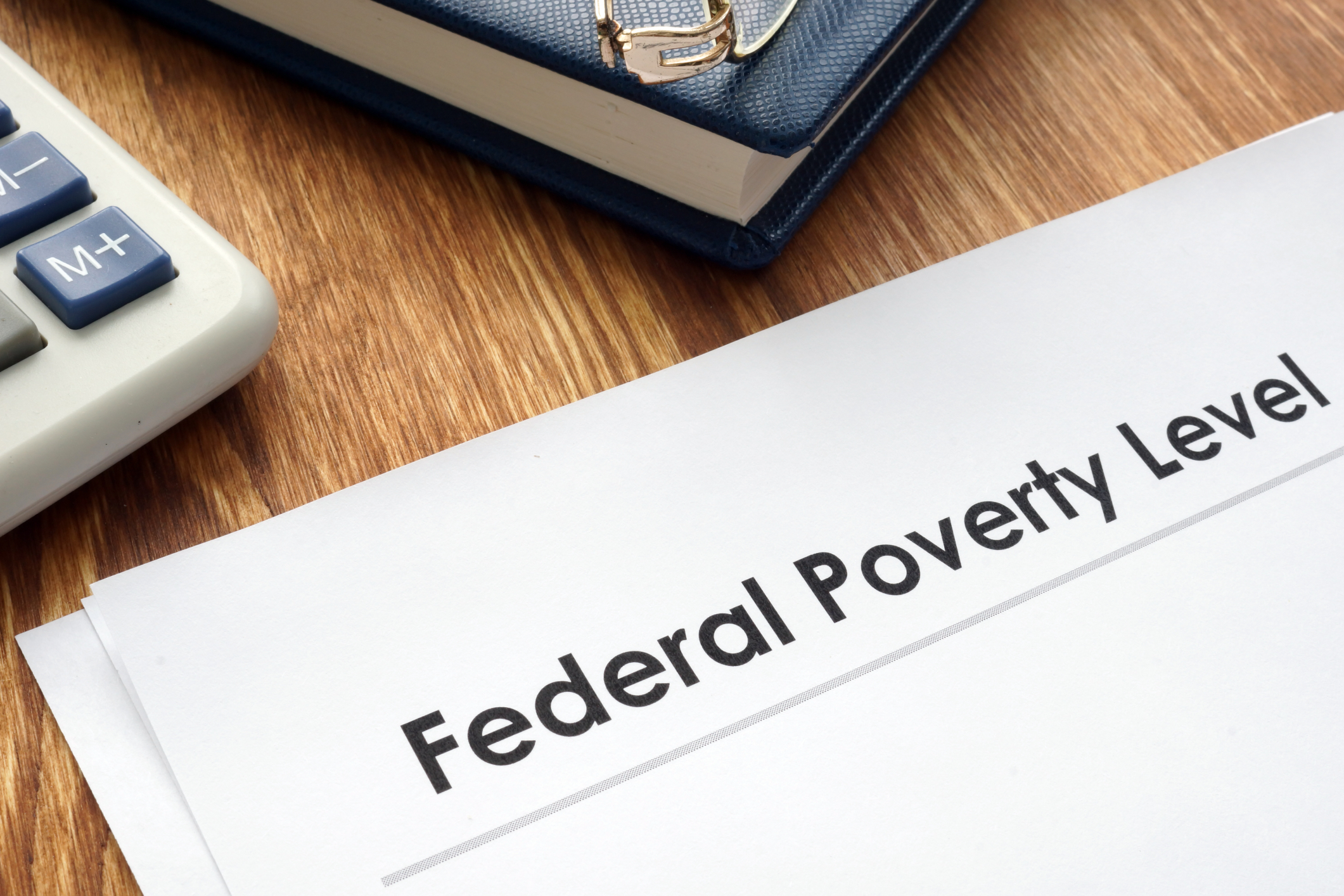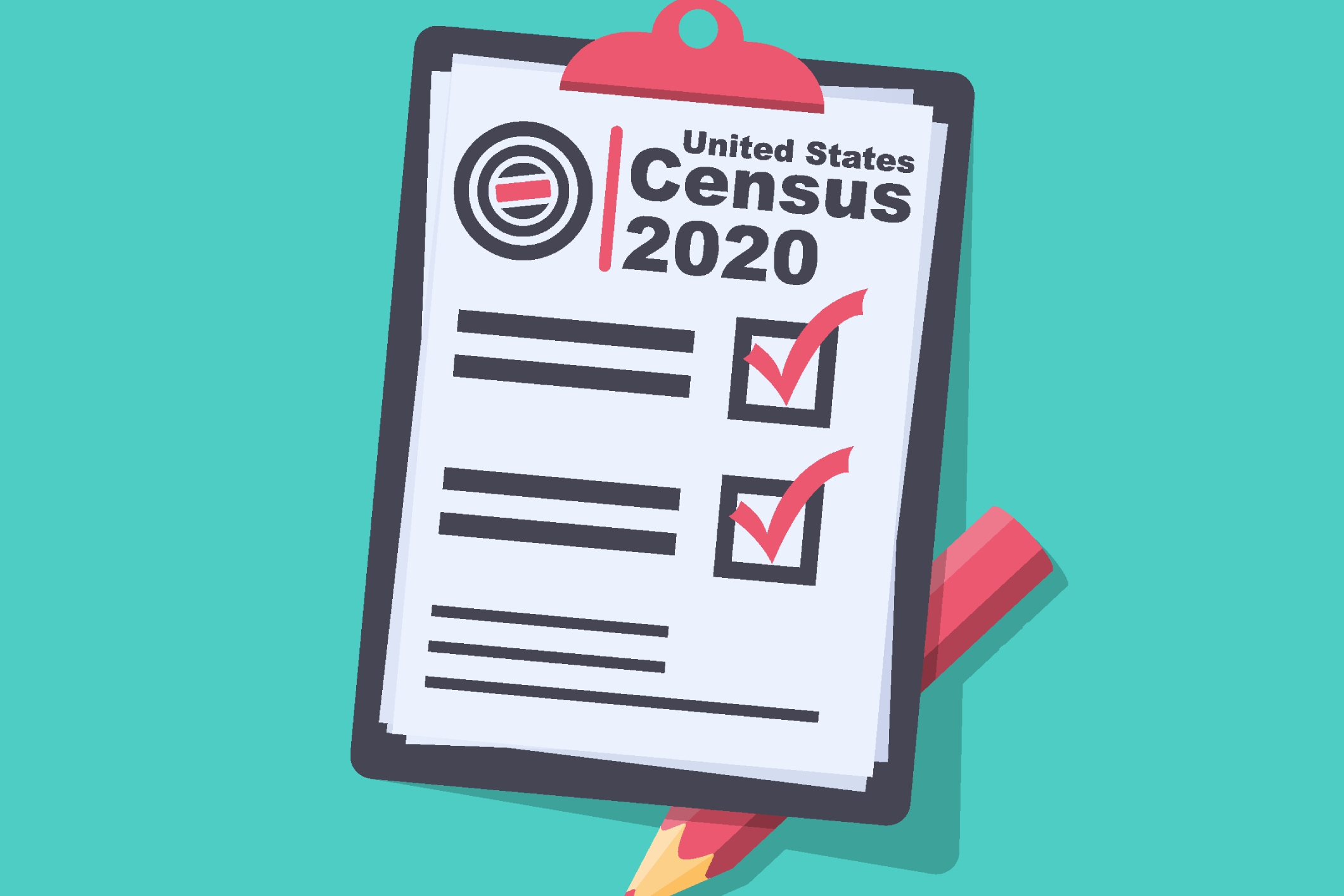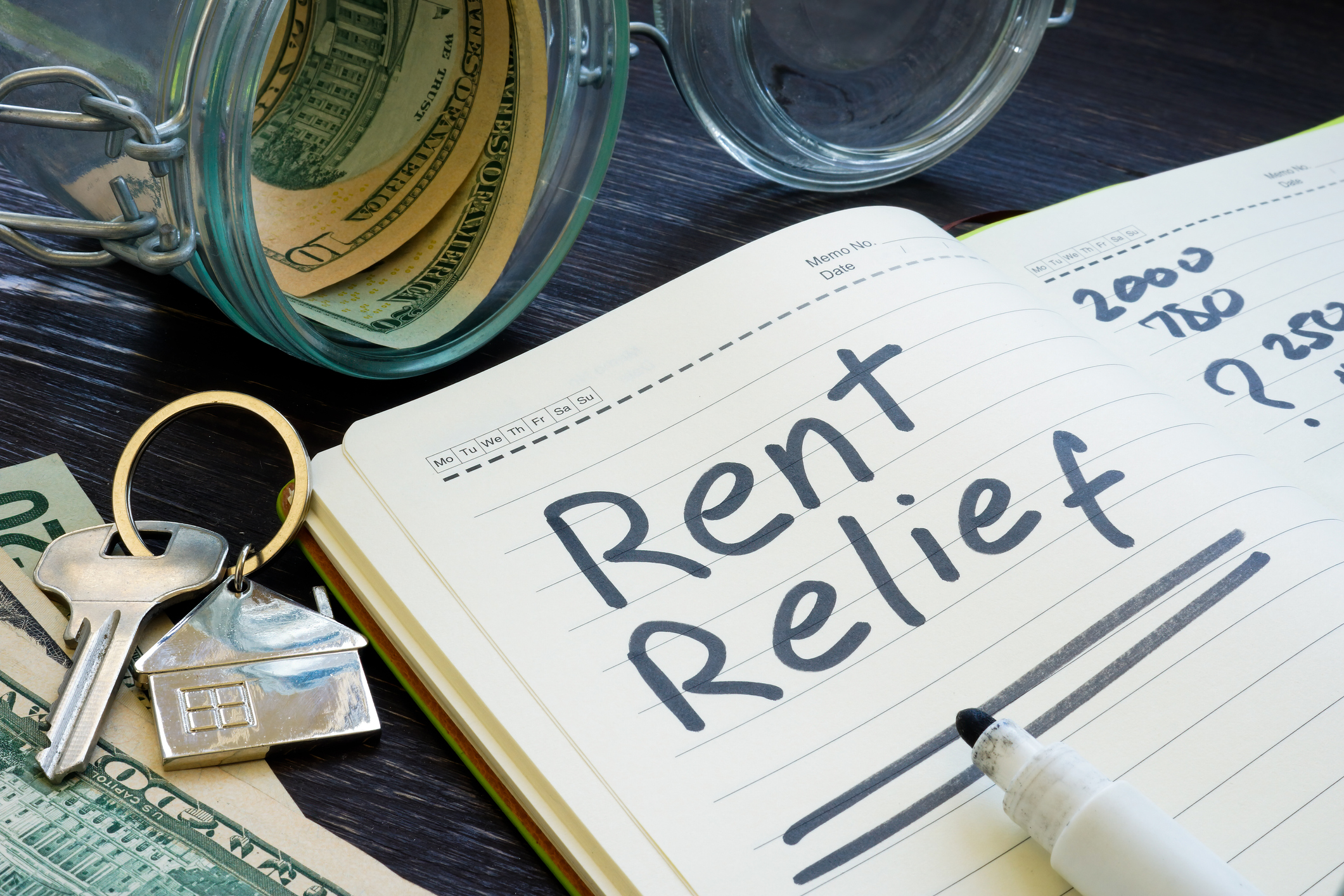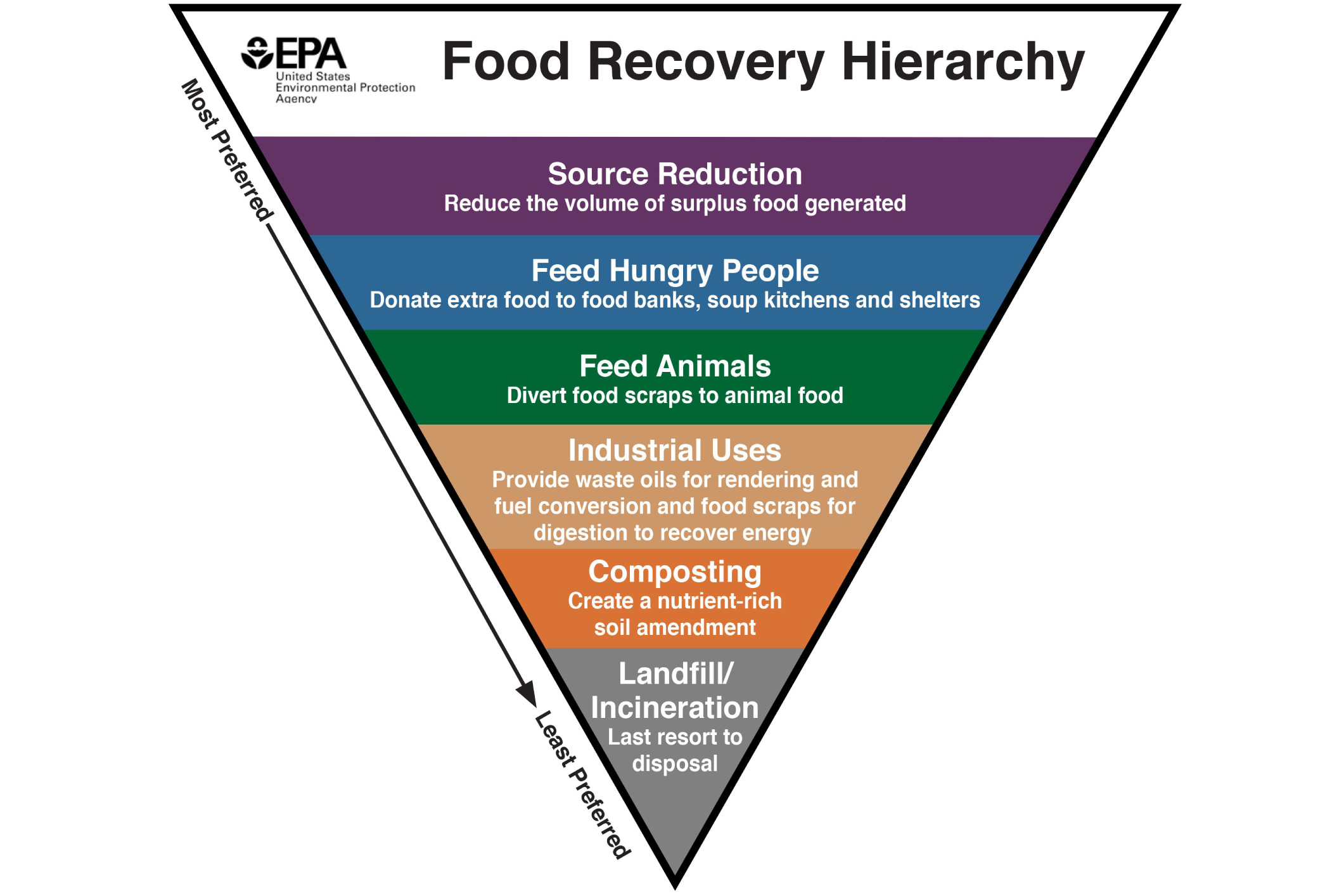All NJSPL Reports & Blogs
Dual Enrollment Student Outcomes in New Jersey – Recent Research Highlights
By Elizabeth Cooner and Angie Nga Le Dual enrollment programs allow high school students to take college courses, helping them explore college options and get a jump start on their postsecondary education. In New [...]
State Policy Comparison: Abortion Policy in New Jersey vs. Kentucky
By Taylor Hughes Abortion, the medical termination of a pregnancy, is one of the most divisive moral, political, and cultural issues impacting the United States today. In June 2022, the Supreme Court overturned the [...]
Nursing Home Quality in New Jersey: Trends, Disparities, and the Path Forward
By Miyeon Song, Ph.D., Seungho An, Ph.D., and Jinah Yoo The Role of Nursing Homes in New Jersey's Long-Term Care System As New Jersey's aging population grows, nursing homes have become a vital part [...]
Assessing Equity in the Utilization of the Coronavirus State and Local Fiscal Recovery Funding: Evidence from New Jersey and Beyond
By Pengju Zhang, Ph.D. and Michael S. Hayes, Ph.D. The American Rescue Plan Act's Coronavirus State and Local Fiscal Recovery Funds (ARPA-SLFRF) provides $350 billion to state and local governments, representing one of the largest [...]
The Impact of City Borders on Achieving Health Equity
By Tanaya Watson Redlining, Disinvestment, and Health Outcomes Within both the state of New Jersey as well as the broader U.S., there has existed a historical practice of redlining, which is defined as the [...]
Prosecutorial Errors: Determining “Harmless” vs. “Not” at the Appellate Level
By Heather L. Scheuerman Ph.D., Elizabeth Griffiths Ph.D., and Ryan Brown Appellate courts reflect one of the last lines of defense against what some may consider to be an overzealous or even unethical prosecutor. [...]
What Policy Issues Interest You Most? Take the New Jersey State Policy Lab Survey
By Megan McCue Today the New Jersey State Policy Lab is pleased to announce the launch of our newest survey, which we invite you to complete here today. This survey, which will take just [...]
New Jersey and Special Education: Post-COVID-19
By Jordyn Roy Introduction New Jersey is home to one the largest populations of students with disabilities (SWDs) in the United States. Almost one-fifth of our public school students aged 3 to 21 are [...]
What Happens When Authority Devolves from the State to Educator Preparation Programs? Tensions Between Professionalization and Deregulation
By Emily Hodge, Rachel Garver, & Drew Gitomer. As teacher preparation became increasingly institutionalized as a field of university-based study in the early 1900s (Lagemann, 2000), educator preparation programs (EPPs) became subject to critiques [...]
The Importance of Language Equity in Chatbot Responses for Health and Government Services: A Policy Perspective in New Jersey
By Yonaira Rivera and Vivek Singh In an increasingly digital world, chatbots have become essential tools for delivering health and government services. These trends are only expected to increase in the coming years. However, [...]
Transforming Black Maternal Wellbeing: The Power of Person-Centered Care Interventions in New Jersey
By: Bernice Amankwah As a result of longstanding structural inequities, African American women endure greater trauma, socioeconomic disparities, and stress, and have less access to healthcare and social support during the perinatal period, which occurs [...]
Making Sense of New Jersey Parcel Data to Identify Trends in Corporate Ownership of Housing
By Eric Seymour This second blog on our team’s research on corporate investor ownership of residential properties in New Jersey addresses the methods used and the techniques developed so far. While New Jersey provides a [...]
Computing on the Inside: Building a Team to Meet the Challenge
By Ben Justice, Ra’Zulu Ukawabutu, and Tommie Willis Imagine never accessing the internet, using today’s technologically advanced phones, being denied access to the information highway or simply being able to search for basic information on [...]
New Jersey’s Secret to Fewer Falls: How the State is Protecting Your Loved Ones
By Justin Deonarine No one wants to imagine their loved ones suffering a preventable fall at home. For older adults, even a minor slip or trip can lead to serious complications, including fractures, long-term disability, [...]
Using AI to Gather Feedback on New Jersey’s Solar Energy Program
By Sania Murtuza, Tai Vu, & Yao Sun, Ph.D This research project evaluates the effectiveness of New Jersey’s solar program and its impact on energy justice, focusing on community engagement. The project seeks to inform the development of solar programs, particularly in low-income areas, by leveraging AI analysis and Tableau to visualize solar access across New Jersey cities such as Jersey City, Newark, and Trenton.
Virtual Schwartz Rounds: Addressing the Diverse Emotional Support Needs of Nursing Community
By Irina B. Grafova, Pamela B. de Cordova, Jennifer Polakowski, and Jessica Anderson The New Jersey Nursing Well-Being Institute has hosted over 90 Virtual Schwartz Rounds (VSR) sessions in the past three years, offering a flexible, free forum [...]
Will the Nation’s Employment Growth Trajectory Follow New Jersey’s?
By Will Irving. In late July, the outlook for the U.S. economy appeared strong, with some observers suggesting that the Fed had indeed nailed the long-awaited soft-landing even in light of recent cooling [...]
Best Practices for Improving Traffic Crash Data in New Jersey
By Hannah Younes and Robert B. Noland According to the New Jersey Department of Transportation (NJDOT), total traffic crashes each year typically exceed 200,000. New Jersey does not currently provide easy access to the [...]
Transforming Mental Health Care and Addiction Treatment for Justice-Involved Individuals in New Jersey
By James M. Davy, Ph.D. and Momina Chaudhry A Vision for Transformation With funding from the New Jersey State Policy Lab, the Rutgers-Newark School of Public Affairs and Administration and the New Jersey Reentry [...]
Evaluating the Policy Implications and Impact of Health Insurance Literacy Initiatives
By Nicholas S. Imperato, DO, MPH and Kamini Doobay, MD, MS. Health insurance literacy can be broadly defined as "the degree to which individuals have the knowledge, ability, and confidence to find and evaluate information about health plans [...]
Appellate Court Policing of Prosecutorial Misconduct
By Elizabeth Griffiths, Ph.D., Heather L. Scheuerman, Ph.D., and Ryan Brown In the American criminal legal system, state and local prosecutors operate as the first line of defense between order and lawlessness. Prosecutors are [...]
Report Release: Reengaging COVID-Disconnected College Students in Newark
By Elisabeth Kim, Ph.D., Bernie Lombardi, Ph.D., and Robyn Ince, Ed.M. The New Jersey State Policy Lab, in collaboration with the Newark City of Learning Collaborative (NCLC), is releasing a report that examines barriers and opportunities to reengaging COVID-disconnected college students [...]
Is Property Assessed Clean Energy a White Windfall in Urban Neighborhoods?
By Ruth Winecoff. This is the first in a series of blogs regarding an ongoing clean energy research project generously supported by the New Jersey State Policy Lab. This project focuses on Property Assessed Clean Energy [...]
Advancing Social Equity: Actions Across the States
By Marilyn Rubin Overview: Actions taken by many states across the U.S. are fundamental in advancing social equity for all residents. New Jersey is in the forefront of these efforts as enunciated by Governor [...]
Introducing the Promising Practices Project
By Kevin Majewski. The Promising Practices Project (PPP) is an important New Jersey Department of Education (NJ DOE) initiative aimed at identifying and documenting innovative teaching and learning practices [...]
Role of State Legislators with STEM Backgrounds in Advancing Evidence-Informed AI Legislation in U.S. States
By Anna M. Dulencin and Itzhak Yanovitzky Scientists and non-scientists alike have been surprised by the pace at which artificial intelligence (AI) is penetrating all aspects of life and society. Interest in the potential applications [...]
Medications for Opioid Use Disorder: Emergency Department Leaders’ Insights on the Role of Peers
By Kylie Davidson, Cadence F. Bowden, Hannah Shepherd, Peter Treitler, Stephen Crystal. Emergency departments (EDs) may be the primary, and even only, connection to the healthcare system for significant numbers of people with opioid use disorder [...]
Examining New Income Distribution Data from the U.S. Bureau of Economic Analysis
By Will Irving The United States Bureau of Economic Analysis (BEA) recently began publishing state-level data on the distribution of personal income across households. Similar income distribution and income inequality data has previously been [...]
New Jersey Joins the Move Away from Standardized Performance Assessments for Teacher Licensure
By Drew Gitomer, Emily Hodge, Rachel Garver and Colleen McDermott. In 2022, New Jersey eliminated the requirement that all teacher candidates pass a standardized performance assessment for certification. Instead, educator preparation programs [...]
Investigating Corporate Ownership of Housing in New Jersey
By Eric Seymour Corporate ownership of housing has been on the rise in the U.S. over the past decade, raising concerns about the impacts of this shift for both renters and would-be homebuyers. This [...]
Report Release: Linking Broadband Availability and Education to Digital Skills
By Gregory Porumbescu, Canyu Gao, and Mattia Caldarulo. The widespread adoption of hybrid work models and the emergence of new information technology solutions are emphasizing the need for individuals to develop internet skills [...]
Introducing the New Jersey Induced Travel Calculator
By Robert B. Noland Induced travel occurs when new roads or lanes are built with the goal of reducing traffic congestion. What this means in practice is that new travel fills the new roads [...]
Financial Literacy in New Jersey
By Parul Jain and Olusola Omotoso Broadly stated, financial literacy refers to the knowledge and skills necessary for making sound financial choices within a business context, which is deemed critical [...]
Computing on the Inside: Addressing Technology Education within the Prison System
By Benjamin Justice. Despite being a progressive state with regard to carceral reform and support of education, New Jersey is far behind much of the country when it comes to integrating computer technology [...]
Gaps in Availability of Workplace Emotional Support Programs for Nurses
By Irina B. Grafova, Pamela B. de Cordova, Jennifer Polakowski, and Jessica Anderson. Are workplace emotional well-being programs available for New Jersey nurses? To answer this question, on April 23, 2024 we launched [...]
Report Release: R/ECON Forecast Summer 2024
By Will Irving Read Report R/ECON’s economic forecast for New Jersey as of June 2024 continues to show a slowing trajectory, though the decline in annual GDP growth is not as pronounced as [...]
Transportation Options for Older Adults in New Jersey
By Taylor Hughes. One of the fastest-growing populations in the United States is older adults (65+), primarily due to increased life expectancy and the aging of the Baby Boomer generation [...]
Graduate Student Brief: The Socioeconomic Implications of Offshore Wind Policy in New Jersey
By Jessica Parineet. New Jersey currently has an ambitious goal to install 11,000 megawatts (MW) of offshore wind capacity by 2040, as part of a broader commitment to 100% clean electricity by 2035 [...]
Review of Postsecondary Attainment in New Jersey
Angie Nga Le, Miranda Alperstein, and Suhaib Yehya. Higher education plays a pivotal role in both individual career advancement and the long-term economic prosperity of a state. In New Jersey, elevating postsecondary attainment [...]
Advancing Perinatal Mental Health Equity in New Jersey
By Slawa Rokicki, Mitu Patel, Patricia Suplee, & Robyn D’Oria. Perinatal mental health, which includes depression or anxiety that occurs during pregnancy or in the postpartum period, is a significant public health problem [...]
Assessing Equity in the Utilization of the Coronavirus State and Local Fiscal Recovery Funding: Evidence from New Jersey and Beyond
Pengju Zhang, Ph.D. & Michael S. Hayes, Ph.D. The American Rescue Plan Act's Coronavirus State and Local Fiscal Recovery Funds (ARPA-SLFRF) provides $350 billion to state and local governments [...]
Examining Low-Income Community Solar Program and Energy Justice in New Jersey: An AI-Based Crowdsourcing Study
By Sania Murtuza, Tai Vu, & Yao Sun, Ph.D. With the intention of developing an interactive map for Jersey City, Newark, and Trenton, the research team first obtained zip code data for New Jersey from an online dataset [...]
Newark Youth Share Experiences and Challenges to Enrolling in Postsecondary Education
By Bernie Lombardi, Ph.D., Betsy Kim, Ph.D., and Robyn Ince, Ed.M. As part of our ongoing study funded by the New Jersey State Policy Lab on youth who were disconnected from college during COVID-19 in Newark, we conducted focus groups [...]
Key Insights from Early Offshore Wind Implementation in the United States
Photo ©: Block Wind Farm By Jessica Parineet Offshore wind development is in its early stages in the United States, with just under one gigawatt (GW) of utility scale capacity constructed[1][2]. State decarbonization goals [...]
Report Release: Digital Skills for Accessing Local Government Services
By Vishal Trehan, Stephanie Walsh, Gregory Porumbescu, and Andrea Hetling. Digital skills are increasingly essential for citizens to access and utilize online government services effectively. However, there are also reports of disparities in digital skill levels [...]
Ascertaining Transportation Needs at the Community Level
By Carla Villacis. As researchers, there is a systematic process for conducting research that has been ingrained in us through our training. First, we identify the topic, research question, and target population [...]
How State Agencies are Advancing Equity Throughout the U.S.
By Marilyn Rubin. On his first day in office in January 2021, President Biden signed Federal Executive Order #13985, Advancing Racial Equity and Support for Underserved Communities through the Federal Government, directing federal agencies [...]
Developing Policy Recommendations for a Seamless Continuum of Mental Health and Addiction Treatment Services for Justice-Involved Individuals
By James Davy. In an innovative collaboration, Rutgers University Newark School of Public Administration is partnering with the New Jersey Reentry Corporation and the New Jersey State Policy Lab to develop a comprehensive policy framework [...]
Treating Substance Use Disorders in New Jersey Emergency Departments: A Conversation with Michele Calvo, MPH
By Kylie Davidson, Cadence F. Bowden, Elizabeth Mascone, Hannah Shepherd, Stephen Crystal. Emergency departments play a critical role in the continuum of care for opioid use disorder, and New Jersey has enacted a range of initiatives and interventions [...]
Report Release: Can Reducing Learning Costs Improve Public Opinion of Means-Tested Benefit Programs?
By Gregory Porumbescu, Stephanie Walsh, and Andrea Hetling. Means-tested public benefit programs, such as SNAP, are intricate and subject to a large number of rules and eligibility requirements. The high learning costs associated with these programs [...]
The Opportunities and Anxieties of Policy Change: How Educator Preparation Programs Reorganize to Adopt New Teacher Performance Assessments
By Rachel Garver, Drew Gitomer, and Emily Hodge. Policy change may bring benefits and burdens to organizations charged with implementation. When New Jersey removed the requirement to use edTPA as a teacher performance assessment [...]
Addressing the Emotional Well-Being Void: Insights from School Nurses
By Irina B. Grafova, Pamela B. de Cordova, Jennifer Polakowski, and Jessica Anderson School nurses are responsible for student health and well-being. We piloted our survey among a sample of school nurses and found [...]
Examining Industry Employment Growth in New Jersey
By Will Irving. Unpredictability has been one of the defining features of New Jersey’s labor market for much of the last two years. As the state’s unemployment rate climbed [...]
Report Release: Senior Connect: A Community-Engaged Approach to Promote Digital Equity for Older Adults
By Diane Hill, Ph.D., Donita Devance, MCRP, and Epiphany Munz, B.A. The COVID-19 pandemic changed the way that we communicate and interact as a society. Importantly, it highlighted the need for digital literacy [...]
New Jersey State Policy Lab Celebrates Our 3rd Anniversary!
By Elizabeth Cooner, Ed.D. As we celebrate three years since the inception of the New Jersey State Policy Lab (NJSPL), we are proud of the solid foundation of public policy research we have built. Working [...]
Improving Socioeconomic Outcomes: Comparison of Offshore Wind Implementation in Denmark and New Jersey
By Jessica Parineet In 1991, the world’s first demonstration offshore wind farm began operating off the coast of Denmark[1]. Today, the UK leads the EU region with 15 gigawatts (GW) of capacity, followed by Germany [...]
Extreme Heat, Coastal Flooding, and Health Disparities: Climate Change Impacts on Older Adults in New Jersey
By Josephine O’Grady. New Jersey is facing a myriad of climate challenges, including extreme heat, heavy precipitation, coastal flooding, and more natural disasters. The state is currently warming faster than the rest of the northeast [...]
Report Release: 15-Minute Neighborhoods: A Pathway to Creating Healthier, More Just, Resilient, & Sustainable Communities in New Jersey
By Jon Carnegie, June Greeman, and Jacob Thompson Read Report Over the past several years, several policy threads have gained prominence in New Jersey. These include adapting to climate change, advancing social justice, [...]
Newark Community-Based Organizers’ Perspectives on Planning for the Future, College Enrollment Trends, and Supports
By Bernie Lombardi, Ph.D., Betsy Kim, Ph.D., Robyn Ince, Ed.M. As part of our ongoing study funded by the New Jersey State Policy Lab researching potential barriers to youth in Newark enrolling in college, [...]
Examining Low-Income Community Solar Program and Energy Justice in New Jersey: An AI-Based Crowdsourcing Study
By Sania Murtuza, Vibha Venkataraman, Tai Vu, & Yao Sun, Ph.D. Guided by the theoretical and practical frameworks from the literature, the research team led efforts to specify neighborhoods in New Jersey [...]
Report Release: Resilience Through Functionality: Outcome-Driven Quantification Approach with Stakeholders-Based Calibration
By Michel C. Boufadel, Ph.D., P.E., Firas Gerges, Ph.D., Hani Nassif, Ph.D., P.E. In the face of escalating challenges posed by climate change and rapid urbanization, community resilience is of paramount importance. Quantifying resilience is a crucial step in identifying vulnerabilities [...]
Implementing Advanced Primary Care in New Jersey
By Taylor Hughes At its simplest, primary care is delivered for basic or everyday healthcare needs. You may have visited a primary care provider at a doctor’s office the last time you had an [...]
Delivering the Benefits of Offshore Wind to Communities: How New Jersey is Making Progress
By Jessica Parineet. In support of the state’s goals, Governor Murphy’s administration has set an ambitious target of 11,000 megawatts (MW) of installed offshore wind capacity in New Jersey by 2040 [...]
Performance Assessments Across New Jersey: What Educator Preparation Programs Are Using Now
By Emily Hodge, Rachel Garver, and Drew Gitomer. In the wake of New Jersey’s 2022 legislative removal of the edTPA as a required performance-based assessment for teacher candidates, educator preparation programs (EPPs) have had newfound freedom [...]
How New Jersey’s 2025 Tax Revenue Projections Might Affect the Budget Surplus
By Will Irving. Is the Budget Surplus Safe? Governor Murphy’s recently released FY 2025 budget proposal calls for total appropriations of $55.9 billion, up $1.5 billion (2.7%) from the original FY 2024 appropriation [...]
Developing Survey Instrument to Examine Equity in Access to New Jersey Virtual Schwartz Rounds Emotional Support Program for Nurses
By Irina B. Grafova, Pamela B. de Cordova, Jennifer Polakowski, and Jessica Anderson. New Jersey Virtual Schwartz Rounds (VSR) programs aim to provide a forum for nursing peers [...]
On Fixing the Open Public Records Act
By Marc Pfeiffer. OPRA, the state’s Open Public Records Act is showing its age. Now 22 years old, this important public policy suffers, in part, from age, neglect, unintended consequences, and unexpected use cases [...]
Incorporating Equity into Agency Performance Assessment: Lessons for New Jersey
By Marilyn Rubin Equity measures as part of department/agency performance assessment are essential to government efforts to incorporate equity into decision-making, programming, and service delivery. Equity in agency performance assessments helps to ensure that public [...]
Sustainable Assisted Living Programs in New Jersey
By Ayse Akincigil. Many seniors in publicly subsidized housing need support services like chronic condition monitoring, medication management, and assistance with certain activities of living. Without such help, they risk [...]
Thoughts and Reflections on a Community-Focused Approach to Data Collection
By Carla Villacis. The Walter Rand Institute for Public Affairs (WRI) conducts and highlights community-facing research in and for southern New Jersey, and the process of engaging with community members to amplify their thoughts, experiences [...]
Report Release: The Transportation Impacts of the COVID-19 Pandemic
By Robert Noland, Hannah Younes, Evan Iacobucci, and Wenwen Zhang. The COVID-19 pandemic had major impacts on transportation behavior in New Jersey and throughout the world. Our research sought to examine these changes and whether any changes will be long-lasting [...]
Working to Address Youth Disconnection Through Policy in NJ
By Bernie Lombardi, Ph.D., Betsy Kim, Ph.D., Robyn Ince, Ed.M. On January 16, 2024, The Disconnection Prevention Bill (S3080) was signed into law by New Jersey Governor Phil Murphy. Bill S3080 will establish the [...]
NJ News and Policy Updates – Stay in Touch with the New Jersey State Policy Lab
By Megan McCue In the nearly three years since the New Jersey State Policy Lab was formed, the team and their researchers have published a wealth of information in various forms, including blogs, reports, and [...]
New Jersey Employment Concerns Revisited
By Will Irving. As 2024 began with yet another surprisingly strong jobs report for the U.S. (353,000 jobs added in January and the unemployment rate steady at 3.7%), and with a full year’s worth of 2023 state-level employment data now available [...]
Examining Low-Income Community Solar Program and Energy Justice in New Jersey: An AI-Based Crowdsourcing Study
By Yao Sun, Ph.D., Avanish Kulkarni, & Sania Murtuza. As the global emphasis on sustainability grows everyday— it is crucial to assess different alternatives for energy that does not require the burning of fossil fuels and nonrenewable energies in general [...]
Opioid Treatment in Emergency Departments: A Conversation with Dr. Alexis LaPietra
By Jim Lloyd, interviewing Dr. Alexis LaPietra. In the face of persistently high rates of opioid overdose and the very high risks of subsequent adverse outcomes faced by individuals who survive overdoses, New Jersey hospitals are innovating [...]
Climate Education Initiatives in New Jersey
By Josephine O’Grady. According to the 2020 New Jersey Scientific Report on Climate Change, New Jersey is warming more quickly than the rest of the Northeast region. The state is experiencing a myriad of climate-related challenges [...]
Teacher Candidate Performance Assessment Moves Forward in New Jersey
By Drew Gitomer, Emily Hodge, and Rachel Garver. In June 2022, New Jersey enacted a significant change in how educator preparation programs (EPPs) would assess the quality and readiness of their teacher candidates through performance assessment [...]
Gathering Insights for a Resilient New Jersey
By Firas Gerges (Princeton), Michel Boufadel (NJIT), Hani Nassif (Rutgers). Resilience is a critical aspect of building sustainable and thriving communities, especially in the face of increasing climate change impacts. As part of ongoing efforts to enhance community resilience [...]
Are E-Scooter Users More Seriously Injured than E-Bike Users and Bicyclists?
By Hannah Younes, Robert Noland, and Leigh Ann Von Hagen. Policy makers are grappling with the advent of a variety of new transportation technologies known as micromobility [...]
50 Years of Protecting the Shore: What’s Next for CAFRA?
By Will Parker. For fifty years, New Jersey’s Coastal Area Facility Review Act (CAFRA) has been protecting coastal resources and guiding development patterns along the shoreline. To commemorate that anniversary, this project sought to understand [...]
The Link Between Diabetes, the Heart, and the Kidneys: Implications for Chronic Disease Prevention and Management in New Jersey
By Heather O’Donnell. For the first time, the American Heart Association identified a new medical condition called cardiovascular-kidney-metabolic syndrome (CKM), which emphasizes the strong connections between cardiovascular disease [...]
Partnerships, Targeted Goals, and Impacts: A Revised Implementation Strategy for the Great American Outdoors Act
By Josephine O’Grady. The Great American Outdoors Act (GAOA) of 2020 promised the investment in national parks that the United States desperately needed. Since 1980, the number of visitors to national parks [...]
Tuning in to Camden County Transportation Opportunities and Challenges
By Carla Villacis, M.A. We’re gearing up for our study on transportation issues in Camden County, and there’s a lot of context to be aware of and incorporate as we finalize our data collection tools [...]
Fostering Emotional Resilience: New Jersey Nursing Emotional Well-Being Institute’s Virtual Schwartz Rounds for Nurses
By Jennifer Polakowski, Irina B. Grafova, Jessica Anderson and Pamela B. de Cordova. In the ever-evolving landscape of healthcare, the critical role of nurses cannot be overstated. Nurses are the heartbeat of healthcare [...]
Digital Governance and the Power of Big Data: Transforming Government in the Digital Age
By Tarun Reddy Arasu The continued growth in the use of technology by governments is reshaping public administration and redefining how governments interact with citizens, businesses, as well as with other governments. As a result, digital government [...]
New Jersey Population Growth Recovers
By Will Irving. The U.S. Census Bureau's annual state population estimates released this month show New Jersey resuming population growth after experiencing a decline of nearly 30,000 residents since the 2020 Decennial Census [...]
College Enrollment and Attainment in Newark: Tracking the Trends Post-COVID
By Robyn Ince, Bernie Lombardi, and Betsy Kim Relying on data from the American Community Survey of the U.S. Census and the National Student Clearinghouse, we will give an overview of the college enrollment and attainment trends in Newark, the state of New Jersey [...]
Enabling Aging in Place: A Vital Strategy for Residents of Subsidized Senior Housing
By Ayse Akincigil, Uri Amir Koren, & Hub for Aging Collaboration The concept of "aging in place" resonates as individuals strive to maintain their residence despite evolving requirements for supportive services during the natural course of aging [...]
Early Findings Form the Science Course Pathways Study
By Vandeen A. Campbell, Ph.D. Work thus far on the NJ Science Course Pathways Study has focused on coding and classifying science course pathways and preliminary descriptive and advanced analyses. So far, findings confirm that [...]
Emergency Department Buprenorphine Use: Where the Evidence Base Stands Today
By, Jim Lloyd, Cadence Bowden, and Kylie Davidson. Our New Jersey State Policy Lab pilot project to examine facilitators and barriers to buprenorphine use in New Jersey’s emergency departments [...]
Is There Cause for Concern in New Jersey’s Latest Unemployment Numbers?
By Will Irving While New Jersey’s payroll employment has continued to grow this year after the rapid job gains of the post-pandemic recovery, a slower pace of growth in recent months and a sharp rise [...]
Internet Skills and Perceptions of E-Government Remain Steady in the Face of Greater Economic Hardship
By Grace Maruska. E-government offers new, innovative ways to help connect individuals with public services. Navigating our post-pandemic world, however, requires deeper understanding of how various factors [...]
Improving Nurses’ Well-Being – A Much Needed Intervention for the Nursing Workforce Post-COVID
By Irina B. Grafova, Jennifer Polakowski, Jessica Anderson and Pamela B. de Cordova. The World Health Organization recognizes burnout as a major workplace problem [...]
Rethinking Complete Streets
By Hannah Younes, Robert B. Noland, Leigh Ann Von Hagen, Jeffrey Dennis, Colin Roche, and Sam Rosenthal. Governor Phil Murphy signed S-147 into law in January 2023 directing the New Jersey Department of Transportation [...]
A Seamless Continuum of Mental Health and Addiction Treatment Services for Justice-Involved Individuals in New Jersey
By James M. Davy, PhD. Disrupting a Fragmented System The professional staff of the New Jersey Reentry Corporation and other public and nonprofit service providing agencies can attest to the problem of fragmented and [...]
Report Release: Who Experienced the Greatest Financial Burden from Inflation in NJ?
By Jocelyn Fischer, Ph.D. and Yana van der Meulen Rodgers, Ph.D. During the COVID-19 pandemic, New Jersey has experienced record high levels of inflation. These price increases raise concerns about New Jerseyans’ financial well-being. However, inflation [...]
Report Release: R/ECON Forecast November 2023
By Will Irving. R/ECON’s economic forecast for New Jersey as of November 2023 shows slow or stagnant growth over the next five to six quarters, with GDP recovering to a steady but tepid rate of increase in 2025. This largely mirrors the U.S. trajectory [...]
Healthcare Inequities in Palliative Care
By Heather O’Donnell. Palliative care focuses on decreasing the emotional, mental, physical, social, and spiritual distress of individuals with life-threatening illnesses and their caregivers to improve their quality of life [...]
Voices from Camden County – Amplifying Community Transportation Priorities and Recommendations
By Carla Villacis, M.A., Devon Ziminski, M.S., Kristin Curtis, M.A., & Mavis Asiedu-Frimpong, J.D., M.P.H. Transportation continues to be an area of focus in the Southern New Jersey region. In recent months, Senator Walter Rand Institute (WRI) researchers [...]
Aging New Jersey: Long-Term Care Challenges and Quality Ratings in Nursing Homes
By Miyeon Song, Ph.D., Jinah Yoo (Ph.D. Student), and Seungho An, Ph.D. The Challenges in Long-Term Care Quality New Jersey's elderly population is on the rise. According to a report from the New Jersey [...]
How Can Institutions and Communities Work Together to Reengage “COVID-Disconnected” College Students?
By Robyn Ince, Ed.M., Elisabeth Kim, Ph.D., and Bernie Lombardi, Ph.D. The Newark City of Learning Collaborative (NCLC) is working in partnership with the New Jersey State Policy Lab to explore how institutions and communities in the city of Newark might work together to reengage “COVID-disconnected” college students [...]
Examining Low-Income Community Solar Program and Energy Justice in New Jersey: An AI-based Crowdsourcing Study
By Yao Sun. The 2019 New Jersey Energy Master Plan: Pathway to 2050 mentioned that the state’s Clean Energy Act commitments include, “Developing a community solar program that allows more state residents to benefit from solar energy [...]
Initiating Buprenorphine Treatment in Emergency Departments: A Promising Strategy for Reducing Opioid Overdoses
By Stephen Crystal and James Lloyd. As the crisis of opioid use disorder (OUD) spread throughout the United States, the health care system took action to develop new treatments and approaches to treating people with OUD. Although methadone maintenance treatment had been implemented [...]
Digital Technologies Might Not Necessarily Reduce Cognitive Bias and Inequality
By Canyu Gao Human decision-making is complex and shaped by a variety of factors that sometimes result in ostensibly irrational behavior. Despite significant progress in documenting factors that systematically bias decision-making, much less is known [...]
Incorporating Equity into Agency Performance Assessment: Lessons for New Jersey
By Marilyn Rubin. Equity measures as part of agency performance assessment are integral to the growing focus of governments throughout the United States on equity in decision making, programming, and service delivery [...]
Walking Together Over Uncertain Terrain: The Role of Professional Associations During Times of Policy Change
Educator preparation programs (EPPs) in New Jersey are engaged in a nonstop cycle of recruiting, training, and graduating teachers for the state, which has experienced a severe teacher shortage. The design and practices of these programs [...]
Report Release: The Relationship Between New Jerseyans’ Digital Literacy, Perceptions of E-Government, & Trust in the State Government
By Seulki Lee-Geiller and Abigail Alcala. Public trust in government is crucial for a functioning democratic society as it signifies a belief that government has the right to govern and make decisions on behalf of the population [...]
New Jersey Ranks First in Income, but Housing Costs Take a Hefty Share Especially for those with Lower Incomes
By William Irving. Data released earlier this month from the U.S. Census Bureau’s annual American Community Survey show that New Jersey now tops the list of states with the highest incomes in the country [...]
Data Brief Release: Inflation Hurts Everyone but Some More than Others in New Jersey
By Jocelyn Fischer and Yana van der Meulen Rodgers. Inflation levels in the U.S. have reached decades-long highs during the COVID-19 pandemic and in its wake. Because inflation can erode people’s ability to afford the goods and services they need, the recent uptick in inflation has raised concerns [...]
The Economic Issues Impacting College Enrollment
By James Barrett. As of May 2023, the National Student Clearinghouse published their annual Current Term Enrollment Estimates, painting a bleak picture of the state of college enrollment across the nation. Public two-year enrollments dropped 10.1% [...]
Report Release: First, Do No Harm: Algorithms, AI, and Digital Product Liability
By Marc Pfeiffer. The relatively recent introduction of publicly accessible artificial intelligence driven chatbots (e.g., Bard, Bing, ChatGPT, Claude) have focused public attention on the broader individual and societal harms that can result from algorithms [...]
After-School Programs and Students’ Academic Behavior in New Jersey: Current Situation and Future Development
By Xiao Liang After-school programs in the United States can be traced back to the late 19th century, developed from historical changes in children’s participation in the labor force market, the introduction of formal schooling [...]
The New Jersey State Policy Lab Announces Ten New Research Projects
By Stuart Shapiro. One of the greatest pleasures of working with the New Jersey State Policy Lab is being able to see so much of the wonderful work being done across the state to improve policymaking in New Jersey [...]
Barriers to Accessing Primary Care in New Jersey
By Taylor Hughes. Primary care is often considered the gateway into the healthcare system. Primary care services include preventing and treating common illnesses– but that’s not everything [...]
How to Improve Physical Activity Rates in Underserved Populations
By Heather O’Donnell. Moderate-to-vigorous physical activity (MVPA) aids in the prevention of premature mortality and chronic diseases, such as coronary and heart disease, type 2 diabetes, and breast and colon cancers [...]
Risk Perception of Cannabis Use in Young Adults
By Sofia Wernyj. Research suggests that the younger a person begins using cannabis, the higher the likelihood of them developing a dependence on the drug. Studies done on states that have legalized recreational marijuana indicate [...]
Food Insecurity in New Jersey – Policy Solutions and Improvements
By Ciera Gaither. The most recent Current Population Survey Food Security Supplement (CPS FSS) reported that 10.2% of American households are food insecure, impacting more than 30 million people. In comparison, 8% of New Jersey residents experienced food insecurity in 2020 [...]
What Will It Take to Eliminate Pedestrian and Bicycle Fatalities in NJ?
By Hannah Younes, Ph.D., Leigh Ann Von Hagen, AICP/PP, Robert Noland, Ph.D., Sean Meehan In 2022, the U.S. Department of Transportation announced its Vision for Roadway Safety in which the agency aims to eliminate deaths [...]
The Risks of Limiting Prescribed Opioids
By Julia Snyder. One response to the opioid crisis and the high rates of opioid use disorder (OUD) throughout the country has been the creation of state policies that place restrictions on opioid prescriptions. These policies limit the duration and dosage of short-term opioid prescriptions [...]
New Jersey State Policy Lab Summer Internship Summit
The New Jersey State Policy Lab held the 2023 Summer Internship presentations at the Bloustein School of Planning and Public Policy on August 17, 2023. The eight summer interns each presented [...]
How Can Digital Credentialing in the Safety Net Meet the Needs of Domestic Violence Survivors?
By Andrea Hetling and Abigail Alcala. Administrative burdens are the costs and barriers individuals face when accessing government services. Such burdens are one reason why low-income families, who often need the most support from public sources [...]
The Times They are a Changin’ – Shifts in Teacher Education Assessment Policy
By Emily Hodge, Rachel Garver, and Drew Gitomer. What happens on the ground when years of strong state control and authority over teacher licensure is suddenly minimized? In what ways do local educational institutions change and maintain practices [...]
Report Release: Analyzing Child-Care Provider Subsidies in New Jersey: Issues, Impacts, and Options
By Andrea Hetling. Public child-care subsidies are designed to reduce the financial burdens of child care for households that meet certain income thresholds in order to improve employment and/or educational opportunities for parents and other legal guardians. In New Jersey, child-care subsidy payments [...]
Report Release: Access to Nature for People with Disabilities: Barriers, Challenges, and Opportunities
By Josephine O’Grady. In New Jersey, 24% of the population has a disability. People with disabilities suffer from a wide range of health disparities, including obesity, heart disease, diabetes, and depression. Through the Inclusive Healthy Communities (IHC) Grant Program, initiatives in New Jersey are underway [...]
Growing Cybersecurity Concerns for Telehealth Services
By Heather Butler and Soumitra Bhuyan. Healthcare organizations are increasingly vulnerable to cybersecurity breaches, which put patients’ safety, privacy, and financial stability at risk. Statistics have shown that from 2014 to 2022, 14,655 data breaches were reported in the United States [...]
Validating the Impact of a Community-Engaged Approach on Persistence with Digital Technology Among Older Adults
By Epiphany Munz, Donita Devance, and Diane Hill, Ph.D. The Office of University-Community Partnerships/Center for Health Equity and Community Engagement (OUCP/CHECE) and Advocates for Healthy Living Initiative (AHLI) approach to keep older adults engaged and [...]
New Jersey State Policy Lab Summer Interns Visit NJ State House
By Megan McCue. This week, the NJSPL summer interns visited the New Jersey State House in Trenton as part of their ongoing public policy research and curriculum. The students met with various public servants, including a state legislator, mayors, policy advisor, and other staff [...]
Policy Lab Researchers Attend the Public Management Research Conference 2023
By Stephanie Walsh and Jinah Yoo. Two researchers affiliated with the New Jersey State Policy Lab, Dr. Stephanie Walsh and doctoral student Jinah Yoo, attended the Public Management Research Association’s Public Management Research Conference (PMRC) in Utrecht, the Netherlands [...]
Many Paths, One Future: New Jersey’s Commitment to Higher Education Attainment
By Nichole M. Garcia, Ph.D. To fuel the U.S. economy, a high school diploma is no longer enough in terms of educational attainment. The Lumina Foundation projects that more than 60 percent of adults in [...]
Satisfaction with Telehealth Among Adults with Chronic Disease
By Betia Zeng Chronic diseases are the leading causes of death and disability in the U.S., accounting for over 1.7 million deaths annually. The total cost of chronic disease totals $3.7 trillion annually, including healthcare costs and lost economic productivity [...]
New Jersey Snapshot: Rising Population Yet Declining School Enrollments
By James Barnett Declining enrollment is an issue that has plagued schools across America for the greater part of the last decade. While various factors are likely to be at fault, declining birth rates, especially [...]
Nearly Half of NJ Residents Struggled to Pay Household Expenses, New Jersey State Policy Lab Finds
By Megan McCue. More New Jerseyans are finding it difficult to pay for typical household expenses, according to a follow-up survey conducted by the Eagleton Center for Public Interest Polling. Five questions from the first survey, originally published in July 2022 [...]
New Jersey’s Nursing Shortage: Burnout, Staffing, and More
By Julia Snyder. Across New Jersey, healthcare facilities are facing a shortage of nurses as the profession struggles to sustain its workforce. About one-third of nurses have left clinical care at hospitals across NJ in the past three years [...]
Telehealth May Worsen Physician Burnout: How to Avoid It
By Aakanksha Deoli and Esther Martinez. Telehealth has been found to increase healthcare access, especially among vulnerable populations. During the pandemic, it ensured continuity of care while limiting exposure and kept mild cases outside of the hospital [...]
Roadside Tree Removal: The Need for Collaborative Decision-Making
By Ellen Oettinger White and Robert B. Noland. Many state highway agencies approach transportation safety from the perspective of maintaining fast and free-flowing traffic. As such, highway design guidelines specify a “clear zone” along highways [...]
Telehealth for Cancer Care: Opportunities and Challenges
By Meenal Gaekwad, Heather Butler, and Soumitra Bhuyan. The COVID-19 pandemic resulted in a significant disruption in the healthcare system in the United States, which has increased the demand for telecommunication and technology [...]
Report Release: Youth Mental Health in New Jersey: Current Status and Opportunities for Improved Services
By Karen Lowrie and Brooke Schwartzman. Teens of today have faced major shifts in societal, environmental, community, familial, and individual spheres, heightened by racial and school-based violence and the COVID-19 pandemic, creating challenges [...]
Do New Jersey High Schools Have STEM Focus? Piloting New Measures
By Vandeen Campbell High schools’ focus on STEM is a key feature of the ongoing study of the relationship between science course sequences, college enrollment, and pursuing STEM fields for students in New Jersey. Alongside the question of what types of science course sequences are predictive [...]
Report Release: The Impact of Eliminating Adjustment Aid for School Districts in New Jersey
By Michael S. Hayes. In 2018, New Jersey implemented the S-2 bill, which aimed to reduce adjustment aid to school districts in the state. The objective of this policy was to end a practice of “overfunding” school districts, which had it not been for the adjustment aid [...]
Does Reducing Administrative Burdens Increase Trust in Government?
By Abigail Alcala. Political support of safety net and welfare programs in the United States has dwindled over the past few decades, with increasing sentiment that means-tested programs should be limited and conditional on certain behavioral requirements [...]
Energy Equity Evaluation Metrics
By Tarun Reddy Arasu. Energy efficiency programs that focus on equity acknowledge and address past injustices by involving marginalized communities in decision-making and proactively ensuring that all residents have equal access to benefits [...]
Medicaid Unwinding: What It is and How New Jersey Plans to Address It
By Amanda Hinton. As the public health emergency (PHE) ended last month the fate of many Medicaid enrollees still hangs in the balance. The continuous enrollment provision of the Families First Coronavirus Response Act [...]
Community and Climate Dynamics: Projections for Water Assistance in New Jersey and Beyond
By Josephine O’Grady. Due to a diverse range of water needs among communities, implementing water assistance programs continues to be a challenge in the United States. In 2016, an estimated 15 million Americans experienced water shutoffs [...]
Report Release: One Million More Acres: We’re One-Third of the Way There…
By Thomas G. Dallessio. As the nation’s most densely populated state, New Jersey has a reputation for suburban sprawl development that belies its nickname, “The Garden State.” “You’re from Jersey? What Exit?” is both a joke and a truism for many [...]
Fifteen-Minute Neighborhoods in New Jersey
By Jacob Thompson and Jon Carnegie Over the past several months, researchers from the Voorhees Transportation Center at the Bloustein School of Planning and Public Policy have been leading a graduate planning studio exploring how [...]
Report Release: The Status of New Jersey’s Childcare Infrastructure
By Jocelyn Fischer and Debra Lancaster. While children, parents, and employers have felt the sting of childcare market failures for several decades, deficiencies in the market were made more apparent and were more deeply felt as a result of pandemic-related closures and labor shifts [...]
Malpractice Risks with Telehealth: The Do’s and Don’ts
By Norelle Saada and Aakanksha Deoli Telehealth gained popularity during the pandemic as virtual visits became a necessity to limit exposure. It soon grew exponentially and reached a record high, where telehealth utilization increased by [...]
Insights on Ageism, Health Care, and the Digital Divide
By Epiphany Munz, Donita Devance, and Diane Hill, Ph.D. The World Health Organization (WHO) published the Global report on ageism to call attention to the discrimination that older adults face, along with recommendations for a [...]
Maternal Health Equity in New Jersey
By Julia Snyder. The CDC and The National Center for Health Statistics released data in March 2023 showing a dramatic rise in the U.S. maternal mortality rate from 17.4 deaths per 100,000 live births [...]
Report Release: Using Technology to Reduce SNAP Learning Costs: Lessons from a Survey Experiment
By Stephanie Walsh, Ph.D. Interactions with government processes, whether to renew a driver’s license or apply for public assistance, commonly include frictions referred to as administrative burdens [...]
Happy Birthday to Us!
By Stuart Shapiro, Ph.D. Two years ago this week, the New Jersey Office of the Secretary of Higher Education announced that it was awarding a grant to Rutgers’ Bloustein School of Planning and Public Policy [...]
Citizens’ Trust in the New Jersey Government: What Can Data Tell Us?
By Seulki Lee & Abigail Alcala. A democratic government only works when there is mutual trust between the people and those elected into positions of power to represent the citizen's values and beliefs. Without that, the core tenets of democracy are diminished [...]
Upcoming Events: Strategies and Processes for Grant-Getting in New Brunswick & Newark
The New Jersey State Policy Lab will be hosting two in-person speaking engagements on April 27th and April 28th, presented by Dr. Mary Feeney, entitled "Strategies and Processes for Grant-Getting: NSF Social and Economic Service." [...]
Summer Internship Now Accepting Applications Until April 28th
The New Jersey State Policy Lab 2023 Summer Internship is still open and accepting applications from current Rutgers undergraduate and graduate students until April 28th. The Policy Lab is seeking a diverse pool of candidates [...]
Access to Nature for People with Disabilities: Updated Findings and Implications for New Jersey
By Josephine O’Grady In New Jersey, one in five adults has a disability (CDC, 2022a). New Jersey residents with disabilities have higher rates of depression, obesity, diabetes, and heart disease than residents without a disability. [...]
Digital Divide in New Jersey
By Tarun Reddy Arasu. An increasing disparity is developing between individuals who possess the means and abilities to access and utilize the internet and digital technologies and those who lack such resources and expertise [...]
A Community-based Approach to Increasing Technology Adoption and Proficiency in Older Adults
By Epiphany Munz, Donita Devance, and Dr. Diane Hill. Reports from the Pew Research Center confirm that older adults (65 years and older) continue to lag behind others in adopting technology innovations [...]
Apply Now for the New Jersey State Policy Lab Summer Internship
The New Jersey State Policy Lab is now accepting applications for the Summer 2023 Internship Program, and interested students can apply here. This paid, 10-week internship will run from June 13 to August 17 and is open [...]
Walking During and After the Pandemic
By Robert B. Noland, Hannah Younes, Leigh Ann Von Hagen, James Sinclair. During the early stages of the COVID-19 pandemic when non-essential businesses were closed and entertainment options were limited, one could observe a noticeable increase in walking activity [...]
Digital Inequity: New Jersey State Digital Literacy Initiative
By Diego Gudino-Martinez & Leonor Camarena, Ph.D. (Indiana University). It is safe to say that COVID-19 has both illustrated and influenced the dependence the United States educational system has on technology. Existing education inequalities were worsened by a rapid shift towards virtual learning that occurred during the COVID-19 pandemic's beginnings [...]
Understanding the Teacher-Student ‘Diversity Gap’ and Discipline Rates in New Jersey
By James Barnett. Through collaborations with the Joseph C. Cornwall Center at Rutgers-Newark, the New Jersey State Policy Lab has provided ongoing, rigorous research on the subject of discipline disparities in New Jersey K-12 schools through multiple reports and articles [...]
Developing, Validating, and Deploying the ARez Resilience Framework in New Jersey
By Michel Boufadel. In the wake of the increasing impacts of climate change, governments and businesses are assessing how climate-related risks may manifest and differ from historical experience, and how resilience can be integrated within decision-making and planning processes [...]
Can Telemedicine Bridge the Health Equity Gap in the Latinx Population?
By C. Sophia Carvajal and Aakanksha Deoli. The rapid growth of telemedicine during the COVID-19 pandemic was instrumental in ensuring continued healthcare access through the virtual delivery of healthcare services [...]
Why Does the High School Science Course Sequence Matter?
By Vandeen A. Campbell, Ph.D. Why does the sequencing of high school science courses matter? This essential question puts an emphasis not only on the combination of science courses taken in high school but also [...]
One Million Acres or Bust: Initial Findings
By Eric Harris. Although the most densely-populated state in the nation, New Jersey has a strong legacy of preserving open space. But how are we doing lately?
Data Brief Release: Cannabis Use in New Jersey – Residents Share Their Opinions
By Charles S. Menifield and Yong-Chan Rhee. Marijuana was first legalized for medicinal purposes in California in 1996 (Kan et al. 2020). Since then, 37 more states and the District of Columbia have legalized medicinal marijuana [...]
Did the COVID-19 Pandemic Spark a Bicycling Boom?
By Robert B. Noland, Hannah Younes, Leigh Ann Von Hagen, and James Sinclair During the early stages of the COVID-19 pandemic in the Spring of 2020, there were reports of a surge in bicycling activity. [...]
Ensuring Access to Nature and Outdoor Recreation: Advancing Health Equity for People with Disabilities
By Jeanne Herb. The US Centers for Disease Control and Prevention (CDC) estimates that 21% of New Jersey adults have some type of disability. CDC reports that people with disabilities are disproportionately affected by chronic diseases [...]
How Did the 2018 Revision of New Jersey’s School Aid Formula Impact the Distribution of State Funding Across New Jersey School Districts?
By Michael S. Hayes, Ph.D. The School Reform Funding Act of 2008 (SRFA) was designed to create a new school funding formula to end a long cycle of failed legislative attempts to reduce school spending [...]
Report Release: Garden State Open Data Index
By Jim Samuel. Open data and artificial intelligence (AI) are vital for future value creation. The value of aligning open data with AI development and deployment requirements has been elaborated upon in the Garden State Open Data Index (GSODI) 2023 report [...]
Addressing Energy Inequity in New Jersey: Recommendations for Effective Policy Implementation
By Tarun Reddy Arasu The United States, in general, and New Jersey specifically, are undergoing significant changes in energy production, with a focus on transitioning away from carbon-intensive sources and towards clean energy. In an [...]
Perkins Act: A Key Component to Bringing Everyone into the Digital Age
By Abigail Alcala. The Perkins Act, or its most recent iteration, which went into effect in 2019, called Strengthening Career and Technical Education in the 21st Century, is facing the end of its run in the coming year of 2024 [...]
Removing Technology Barriers to Address Health Equity Among Older Adults
By Donita Devance, Dr. Diane Hill, and Epiphany Munz. COVID-19 changed the way we communicate and interact globally, while underscoring deep inequities in access to the internet and digital technology, notably among urban-dwelling older adults on fixed low-incomes [...]
The Future of Educator Performance Assessments in New Jersey
By Drew Gitomer, Emily Hodge, and Rachel Garver On December 16, 2022, Governor Murphy signed legislation that removes the Educative Teacher Performance Assessment (edTPA) as a statewide requirement for teacher certification in New Jersey. The edTPA, adopted by New Jersey in 2016, is an assessment [...]
Aspects of Energy Inequity in New Jersey
By Tarun Reddy Arasu New Jersey is the fourth smallest state in terms of land area and is the most densely populated state in the United States. Over the past few decades, compounded by rapid [...]
Youth Mental Health in New Jersey: Current Status and Opportunities for Support Service Improvement
By Karen Lowrie and Brooke Schwartzman. Childhood, particularly adolescence, has always been marked by challenges, as youth learn to navigate the world. But times are changing; youth of today have faced major shifts in societal, environmental, community, familial, and individual spheres [...]
15-Minute Neighborhoods: Lessons from Outside New Jersey
By Jon Carnegie, James Kenah, and Maarten Roose. Fifteen-minute neighborhoods provide residents with access to frequent and reliable public transit, parks, schools, gathering places, social services, places to buy healthy fresh food, and other amenities within a comfortable walk or bike ride [...]
Literature Review & Policy Menu: How Can the Government Improve New Jersey Families’ Access to Childcare?
By Jocelyn Fischer and Debra Lancaster. Childcare is unaffordable for many families. The U.S. Department of Health and Human Services deems affordable childcare costs as those that are no more than 7 percent of families’ incomes [...]
Property Tax Rates and Quality of K-12 Education in New Jersey Communities
by James Barnett New Jersey is consistent in featuring at the top of the ranks for two different variables: effective real estate property tax rates and quality of K-12 education services.[1][2] These, unsurprisingly to most [...]
Report Release: Enhancing the Resilience of New Jersey Communities Using ARez
By Michel C. Boufadel, Ph.D., New Jersey Institute of Technology; Firas Gerges, Ph.D., Princeton University; and Hani Nassif, Ph.D., Rutgers University – New Brunswick. The New Jersey State Policy Lab has released a new report in collaboration with researchers [...]
Introducing the New Jersey MOD IV Historical Database
By Marc Pfeiffer and Lucas Marxen The NJ MOD IV Historical Database is an online, searchable database of New Jersey MOD IV parcel information data sets from 1989 to 2022. Providing land parcel and property [...]
Report Release: Disparities in High-Leverage Mathematics Course-Taking in New Jersey, 2016-2020
By Vandeen A. Campbell, Ph.D. The New Jersey State Policy Lab, in collaboration with the Joseph C. Cornwall Center for Metropolitan Studies, is releasing a report that examines patterns in high school math course-taking across New Jersey [...]
Utilizing Technology to Facilitate Citizen-Government Interactions
by Mauricio Astudillo Rodas Public organizations are expected to improve people's lives by correctly delivering goods and services. These organizations must be transparent and accountable to different actors because constituents expect good use of their [...]
It’s Time to Disaggregate Data for Asian Americans: Subgroup Differences Among Asian Women
By Amanda Hinton In a follow-up to my previous blog post about the dangers of data aggregation for Asian Americans in research, I would like to dive deeper into examining disparities among women. Asian American [...]
Science Course Pathways in NJ’s High Schools and Postsecondary Outcomes in STEM
By Vandeen A. Campbell, Ph.D. With funding from the New Jersey State Policy Lab, the American Education Research Association (AERA), and National Science Foundation (NSF) Research Grant Program, the Joseph C. Cornwall Center for Metropolitan [...]
Smart OCR – Advancing the Use of Artificial Intelligence with Open Data
By Parth Jain, Abhinay Mannepalli, Raj Parikh, and Jim Samuel Optical character recognition (OCR) is growing at a projected compounded annual growth rate (CAGR) of 16%, and is expected to have a value of 39.7 billion USD by 2030 [...]
Data Brief Release: A Supply-Demand Model Informs Childcare Market Deficits in New Jersey: Estimates Point to Need for More Data
By Sarah F. Small and Debra Lancaster. Failing childcare markets have been detrimental to the US economy in recent years.[1] We have examined the childcare crisis in New Jersey from both the supply side and the demand side [...]
‘Tis the Season: An Inflationary Lamentation
By Michael L. Lahr, Rutgers Economic Advisory Service (R/Econ™) Black Friday and Cyber Monday have passed, but all reports are not yet in. Adobe Analytics reports that online sales on Black Friday hit a new [...]
Digital Literacy, Telehealth Equity, and Healthcare Access are Interrelated: Here is How
By Betia Zeng and Aakanksha Deoli The growth and expansion of telehealth services have been well documented since the start of the COVID-19 pandemic. Many patients opted to use telehealth to alleviate transportation, time, and convenience barriers. While telehealth [...]
APPAM Fall 2022 Conference: SNAP Administrative Burdens Presentation
By Stephanie Walsh In the context of governmental services, administrative burdens refer to the costs and barriers experienced by individuals. When burdens are high, the costs associated with benefit of public goods or services hinder [...]
Case Study Release: Parents and Students’ Perceptions of the CCOG and GSG
By Elisabeth Kim, Ph.D., Bernard Lombardi, Ph.D., and Robyn Ince, Ed.M. The Newark City of Learning Collaborative (NCLC) and the Joseph C. Cornwall Center for Metropolitan Studies at Rutgers University-Newark are working in partnership with the New Jersey State Policy Lab [...]
Heat or Eat? The Low-Income Home Energy Distribution Program (LIHEAP) and Its Implications for New Jersey
By Josephine O'Grady. The Low-Income Home Energy Assistance program (LIHEAP) is a federal block grant program that assists low-income families with the cost of paying their utility bills in areas including extreme heat and cold, household revisions to improve energy efficiency [...]
The Fallacy of Data Aggregation and Asian Americans in Research
By Amanda Hinton. In the United States, Asian Americans are the fastest-growing racial/ethnic group and are expected to become the largest immigrant group by 2055 [...]
Supporting Childcare Capacity: A Policy Menu for New Jersey
By Sarah F. Small, Jocelyn Fischer, Yana van der Meulen Rodgers, and Debra Lancaster. With New Jersey facing childcare shortages, policymakers are wondering how we can improve the supply of childcare services [...]
Modernization of the Public Sector: Evaluating Technology and Teleworking Initiatives in New Jersey State Agencies
By Leonor Camarena, Ph.D. Modernizing the Public Sector Workforce In January 2022, Gallup released a list of seven workplace insights and takeaways from employees following the height of the pandemic during 2021. The key themes [...]
Report Release: Equitable Property Acquisitions to Enhance Climate Resilience
With support from the New Jersey State Policy Lab, the New Jersey Climate Change Resource Center Climate Corps conducted research to better understand how flood buyback and managed retreat programs [...]
2022 New Jersey Climate Survey – Rutgers-Eagleton Poll Results
As we mark the 10th anniversary of Hurricane Sandy, and more than a year since Hurricane Ida, the vast majority of New Jerseyans (78 percent) believe the Earth’s climate is changing and consider changing climate [...]
New Jersey State Policy Lab Visits New Jersey State House & Legislators
Last week, the New Jersey State Policy Lab hosted a meet and greet presentation at the New Jersey State House. This event was an opportunity for NJSPL researchers to present their findings to state legislators [...]
Assessing Pre- and Post-Pandemic School Staffing Changes in New Jersey
By Maia de la Calle Pandemic-related school closures posed several challenges to students and their families, including learning losses, adverse socioemotional and mental health outcomes, and food insecurity. The pandemic and associated school closures also [...]
Artificial Intelligence and Open Data for Public Good: Implications for Public Policy
By Nishitha Chidipothu, Snigdha Mishra, Shiya John and Jim Samuel “Data has the power to revolutionize and disrupt the way societies are governed” - Rikkus Duus and Mike Cooray Artificial Intelligence (AI), adaptive AI technologies, and [...]
Exploring Stress Levels of E-Scooter Riders
By Wenwen Zhang, Hannah Younes, Leigh Ann Von Hagen, Clint Andrews, and Robert B. Noland. E-scooters are a low-emission and affordable mode of transportation that contributes to environmental and mobility equity goals [...]
Advancing Municipal Environmental Justice in New Jersey
By Jeanne Herb. Over the past year, the New Jersey State Policy Lab has provided support to a collaborative effort of the Rutgers University Edward J. Bloustein School of Planning and Public Policy and the New Jersey Department of Environmental protection [...]
Behavioral Health Reimbursement and Unmet Mental Health Needs in NJ
By Nduka Vernon According to the Kaiser Family Foundation, 29% of non-elderly adults (adults below the age of 65) covered by Medicaid have a mental illness.[1] In addition, of all non-elderly adults with mental illness, [...]
What’s a Fed to Do? The Potential Factors of a Recession, Part 2
By Michael L. Lahr. As detailed in our previous blog, there are several factors at play in the U.S. economy which may influence the likelihood of a recession. We discussed the Federal Reserve’s decision
What’s a Fed to Do? The Potential Factors of a Recession, Part 1
By Michael L. Lahr, Rutgers Economic Advisory Service (R/ECON™). It’s a tough time to be Jerome Powell. The Federal Reserve Board’s two primary responsibilities are to assure price stability and growth within the U.S. economy, and Jerome Powell is its Chair. As we are painfully aware, prices have been less than stable [...]
Using the Community Intrinsic Resilience Index to Tackle Energy Equity and Budget Deficit in New Jersey
By Firas Gerges, Michel Boufadel, and Hani Nassif. The Community Intrinsic Resilience Index (CIRI) captures the intrinsic (i.e., not relative) resilience level of critical community sectors, allowing practitioners and policymakers to make resilience-informed plans and strategies. [...]
Intelligent Help for the Opioid Crisis Lifecycle: The Need for an Artificial Intelligence & Informatics-Based Strategy to Address the Opioid Crisis
By Shiya John, Sri Krishna Kaashyap Madabhushi, Nishitha Chidipothu, Jim Samuel. The opioid crisis is affecting all levels of American society regardless of class, ethnicity, gender, or career [...]
Evaluating Risk Perception: Lessons from Hurricane Sandy
By Josephine O’Grady. As we approach the 10th anniversary since the second-costliest hurricane in U.S. history hit the New Jersey coastline, the lessons have increasingly pointed to conversations about the relationship between awareness, education, and risk perception [...]
Can 15-Minute Neighborhoods Reshape New Jersey’s Landscape?
By Jon Carnegie Over the past several years, a number of policy threads have gained prominence in New Jersey. These include adapting to climate change, advancing social justice, and addressing the needs of overburdened communities [...]
Report Release: Discipline Inequity and Segregation in New Jersey’s High Schools
By Elisabeth Kim, Ph.D. The most segregated high schools in New Jersey often have the highest suspension rates. For example, this is the case for schools that serve large percentages of students of color (90%+) [...]
High Quality Health Care: How New Jersey Residents Report Their Ability to Access It
by Amanda Hinton Health care is a hot-button topic for people across the country and New Jersey is no exception. The importance of access to health care cannot be understated and many New Jersey residents [...]
Report Release: What Influences Differences in New Jersey’s Municipal Tax Rates?
By Michael Lahr, Tia Azzi, and Maia de la Calle, Rutgers Economic Advisory Service. It is vital for New Jersey policymakers to understand what affects municipal tax rates. In this brief, we analyze local government spending [...]
Retreat in the 21st Century, Adapting to a New Era of Climate Change
By Kathyrn Balitsos and Garin Bulger Managed or planned retreat is a climate change adaptation strategy that allows the shoreline to advance inward unimpeded, necessitating the removal of buildings and other built infrastructure. To facilitate [...]
One Million More Acres, But Who’s Counting?
By Thomas G. Dallessio. Almost twenty-five years ago, the Governor’s Council on New Jersey Outdoors identified the need to preserve a million more acres of open space, farmland, and historic sites in New Jersey. The Chair of that Council, Former Assemblywoman Maureen Ogden recently passed away [...]
Report Release: Does the Decision to Allow Local Cannabis-Related Businesses Impact Home Sale Prices?
By Michael S. Hayes, Associate Professor, Rutgers University-Camden and Prakash Kandel, Ph.D. Student, Rutgers University-Camden. During the 2020 general election, New Jersey voters approved a ballot question to amend the state constitution to allow residents [...]
A Second Pandemic: Is telehealth a solution to the mental health crisis in the post-pandemic era?
by Heather Butler and Aakanksha Deoli The advent of the COVID-19 pandemic engendered a precarious environment that significantly exacerbated existing mental health disorders and triggered new ones. According to Mental Health America, roughly one in [...]
Data Brief Release: New Jersey’s Changing Population and Childcare Needs
By Sarah F. Small and Debra Lancaster. Like many parents in the United States, New Jersey parents have faced some formidable obstacles finding accessible quality childcare. This is particularly true given changes in the childcare landscape during COVID-19, as documented in our recent report [...]
Coastal Adaptation in New Jersey
by Josephine O’Grady New Jersey was among the states hit hardest by Superstorm Sandy, resulting in 37 billion dollars in community restoration, and severely affecting 40,500 primary residences and 15,600 rental properties. As coastal hazards [...]
Access Issues Still Persist in Medicaid: How Race, Location, and Physician Capacity all Play a Role
by Amanda Hinton Medicaid enrollees of color, specifically Black and Hispanic patients, are less likely to be able to access care because racial disparities exist within the Medicaid program. A 2020 study examined primary care [...]
Broadband Connection Access: An Essential Social Determinant of Health in the Digital Era
by Edgar Romero and Anita Franzione Fueled by the COVID-19 pandemic, telehealth services and virtual care rapidly expanded and allowed health care providers to continue delivering patient care. However, it is important to address the [...]
Medicaid Expansion Increased Eligibility for Millions but were Racial Disparities Exacerbated in the Process?
by Amanda Hinton Medicaid has long been a vital program that provides a safety net for low-income individuals to obtain health insurance. In 2020, Medicaid covered 17.8 percent of the population in the United States. [...]
Racial and Ethnic Disparities in Poverty Rates in New Jersey, 2010-2020
by Maia de la Calle, Rutgers Economic Advisory Service (R/ECON™) To gain a clear understanding of racial and ethnic disparities related to poverty, it is most important to focus on the poverty rate rather than [...]
Working at home: what will the long-term effects of the pandemic be?
by Robert B. Noland, Hannah Younes, Wenwen Zhang It has now been over two years since the COVID-19 pandemic began and many people were forced to start working at home. While the initial phases of [...]
College and University Administrators’ Perceptions of the CCOG and GSG
by Elisabeth Kim, PhD, Bernard Lombardi, PhD, and Robyn Ince, Ed.M. The Newark City of Learning Collaborative (NCLC) and the Joseph C. Cornwall Center for Metropolitan Studies at Rutgers University-Newark are working in partnership with [...]
Report Release: Equal Access to STEM Pathways? A Closer Look at Science Course-taking Trends in New Jersey’s High Schools
By Vandeen Campbell. New Jersey students in high schools segregated by both race and poverty tend not to take advanced science courses. Only about one-quarter (25%) of high school freshmen in schools segregated by both race [...]
Fee-For-Service and Behavioral Health Organizations: Reimbursement for Behavioral Health Services in New Jersey
by Nduka Vernon M.D., M.P.H In New Jersey, most behavioral health services for Medicaid patients are reimbursed by NJ FamilyCare–New Jersey’s Medicaid. NJ FamilyCare/Medicaid reimbursement for a myriad of behavioral health services is enabled through [...]
Expanding telework beyond pandemics: Potential benefits and challenges for the New Jersey Telework Pilot Program
by Jinah Yoo (PhD student), Leonor Camarena, PhD, and Federica Fusi, PhD The growing demands for workplace flexibility coupled with technological advancements have made telework a key element of flexible work arrangements with public organizations. [...]
Data Brief Release: New Jersey’s Childcare Landscape During COVID-19: A Slow and Uneven Recovery
By Sarah Small and Debra Lancaster. Many New Jersey parents felt the sting of reduced childcare access during the onset of the COVID-19 pandemic. Unfortunately, the childcare landscape has not made a recovery [...]
Stepping away from the Edge: Blue Acres, Buyouts, and Managed Retreat
by Kathyrn Balitsos and Garin Bulger As sea levels and flood waters rise, the necessity of a managed retreat in an increasing number of areas becomes ever more evident. Managed retreat is the process of [...]
Housing Affordability in New Jersey, 2010-2020
by Maia de la Calle. Rutgers Economic Advisory Service (R/ECON™) Housing affordability and ownership accessibility The main expense incurred by New Jersey’s residents is shelter or housing. As of 2019, New Jersey ranked third in [...]
What Types of New Jersey Municipalities Allow Cannabis-Related Businesses?
by Michael S. Hayes, Ph.D., Rutgers University-Camden During the Election of 2020, New Jersey citizens voted to legalize the consumption, production, and distribution of cannabis products. While New Jersey municipalities cannot prevent citizens from possessing [...]
Community Intrinsic Resilience Index (CIRI), a Simple GIS Tool for Decision Making
by Michel Boufadel, Firas Gerges, and Hani Nassif Resilience is the capacity to endure and recover following a disaster. Enhancing the resilience of communities has been recognized as a major policy decision that brings together [...]
Mapping New Jersey’s overdose hotspots: Insights from state administrative data
by Gavin Rozzi Efforts to collect statewide data on the opiate crisis in New Jersey have been underway since 2014 when former Attorney General John J. Hoffman issued a directive requiring local law enforcement to [...]
Prevalence of Child Poverty in New Jersey
by Maia de la Calle, Rutgers Economic Advisory Service (R/ECON™) Over the past two decades, children in New Jersey have been more afflicted by poverty than have adults. Growing up in poverty translates to higher [...]
One Million Acres or Bust: A Quarter Century of Open Space, Farmland and Historic Preservation
By Thomas G. Dallessio Twenty-four years ago, the Governor’s Council on New Jersey Outdoors released a report that determined, “…the open space needs of our present and future generations greatly outweigh the resources we have [...]
State CIOs Prioritize Digital Equity After Pandemic
by Jessica Cruz Angela Siefer, founder and executive director of the Ohio-based National Digital Inclusion Alliance (NDIA), has done digital equity work dating back to the ’90s. Up until 2019, Siefer was encountering many public [...]
Social Media and Individuals’ Environment-Friendly Actions
by Vishal Trehan Climate change is one of the wicked problems of our times. It is well established that human activity is the primary cause for drastic changes in the climate over the last seventy [...]
Telehealth Use among Medicare Population during COVID-19: Advancements in Accessibility vs Challenges in Utilization
By Heather Butler and Aakanksha Deoli Telehealth use in the United States has skyrocketed among healthcare providers and patients since the advent of the COVID-19 pandemic. Between 2019 and 2020, the number of telehealth visits [...]
Perspectives on Poverty in New Jersey, 2008-2020
Maia de la Calle, Rutgers Economic Advisory Service (R/ECON™) The impact of the pandemic on poverty and inequality continues to be studied at a global and national scale.[1],[2] Although the U.S. Census data have yet [...]
What to do with all the new transportation funding?
Robert B. Noland The Infrastructure Investment and Jobs Act (IIJA), more commonly known at the Bipartisan Infrastructure Bill will soon be delivering large amounts of transportation funding to the states, including New Jersey. The Bill [...]
Report Release: State Equity Initiatives
By Marilyn Rubin. Government actions have the potential to make a substantial and lasting impact on equity for all residents. One of government’s most powerful levers for advancing equity is its budget [...]
Catalyzing the Information Economy: Moving Towards Strategic Expansions of Open Data-Driven Value Creation
by Shiya John, Snigdha Mishra and Jim Samuel Open data is expected to influence trillions of dollars in global value creation by 2030, as projected by McKinsey Global Institute: “The boost to the economy from [...]
The Revival of Urban Enterprise Zones in New Jersey
By Adam Scavette Last summer, then acting New Jersey Governor Sheila Oliver signed legislation to devote $42.5 million toward restoring the state’s Urban Enterprise Zones (UEZ) to full operation for fiscal year 2022. In this [...]
Advancing Municipal Environmental Justice Action Planning
By Rachel Brown For more than 50 years, community leaders and researchers have been drawing attention to disproportionate environmental burden and health disparities in low-income and communities of color. Here in New Jersey and as [...]
Report Release: Pandemic’s Impact on Women in NJ: Domestic Violence, Access to Healthcare and Housing
By Sarah Small and Debra Lancaster. With so much economic precarity brought on by the pandemic, many women in New Jersey have been confronted with issues of homelessness and inaccessible healthcare [...]
Population Density and New Jersey’s Two Largest Racial/Ethnic Minority Groups in 2020
Tia Azzi and Michael Lahr, Rutgers Economic Advisory Service (R/Econ™) Introduction This is the third brief that reports data on New Jersey from the 2020 decennial census. The first presents a summary dataset that R/Econ™ [...]
Understanding Awareness and Impact of the Community College Opportunity Grant and the Garden State Guarantee in Newark, NJ
By Elisabeth Kim, Ph.D., Bernie Lombardi, Ph.D., and Robyn Brady Ince, Ed.M. The Newark City of Learning Collaborative (NCLC) and the Joseph C. Cornwall Center for Metropolitan Studies at Rutgers University-Newark are working in partnership [...]
Challenges with Telehealth Adoption in Light of a Global Pandemic
Rajisha Shah, Aakanksha Deoli, MHA The COVID-19 pandemic led to a significant increase in telehealth volume and revolutionized healthcare regulatory guidelines for its use. Telehealth expanded access to care, especially during the pandemic, and made [...]
Guilt Tipping and the Inflated Default Tip
By Michael L. Lahr, Rutgers Economic Advisory Service (R/Econ™) In a recent article, New York Times reporter Christina Morales writes about the spread of “tipping fatigue,” noting how electronic screens now recommend tips as high [...]
Using Creative Informatics and Artificial Intelligence to Address the Drug Addiction Crisis in New Jersey
Shiya John, Gavin Rozzi and Jim Samuel New Jersey has a persistent substance addiction problem which must be viewed in the context of laws, policies, and initiatives implemented to address it. The most recent numbers [...]
How has COVID Affected Women and Work in New Jersey? Our New Report Investigates
Sarah Small and Debra Lancaster. Women’s work lives have been disrupted in profound ways during COVID-19: in their roles as frontline workers confronting the virus, as caregivers taking on even more unpaid care work at home due to childcare disruptions [...]
U.S. Census Bureau Classification of Arab Populations
by Tia Azzi, Rutgers Economic Advisory Service (R/Econ™) Introduction to the Arab Community Ethnic identity can be a complex topic, and one that is challenging to adequately capture in national surveys. The Middle East and [...]
Examining Discipline Disparities in New Jersey’s High Schools
By Elisabeth Kim, Ph.D. and Jamelia Harris, Ph.D. Background and National Trends There is substantial evidence that documents the profound and adversarial consequences of the overreliance on exclusionary discipline practices such as suspensions and expulsions [...]
Digital Services and Administrative Burdens
By Jessica Cruz and Vishal Trehan Why isn’t the participation rate for the government’s welfare programs at 100%? Why do only 82% of those eligible under the Supplemental Nutrition Assistance Program (SNAP) receive benefits? Given [...]
Lowering Tax Rates on Motor Fuels: A Bad Idea That’s Gaining Momentum
By Michael L. Lahr, Rutgers Economic Advisory Service (R/Econ™) Policymakers’ hearts are in the right place. Presently, the United Kingdom and a few U.S. states are enabling at least a temporary reprieve from fuel taxes [...]
Women’s Work in Frontline Industries: Essential Roles, Little Reward
Sarah Small and Deb Lancaster Frontline essential workers were lauded as heroes in 2020 during the onset of the COVID-19 pandemic, but ultimately, little was done by way of supporting such workers. This meant that [...]
Adjustments to Municipal and County Population Counts in New Jersey for 2020
by Tia Azzi and Michael Lahr, Rutgers Economic Advisory Service (R/Econ™) According to the latest Census count, New Jersey's population peaked above nine million for the first time in 2020. More precisely, it had [...]
From Emergency to Routine: Evaluating the Implementation of Technology for Government after COVID-19
Leonor Camarena, PhD and Federica Fusi, PhD New Jersey was one of the first states to recognize the significance that technological advancements can have on the workforce and larger community. In October 2018, Governor Murphy [...]
New Jersey’s Single-Family Housing Markets by County 2021
Naheed Azhar and Michael L. Lahr, Rutgers Economic Advisory Service (R/Econ™) As the count of listings and asking prices flattened,[i] realtors and creditors predicted a rise in foreclosures and mortgage delinquencies as people were laid [...]
Use of Telehealth Among Essential Workers During COVID-19
Mriga Bansal and Naren Gopal Since December 2020, coronavirus disease (COVID-19), caused by severe acute respiratory syndrome coronavirus 2 (SARS-CoV-2), has been a significant global health concern. In February 2020, the Centers for Disease Control [...]
What’s Up with Gasoline Prices?
By Michael L. Lahr, Rutgers Economic Advisory Service (R/Econ™) Here we are in mid-March of 2022 and the average price of a gallon of regular grade gasoline in New Jersey is $4.335; a year ago [...]
Release of “Evaluating Evaluations” Report
By Tracy P. Glova. The New Jersey State Policy Lab today issued a report on evidence-based policymaking and program evaluation in New Jersey. “Evaluating Evaluations: Analyzing Evidence‐Based Policymaking in New Jersey and Insights from other Leading States” compares evidence-based practices [...]
Report Release: Enhancing Child Tax Credits’ Support of New Jersey’s Neediest Families
By Sarah Small and Debra Lancaster. Many New Jersey parents breathed a sigh of relief upon receiving their Child Tax Credit Payments in late 2021. Our new report at the Rutgers Center for Women and Work, in partnership with the New Jersey State Policy Lab [...]
Now is the Time to Save Oil in a Hurry
Robert B. Noland and Lewis Fulton The Russian invasion of Ukraine has led to a sharp increase in the price of oil in the last couple weeks. In New Jersey, a gallon of gasoline [...]
A Multi-Decennial Census Data Set for NJ, 2010 and 2020 (and More): A New Jersey State Policy Lab Offering
Maia de la Calle and Michael L. Lahr, Rutgers Economic Advisory Service (R/Econ™) The New Jersey State Policy Lab started operating when some of the first local-level data were released from the 2020 Census. It, [...]
An Early 2022 Inflation Update for New Jersey
Michael Lahr, R/Econ™ In terms of both crude oil and natural gas production, Russia is second only to the United States worldwide. Moreover, about 8% of U.S. petroleum imports are from Russia.[1] For Europe, that share [...]
Report on Food Security and Organic Waste Reduction
By Jeanne Herb. The New Jersey State Policy Lab and the Organics Workgroup of the NJ Climate Change Alliance have partnered to inform the development of statewide public policy aimed at reducing food waste, contributing to food security, and reducing landfill organic wastes [...]
Predictive Algorithms in the Public Sector
Vishal Trehan Some scholars, looking broadly at the impact of information and communications technologies (ICTs) on public administration, have argued that the use of ICT has led to structural changes in some public agencies, with [...]
Report Release: The New Jersey Housing Crisis in a COVID Era
By Katharine Nelson. Affordable housing is increasingly scarce within the United States, and COVID-19 has dramatically exacerbated the simmering crisis in affordable housing. In New Jersey, the risk of eviction is greater than across the country [...]
Emerging transportation modes: what are the implications for policy?
Robert B. Noland, Hannah Younes, Wenwen Zhang, Clint Andrews, and Leigh Ann Von Hagen Over the last decade, a variety of transportation solutions facilitated by new technologies have emerged. Of these, self-driving vehicles seem to [...]
Caring for Our Families during COVID-19: Costly Decisions for New Jersey Parents
Sarah Small and Debra Lancaster In the US and around the world, growing evidence indicates women have borne the brunt of the economic crisis and social upheaval triggered by the COVID-19 pandemic. New Jersey [...]
Report Release: Cannabis Legalization: A Baseline Study
Today, we’re releasing our report, Cannabis Legalization: A Baseline Study, as part of a project led by Dean Charles Menifield, one of the Policy Lab’s Co-Principal Investigators. This report explores education, health, and law enforcement outcomes associated with the legalization of marijuana [...]
Our First Report: Encouraging Activation of Vacant Commercial Properties
The New Jersey State Policy Lab is publishing our first report, Vacant Commercial Property in New Jersey: Causes and Solutions, written by Michael Hayes and Pengju Zhang. The economic recession caused by the COVID-19 pandemic has resulted in an increase in vacant [...]
The New Jersey High School Experience: Differences in Freshman Year Science Course-taking
Vandeen Campbell, Ph.D. It is well established that careers in science, technology, engineering, and mathematics (STEM) fields tend to offer higher wages (Carnevale, Cheah, & Hanson, 2015). Further, individuals who begin engaging in standard and [...]
New Jersey Intercounty Migration Trends, 2018-2019
by Tia Azzi and Michael Lahr, R/Econ™ The latest report from R/Econ™ examines the migration trends across counties within New Jersey between 2018 and 2019. This report uses Internal Revenue Service (IRS) data, rather than [...]
Is Telehealth Making Healthcare More Accessible For the LGBTQ+ Community?
Domonique Noel Across the globe, the COVID-19 pandemic has made a drastic impact on the lives of LGBTQ+[1] people in several unforeseen ways. One of those ways is in healthcare delivery, as an increasing number [...]
Equity in Government Budgeting
Marilyn Rubin Opening the core routines of budgeting to include an equity dimension can make government more responsive to all its residents and can provide a pathway to a more equitable society. In this project, [...]
Has New Jersey’s Housing Market Peaked? A New Year’s Assessment
By Michael L. Lahr, Director of Rutgers Economic Research Service (R/ECON™) What is the status of New Jersey housing markets? The bottom line has been more or less the same since June 2020: double-digit price [...]
Lessons from the Pandemic for Public Policy and Mental Health Resilience
Joel C. Cantor, Carl Van Horn, James Walkup, Dawne Mouzon, and Michael Yedidia Concern about mental health in the COVID-19 pandemic has been appropriately high. A recent review of a vast and diverse literature on [...]
The Challenges Associated with Making “Good” Public Policy
Stuart Shapiro The New Jersey State Policy Lab is dedicated to improving public policy through careful analysis of data and program evaluation. As many of our first projects near their conclusion though it is important [...]
Bridging the Digital Divide in Native American Communities
Jennifer Spiegel The COVID-19 pandemic has emphasized the importance of online connectivity in society today. Yet there is still a digital divide as inequitable access to broadband services prevents underserved communities from benefiting from vital [...]
A Primer on Housing Markets with a Bird’s Eye View on New Jersey’s
By Michael L. Lahr, R/ECON™ Housing markets are not just geographically separated, they are socially stratified too (in combination the two generate what is termed, “housing market segmentation”). Properties in a region can differ radically [...]
Vacant Commercial Property in New Jersey: Causes and Solutions
Michael S. Hayes and Pengju Zhang The COVID-19 pandemic has accelerated changes in investment decisions throughout the economy. For example, the growth in virtual work and e-commerce has likely negatively impacted the demand for some [...]
Bicycle Lanes: Motivating Active Transportation
Tia Azzi, R/ECON Not all bike lanes are created equal. New Jersey is trying to encourage bicycling as a main form of transportation by enhancing existing ways and expanding bike lanes. But only about 0.3% [...]
The New Jersey High School Experience: Opportunities for High-leverage Mathematics Course Taking
Elisabeth Kim, Ph.D. and Vandeen Campbell, Ph.D. Mathematics has long been considered essential to success in secondary and post-secondary education and in a labor market increasingly reliant on 21st century skills (Aughinbaugh, 2012; Kim et al., [...]
Interstate Migration: A Lost Cause for New Jersey?
Tia Azzi For many years, New Jersey has lost population via net in- and out-migration. From 2011 through 2019, this has resulted in the state hemorrhaging a total of more than $23.6 billion in net [...]
Will online shopping for groceries persist after the pandemic?
Hannah Younes, Robert B. Noland, and Wenwen Zhang The pandemic altered the way we shop for food. People in the U.S. started to shop for more groceries while decreasing their consumption of take-out food. For [...]
Public Safety, Health, and Youth School Experiences: Legalizing Recreational Marijuana in New Jersey
Charles E. Menifield While the legalization of recreational marijuana will benefit state finances, policy-makers must consider potential negative externalities associated with the sale of legalized marijuana. In a forthcoming report funded by the New Jersey [...]
Digital Equity for K-12 Students
By Stephanie Holcomb, Jessica Cruz-Nagoski, Andrea Hetling, Gregory Porumbescu, Vishal Trehan The COVID-19 pandemic highlighted the important role efforts to promote digital access, literacy, and skills play in promoting a more equitable society. This [...]
Evidence-Based Policymaking on the Federal Level
Jennifer Spiegel 12-06-21 “Evidence-based policymaking” seems to be all the rage with think tanks, lawmakers, and governmental agencies, but what does it mean, really? Evidence-based policymaking uses the best available research and data to target [...]
Organic Waste Management in New Jersey: Reducing Food Waste and Improving Food Equity
Tracy Youngster is a fifth-year PhD candidate in the Rutgers University Ecology & Evolution Graduate Program. Organic Waste Management background When organic waste, like food, enters a landfill, it releases methane which is a potent [...]
Which Sector is Leading New Jersey’s Pandemic Recovery?
November 30, 2021 Maia de la Calle, Rutgers Economic Advisory Service (R/ECON™) In the past few weeks, discussions on the “Great Resignation” and labor shortages have permeated news cycles. These phenomena, characterized by (1) [...]
Equity in Government Budgeting
Marilyn Rubin In this project, we are looking at how city and state governments in the United States are using their budgets to advance equity for all residents. Opening the core routines of budgeting to [...]
The Benefits of Not Commuting to Work
Robert B. Noland and Wenwen Zhang The COVID-19 pandemic has resulted in major changes in how people work and travel. Our research suggests that some of these changes are likely to endure. While not every [...]
NJ Inflation and You, Imperfect Together?
Michael L. Lahr, R/ECONTM November 15, 2021 Inflation has found its way to the front pages of newspapers for the first time in decades. From New Jersey’s perspective though, national reports of inflation are greater [...]
The New Jersey High School Experience
Jamelia Harris, Ph.D. and Vandeen Campbell, Ph.D. Background and National Trends The connection between expanding access to high-quality and rigorous coursework and improving postsecondary outcomes is well established within the literature. According to the U.S. [...]
The New Jersey Policy Lab at Six Months
Stuart Shapiro It was six months ago that the New Jersey Policy Lab started operations after being awarded a grant from the New Jersey Office of the Secretary of Higher Education. So it seems like [...]
The New Jersey Housing Crisis in a COVID Era – Project Update
Samantha Roth Samantha Roth is a Master of Public Administration Student at the School of Public Affairs and Administration at Rutgers University-Newark. She is a research assistant with support from the New Jersey Policy Lab [...]
Organics Waste Team Update and History of Food Waste in New Jersey
Abigail Brown Abigail Brown is a Master of Public Policy Student at the Rutgers University Bloustein School. She is a member of the New Jersey Climate Change Resource Center Climate Corps and, with support [...]
Applying for Public Benefits Using a Smart Phone: Trends and Challenges
Jessica Cruz More Americans have access to the internet than ever before, but mode of access may vary depending on who you are and where you live. According to a survey done by the [...]
The Interaction of Unemployment, Mental Health, and Re-Employment
Joel C. Cantor, Carl Van Horn The COVID-19 pandemic has been a source of unprecedented stress and uncertainty across the US and globally. And we know that some groups including minorities, women, and older individuals have [...]
Unemployment by Income in New Jersey: A Pandemic Labor Force Surge?
Maia de la Calle & Michael L. Lahr, Rutgers Economic Advisory Service (R/ECON™) As national media coverage focuses on the pandemic’s impact on individual states’ economies, New Jersey, one of the COVID-19 hotspot states [...]
How has transportation been affected by COVID-19?
Robert B. Noland and Wenwen Zhang Over the last year and a half, the transportation system in New Jersey and throughout the country has seen dramatic impacts due to the pandemic. The lockdowns in effect [...]
New Jersey Reflections on Philadelphia’s Sugary Beverage Tax
Michael L. Lahr, Rutgers Economic Advisory Service (R/ECON™) In a state such as New Jersey, where the cost of living is about a third more than the national average, childcare costs are largely out [...]
The New Jersey High School Experience: Promoting Freshmen On-track through Postsecondary Success for Cohorts of Secondary School Students
Vandeen Campbell Ninth grade is a critical year for getting adolescents on a path to secondary and postsecondary success. For underperforming secondary schools and districts looking to turnaround the trajectory of their freshman cohorts, offering [...]
Cannabis Use in New Jersey
Charles Menifield In 2010, the state of New Jersey legalized marijuana for medical purposes with the passage of S. 119 - The Compassionate Use Medical Marijuana Act. In November 2018, the New Jersey State Senate [...]
The NJ Housing Crisis in a COVID-Era: Mapping Strategic Processes
Kyle Farmbry Among the many challenges brought by COVID-19, the pandemic is exposing the vast scope of our housing affordability crisis. This crisis has been brewing for some time, and policy responses such as moratoria [...]
Organic Waste Management: An opportunity for New Jersey policy leadership
Anna Heckler Organic waste, which includes food scraps, yard trimmings, and other biodegradable materials, contributes to 30% of United States (US) municipal solid waste and 14% of US methane emissions (EPA, 2021; Gunders, 2017). Food [...]
U.S. Census: How are States Impacted Financially
Amal Muse Every decade, across the United States, the federal government collects comprehensive data on every individual based on basic population characteristics including age, sex, marital status, household composition, family characteristics, and household size. [...]
The Post-Pandemic Economy: The Nation and New Jersey with a Focus on the Public Sector
Jennifer Spiegel & Michael Lahr, Rutgers Economic Advisory Service (R/ECON™) The short-term prospects for the state’s economy remain quite exuberant. This is despite the arrival of the delta variant of COVID-19 in July 2021, [...]
How States Can Improve Unemployment Insurance during the Pandemic
Jennifer Spiegel The COVID-19 pandemic and the resulting economic downturn has brought about record job losses and the highest number of new unemployment claims since 1982. In mid-March 2020, new unemployment claims nationwide totaled [...]
New Jersey Gets about 75 cents on Each Dollar that It Sends to Washington
Maia de la Calle and & Michael L. Lahr, Rutgers Economic Advisory Service (R/ECON™) R/Econ, the Rutgers Economic Advisory Service, has just completed a new report that compares the amount of federal tax dollars [...]
Digital equity – what it is, how it’s defined in the field, how it’s related to public policy, and why it matters in NJ
Jessica Cruz As technology advances and COVID-19 continues to force activities to be virtual, there is an increasing divide between those who can and cannot go online. The people who are most affected by [...]
US Treasury Department Provides Coronavirus Relief Grants to State & Local Government
Jennifer Spiegel To help Americans recover from the economic impacts of the COVID-19 pandemic, Congress has authorized the U.S. Treasury Department to set up coronavirus relief grants to state and local governments for economic [...]
Applying an Equitable Lens to Evidence-Based Research
Jennifer Spiegel Over the past few years, a heightened awareness of the importance of racial equity and justice has permeated the political conversation. American institutions, businesses, and communities are taking a closer look at [...]
Promoting Equity Through State Budgets
Marilyn Rubin One of the most powerful levers that governments have to advancing equity for all residents is their budgets, “the medium through which [flows] the essential life of support systems of public policy” (Wildavsky [...]
Welcome to the New Jersey Policy Lab Blog
Stuart Shapiro New Jersey is the most densely populated state in the union. It is also one of the most diverse. As one of my colleagues is fond of noting, New Jersey is often a [...]




